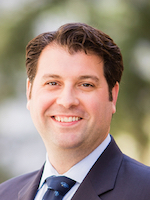Specialty Residency Information and Advising
Specialty residency advisors are available to guide you through the specialty selection and residency application process. Please find your desired department/specialty for detailed career information prepared by these advisors.
Meet the Directors of the Career Advising Program
The Career Advisor Team is available for 1:1 office hours for general career advising questions and career planning guidance.
Please note that appointments are for current and graduated UCSF Medical Students only.
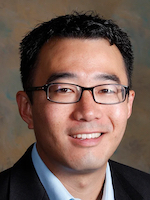
Brent Kobashi, MD
Faculty Director of Career Advising,
Leads improvements to the career advising programs for medical students. Evaluates and implements best practices in career development and match advising. Develops and oversees the specialty advisor program. Provides faculty mentoring and support for coaches and career advisors. Dr. Kobashi is also a Bridges Curriculum Coach.
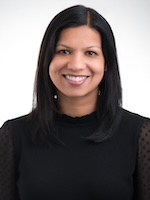
Neeti Parikh, MD
Faculty Assistant Director of Career Advising
Students in F2 or F1 in San Francisco should schedule appointments with Dr. Parikh
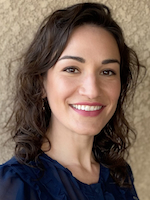
Jessie Werner, MD
Faculty Assistant Director of Career Advising - Fresno
Dr. Werner is currently on leave and unavailable. Students in F2 or F1 in Fresno (including SJV-Prime students in F1) should schedule appointments with Dr. Kobashi or Dr. Parikh.
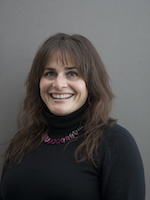
Dina Wallin, MD
Career Advising Specialist
Dr. Wallin is available to provide additional advising to all students, with a special focus on students who are first-generation to college and those from underrepresented backgrounds in medicine. She provides additional coaching through mock interviews, personal statement reviews, and more.
Specialty residency advisors are selected by their departments to support students with the best career advice for their respective specialties. There are confidential and main specialty residency advisors for each specialty.
Confidential advisors:
- A good place to start when you have a genuine interest in a specialty but have not absolutely decided on one field.
- Are not connected with the residency selection process and will not share your discussions with the residency selection committee
- Ideal for students who have not yet decided whether to pursue a specialty, but need to speak openly and honestly with a faculty person in the field to get advice.
Main advisors (not confidential):
- Faculty to talk with when you have decided on a specialty
- Are connected to the residency selection process at UCSF and can provide advice about the residency application process for UCSF and for other programs.
- Plan to meet with the main advisor at the beginning of Career Launch (or earlier).
The main specialty residency advisor is connected to the residency selection process at UCSF and knows the most about it. Both the main and confidential specialty residency advisors can provide guidance regarding:
- Requirements for residency application and selection criteria for residency
- Clinical shadowing experiences, informational interviews, electives, research opportunities and other extracurricular activities that can help students become a competitive residency applicant
- How to find a Deep Explore Inquiry project and/or mentor related to a student’s desired specialty
- Most recent data for those matching in this specialty in the previous year’s Match, both nationally and at UCSF, including average Step 1 scores, grades, extracurricular activities, and which programs are most competitive
- Students whose academic performance is not optimal for a competitive application in the specialty
- Necessary or desired away rotations for students to pursue in their desired specialty
- Specific residency programs in which the student might be competitive
- Reviewing a student’s personal statement and CV for residency application
- Creating and finalizing student Match lists
Anesthesia
Contact Anesthesia Advisors
MAIN
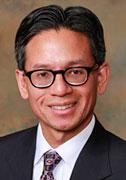 Manuel Pardo
Manuel Pardo
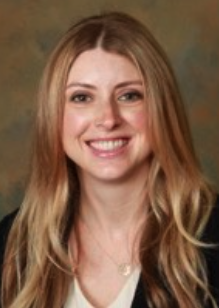 Kristine Breyer
Kristine Breyer
 Dylan Masters
Dylan Masters
CONFIDENTIAL
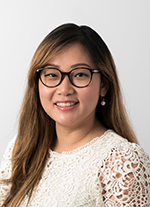 Stephanie Lim
Stephanie Lim
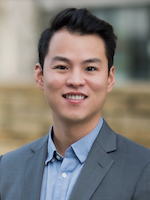 Paul Su
Paul Su
Schedule a Meeting with an Advisor
Statistics on UCSF students in 2023-2025 who were matched into Anesthesia residency programs:
General Information about Specialty
The three most compelling aspects of this specialty:
- Breadth of patient care. Consider just three aspects: a patient' s age, severity of illness, and location in the hospital. Even without fellowship training,an anesthesiologist in practice may care for patients less than one year of age to greater than 90 years of age. Some patients will be outpatients undergoing ambulatory procedures, whereas others may be patients with organ failure in the ICU who require emergency surgery.
- nteraction with other specialties. The breadth of patient care in anesthesiology also includes interactions with other specialties including surgery (and all surgical subspecialties), obstetrics (e.g., pain relief in labor, anesthesia for cesarean section), interventional radiology, pediatrics, and internal medicine (including cardiology, pulmonology, gastroenterology and other medicine subspecialties). With fellowship training (described below), an anesthesiologist can subspecialize in many different areas.
- Timeline of patient care. While there are specialties of anesthesiology that care for patients over a longer time
span, most anesthesiologists care for patients in a time span of minutes to hours. Anesthesia patient care includes a combination of cognitive and procedural/technical skills that (surprising to many) requires creativity in the care of an individual patient, balancing their medical conditions and preferences for care with the needs of the procedure itself. The cognitive abilities include a sound understanding of basic pharmacologic principles, applied clinical and pulmonary physiology, implications of patient positioning and the planned surgical procedure, fluid and blood product management, advanced patient monitoring, and relevant anatomy (e.g., for airway management and regional anesthesia). Requisite technical skills include airway management, advanced monitoring (e.g., arterial and central access, transthoracic and transesophageal echocardiography, point-of-care ultrasound), neuraxial anesthesia and peripheral nerve blocks. The overarching patient care theme behind the cognitive and technical aspects of anesthesiology is patient safety. Although complications are rare, the anesthesiologist must develop resuscitation and crisis management skills to act quickly when emergencies occur.
What is the culture of this specialty?
Most anesthesiologists work in the operating room or another procedural setting. These environments are varied, dynamic and often challenging. Depending on the setting, an anesthesiologist may work directly with one patient, or may supervise the care of a few patients as part of the anesthesia care team model. This is a very hands-on specialty with many procedures and acute interventions. Patients often present to surgery with anxiety and stress. It is the anesthesiologist’s job to address patient concerns, earn their trust and develop a safe care plan.
What are some common variations in career path in this specialty? What common fellowship opportunities exist in this specialty?
After completing anesthesia residency, fellowship training could include critical care medicine, pain medicine, pediatric anesthesia, adult or pediatric cardiothoracic anesthesia, regional anesthesia and acute pain medicine, obstetric anesthesia, hospice and palliative medicine, sleep medicine, and neurocritical care. All fellowships are one-year in duration. Nationally, around 40-50% of residents complete fellowships.
What does a typical work week look like in this specialty? How frequently can the average doctor in this specialty expect to work weekends/holidays/overnights?
This varies significantly depending on what area of specialization anesthesiologists pursue. For the anesthesiologist in private practice, a typical clinical day is 10 to 12 hours long, plus overnight call 2+ nights each month. The average number of hours per week depends on the group and its call structure, but typically 40-60 hours per week including call. In an academic setting (the minority of anesthesiologists), there is great variability depending on additional responsibilities outside the clinical setting. With respect to overnight work, this will depend on the practice setting. For example, at a level one trauma center, an anesthesiologist must be in-house 24/7. Similarly, a practice associated with an emergency department will have patients who require emergency procedures ranging from acute appendicitis to acute stroke (requiring immediate cerebral angiography) to a ruptured abdominal aortic aneurysm. Obstetric anesthesia also requires 24/7 coverage.
How does this specialty support or challenge having a family?
Generalizations are difficult due to the variation in anesthesiologists' practices. For example, an anesthesiologist who primarily practices pain medicine (clinic-based) is going to have a very different career than someone specializing in transplant anesthesia (operating room based, cases at all hours). In general, if you are considering an operating room-based career, it is important to know that OR days start early (before childcare centers open) and do not always end at predictable times. Someone needs to be there to see the patient safely to the recovery room. When surgeries have to go in the middle of the night, an anesthesiologist needs to be there to take care of the patient. When a patient needs an emergency cesarean section, an anesthesiologist must be there. Anesthesiologists frequently work 12+ hour days and are on in-house call for 24+ hour shifts. In general, partners in your practice (academic or private) will split call requirements. The family-friendly aspect is that these calls will be prescheduled, your work starts when you arrive and most often ends when you leave. Most aren’t expected to be accessible on their days off. The other family-friendly aspect is that in most cases you are paid for the amount you work, and practices/partners are okay with individuals working less (and being paid less) during times when they need more time at home. There are also different practice settings that allow even more flexibility (e.g. outpatient/office-based anesthesia) and predictable work hours (e.g. pain clinic). Overall, the most important thing is that you enjoy your specialty, work environment, and what you do day to day. No lifestyle is pleasant if you are doing something you don’t enjoy.
How competitive is the residency application process in this specialty?
Over the years, residency in anesthesiology has waxed and waned in competitiveness and desirability. Currently, anesthesiology is considered very competitive. For example, in the 2025 match, there were only 2 unfilled anesthesia positions in the country.
How competitive is the job market in this specialty (after residency/fellowship training)?
There is currently a shortage of anesthesiologists in the United States. This translates into an excellent job market for the graduating anesthesia resident. The AAMC, which commissions an annual report on the future supply and demand of physicians, predicts an ongoing shortage even with the grown of advanced practice providers.
Guidance for F1 Students
What are the preferred ways for an early F1 student to show interest and obtain guidance in your specialty?
- Join the official specialty interest group: Anesthesia Interest Group
- Shadow a faculty member in the specialty
Are there specialty professional organizations that you recommend students join? If so, what are the costs of doing so, or are there resources for students with limited ability to pay membership fees? Are there specific activities (such as meetings or subgroups) that are recommended in the organization
The American Society of Anesthesiologists (ASA) is the primary specialty society for anesthesiologists in the US. They have an active Medical Student Component that includes an annual meeting. Membership as a medical student is only $10 per year.
How can students in your specialty demonstrate leadership?
Two ways include participating in the Anesthesia Interest Group or becoming active in the ASA Medical Student Component.
For students interested in your specialty, when should students become involved in research?
Becoming involved in research is not required in this specialty.
Guidance for F2 Students
How can students best prepare for a core F2 clerkship in your specialty? Are there specific resources (websites, books, documents) that you recommend? Should a student meet with any designated faculty in the department prior to the core F2 clerkship?
One learning resource available to students during the Anesthesia 110 core clerkship in F2 is the textbook Miller's Basics of Anesthesia. UCSF Library also has physical copies of this book for loan. There is no need to meet faculty prior to the core clerkship, but feel free to reach out to your site director (or Dr. Kristine Breyer, the clerkship director) in advance with questions.
What are the differences (if any) between between sites of the core clerkship?
The main differences in sites are the patient populations served at that hospital. The sites for Anesthesia 110 include UCSF Health (Parnassus, Mount Zion, Mission Bay), SF VAMC, and ZSFG.
If a student develops an unexpected interest in your specialty during F2, what are the best next steps to take to become a competitive applicant?
Because anesthesia residents rotate through many specialty settings such as pediatric anesthesia, obstetric anesthesia, critical care, preoperative clinic, being a well-rounded clinical student is the best step you can take to being a competitive applicant. It is not necessary to complete an anesthesia-focused research project or become the leader of an anesthesia student group to be a competitive applicant. See the advice in following questions about what courses are recommended in the summer prior to residency applications.
What F2 electives in your specialty or in another specialty are recommended for students strongly interested in your specialty?
There are no specific F2 electives/CIEXes recommended for a future anesthesia resident.
How can students demonstrate excellent performance in a F2 clerkship in your specialty?
The grading overview for core clerkships including Anesthesia 110 are explained in the Bridges Curriculum web page titled "Grading Overview: Third Year Clerkships"
What guidance should students seek to prepare for Career Launch (4th year) clerkship scheduling?
There is a group orientation session in our specialty prior to Career Launch. Students can find out about this by contacting: [email protected]
Gap Year Guidance
Who in the department should be notified if a student is interested in taking a gap year?
Notifying someone in our department prior to a gap year is unnecessary.
Who in the department should be notified if a student is returning from a gap year and plans to apply in my specialty?
Notifying someone in our department when returning from a gap year is unnecessary.
Are there specific electives or clinical experiences in your specialty recommended for students to take in CL blocks prior to taking a gap year?
No
Are there specific electives or clinical experiences in your specialty recommended for students returning from a gap year as a "warm up" prior to doing a sub-I in your specialty?
No
For students planning their return from a gap year, are there any unique (to gap year) scheduling considerations? (For sub-Is/AIs, electives, away rotations, meetings with advisors, etc)considerations? (For sub-Is/AIs, electives, away rotations, meetings with advisors, etc)?
No
Guidance for Career Launch
Which courses (specifically sub-Is/acting internships) are strongly recommended or required in the summer prior to residency application? Are any specific sites recommended for these courses? Is more than 1 sub-I (or acting internship) recommended in your specialty?
Courses that are strongly recommended include the Medicine subinternship (any site) and Critical Care subinternship (Parnassus or ZSFG, Anesthesia 140.03A or 140.03B). The four-week Anesthesia 140.01 subinternship is another excellent choice if you are unable to enroll in the Critical Care subinternship, or if you want to confirm your interest in anesthesiology as a career.
What is the recommended timing of the medicine or family medicine acting internship (AI)?
Because of the removal of F1 grades, one or both of the above-mentioned subinternships should be completed before the grading deadline for the MSPE.
What electives are encouraged (but not required or strongly recommended) during Career Launch in your field or outside of your field?
Consider rotations that enhance your overall clinical skill, such as surgery, emergency medicine, or an organ-based subspecialty of medicine such as pulmonology or cardiology.
If away rotations are recommended in your field, what advice do you tell students about selecting and procuring this experience?
Away rotations are only recommended under the following circumstances:
Historically, away rotations were not recommended. However, as anesthesia residency has become much more competitive and interviews are almost exclusively virtual, the away anesthesia rotation allows a student to truly immerse themselves in another department's culture and learning environment. We recommend an away rotation only if (1) you are not enrolled in the 4-week Anesthesia 140.01 subinternship, (2) you are very interested in one program (e.g., for location reasons). We would only recommend a maximum of one away rotation. While an away rotation can clearly demonstrate interest in. a program, there is no guarantee of matching there.
Guidance for Residency Applications, Interviews and Matching
What aspects of an application are the most important to be competitive in this specialty?
| Absolutely essential | Very important | Somewhat important | Not at all impportant | |
|---|---|---|---|---|
| Extracurricular leadership efforts | X | |||
| Research/publications | X | |||
| Honors in specialty sub-internship | X | |||
| Honors in medicine or family medicine acting internship | X | |||
| Away rotations | X | |||
| USMLE Step 2 scores | X | |||
| Community work or service | X | |||
| Medical Student Performance Evaluation (MSPE) comments in my specialty | X | |||
| MSPE comments in other specialties | X | |||
| MSPE non-clinical sections (including "Noteworthy characteristics") | X | |||
| DEI and/or anti-oppressive work | X | |||
| Letters of recommendation | X | |||
| Leadership roles | X |
What aspects of an application would be particularly harmful in terms of competitiveness?
| Matching in specialty extremely unlikely | Matching in Specialty will be more challenging, but possible | No impact on competitiveness | |
|---|---|---|---|
| Negative comments regarding professionalism/physicianship | X | ||
| More than 1 attempt to pass USMLE Step 1 or 2 | X | ||
| Below-average-for-specialty score on Step 2 | X | ||
| No Step 2 score at the time of application submission | X | ||
| Multiple clerkship or exam failures that are apparent on the MSPE or transcript | X | ||
| Notation about extra time taken to complete a clerkship in the MSPE | X | ||
| Leave of absence from medical school not accounted for by outside degree program or research time | X |
Do programs in this specialty typically use "cut-off" USMLE scores to screen applications?
No
What is the optimal timing for Step 2 CK?
If you think your Step 2CK score will be at least average for the specialty, take it in time for the initial date of MSPE release (October 1).
How much does a high Step 2 CK score mediate the results of a non-passing attempt at Step 1 (or Step 2)?
It helps depending on the reason for the non-passing initial attempts.
How does your specialty utilize the MSPE in applicant review? What types of "Noteworthy Characteristics" should an applicant emphasize in the MSPE?
The MSPE is an important part of the application review but there are no specific "noteworthy characteristics" that should be mentioned.
Is research experience without publication valued in your specialty? If so, what are ways that this can be shown on their application/CV?
Research experiences have value even without publication. Describe the experience and your contribution in the experiences section of the ERAS CV. Make sure to include start and end dates, hours per week, and what your specific contribution was.
Is research and/or publication in another specialty of value to an applicant? (This may be particularly applicable to an applicant making a late decision to apply in your specialty)
Research experiences/publication in other specialties may have value.
When advising about applying in your specialty, are students ever encouraged to apply in a backup specialty or dual apply in a second specialty? If so, when should students consider this? Who is the best person in my department to consult about this?
Students would only be encouraged to apply in a backup specialty if they have risk factors for not matching in anesthesia.
What departmental application events (general info, strategy, celebration) are held throughout the application and match season? Who should the student contact to be invited to these events?
We hold periodic application events, typically one near the end of F2 and another about a month before application submission time. Contact [email protected] to be invited.
Any departmental or specialty specific websites or resources for residency application that you recommend?
The Specialty Residency Information and Advising web page within the Advising and Career Development section of the UCSF SOM web site.
Who are essential faculty to meet with before application (Department Chair, Main Specialty Advisor, Residency Program Director, etc)? What is the optimal timing for this meeting? What material or information should the student bring to this meeting? Who should the student contact to arrange this meeting?
We recommend meeting with one of the specialty advisors (main or confidential) either at the end of F2 or the month before applications are due. Timing depends on your questions. Bring the advising worksheet. Contact the advisor via the link above or the clerkships email [email protected]
In addition to the standard application, does your specialty use any form of supplemental application? If so, how does a student register for the supplemental application? Is there any specific advice that could be helpful in preparing a supplemental application?
In the last couple of years, some programs are starting to use situational judgment tests (e.g., from Altus). Historically, most of these programs have not been top choices for UCSF students.
Advice on writing the personal statement? Are there important topics or themes that should be included?
This article, while over ten years old, still contains sound advice. The main thing is to make the personal statement about you - who you are, what motivates and interests you, and not just a list of the things you have done. Johnstone RE. Describing oneself: what anesthesiology residency applicants write in their personal statements. Anesth Analg. 2011 Aug;113(2):421-4. doi: 10.1213/ANE.0b013e31821f964d. PMID: 21788327.
Who in the department should review the personal statement? When should a good draft of the personal statement be presented to faculty reviewers?
Any anesthesia career advisor (main or confidential) can review your personal statement. Allow for a 1-2 weeks turnaround time if your advisor has a busy clinical schedule at that time.
What is your recommended general approach or strategy for requesting letters of recommendation (LORs), particularly timing and etiquette?
We generally recommend that students ask for a letter as close as possible to their time working with an attending. For a student completing a core clinical clerkship in F2, this may be a full year before a letter is due, but that heads up is helpful to an attending. The other etiquette issue is to ask whether the attending would like your CV or other information. And finally, give your letter writer a lead time of at least a few weeks to a month before a letter is due.
Regarding letter writers, what characteristics (faculty rank, years of training, on resident selection committee, etc) should be considered?
The best letter writers are more experienced clinical faculty who work with residents on a regular basis. Faculty rank and membership on selection committees are less important.
Does the department write a letter of recommendation ("Chair Letter"/ "Department Letter") for an applicant? If so, who should they contact for this and when should they do so?
The department can write a "department letter" for a student, but we only recommend this for students who did not work long enough with an anesthesia faculty member to request an individual letter. If you are interested in a department letter, contact the clerkships email at
[email protected].
Of the total of 3 (or 4) letters that are part of an application, what is considered the best mix of letters? (eg: 1 from sub-internship, 1 additional clinical letter, 1 research letter, 1 department letter)
The best mix includes at least one letter from an anesthesia faculty member, one from a medicine attending, and one more from a clinical rotation. If you completed several months to a year of research during medical school, a fourth letter from a research mentor is fine.
Does your department have a Standardized/Supplemental Letter of Evaluation (such as SLOE)? If so, how is this letter drafted (and by whom)? Is there any advice you recommend for students so that they canhow is this letter drafted (and by whom)? Is there any advice you recommend for students so that they can have an outstanding SLOE?have an outstanding SLOE?
The Association of Anesthesiology Core Program Directors has a standardized letter of recommendation that anesthesiology letter writers can use. It is considered optional, and the decision to use the standardized format is up to the letter writer.
What types of variations in residency training programs are there in your specialty (eg, different tracks, different lengths)?
Clinical anesthesia training is 3 years long, known as CA-1 through CA-3 years. The PGY1 internship year is called the clinical base year (CBY). Categorical programs include the CBY and clinical anesthesia years, totaling 4 years. Advanced programs only include the 3 clinical anesthesia years; the CBY must be matched to separately (e.g., preliminary medicine or surgery, or transitional year). In addition to advanced or categorical tracks, there are combined residencies such as medicine/anesthesia, pediatrics/anesthesia, emergency medicine/anesthesia. A few departments offer categorical anesthesia residency plus fellowship - which could be clinical or a research fellowship.
Who should students review their program list with?
Students can review their program list with a main or confidential advisor.
How many programs do you recommend a student that is average in terms of competitiveness apply to?
In the era of signaling (see next question), there is low yield to applying to programs that you did not signal. Currently, an applicant has 15 total signals. Therefore, applying to more than 15 programs has low yield. Nevertheless, applying to 20-30 programs is reasonable for a student of average competitiveness.
Is there a “signaling” program for your specialty and if so, is there a strategy to use signals?
Yes, a signaling program exists. As of April 2025, anesthesia signals consist of 15 total signals, 5 gold and 10 silver. Programs primarily use signals as part of the screening process when deciding who to interview. Some programs fill all of their interview slots with gold signals only. Others fill with a combination of gold and silver signals. Typically, very few interviews are given to applicants who did not signal a program. In the 2024 match, the "interview success rate" for programs that an applicant did not signal was approximately 5% (i.e., 20 non-signaled programs applied to would yield one interview). In terms of signaling strategy, the general advice is to spread your signals out over a range of programs of different "competitiveness". The advising worksheet contains an optional section on signaling that we highly recommend you discuss with an advisor.
When do interviews typically happen in your field? Is there optimal timing for scheduling interviews? During these months, what clinical or non-clinical rotations do you recommend for students?
Interview are typically held in October through January. There is no optimal timing, though students may not want to schedule their first interview at their top choice program. There is an experience curve to the interview process.
Any advice or guidance about etiquette for cancelling interviews? Any strategy for which interviews to keep and which interviews to cancel?
If you have accrued enough interview invites, you should cancel interviews at programs that are lower down on your list. This may enable another qualified student to obtain an interview. As far as strategy for which to keep or cancel, this may relate to the geography of your program list. For example, if your desire to live in a certain part of the country is low, and you have enough interviews, cancel your interviews in that part of the country.
Are you anticipating all in-person, all virtual, or a mix of in-person and virtual interviews?
All virtual
During an interview, what should applicants be looking for and/or what questions should they consider asking that can help them clarify what programs will be most desirable?
Have an authentic “elevator pitch” about who you are as a person and how you will approach being an anesthesia resident in the program. Know the details of your application well and be able to have meaningful conversations about these things. Stay engaged and interested throughout your interview day and ask appropriate questions about the programs. Read up on the program and identify a talking point or two about the specific program. Show interest in the interests of your interviewers.
What is the recommended approach to post-interview communication? Are thank you notes recommended? Are “you are my #1 choice” letters recommended?
The NRMP provides strict regulations regarding the content of post-interview communications. Its official policy states, “Both applicants and programs may express their interest in each other; however, they shall not solicit verbal or written statements implying a commitment. ” Additionally, neither party can suggest that their rank order is contingent on promises from the other party. Unfortunately, post-interview communications are common, a source of stress, and frequently misleading. You should not make false or ambiguous statements in order to garner some perceived benefit. And you should be cautious about overinterpreting ambiguous statements made by residency programs. Almost all programs report that post-interview communication does not impact their rank lists. We recommend sending a single simple short email to the residency program leadership letting them know that you enjoyed your interview day. Do not write an essay. You may share your interest with programs but do not tell multiple programs you are ranking them number 1. Also, telling a program you are ranking them near the top of your list simply means you are not ranking them first. Do not bother with this detail.
Is there any special advice you give to students applying as a couple in the Match? If so, what is it?
Each member of the couple needs an assessment of their competitiveness as an applicant. Since it's rare to have a dual-anesthesia couple, this will likely involve two different specialty advisors. Based on each person's competitiveness, the other member of the couple needs to adapt their list. In general, this leads to twice the number of programs to apply to for each member of the couple.
How many interviews should students with average (for specialty) competitiveness attend in order to have a good chance of matching?
In the signaling era, 4-6 interviews would be a reasonable number.
At what point in time should students be concerned about not having enough interviews? Who should they contact if that is the case?
The MSPE release date is October 1. Many programs have 700-1000 applicants and attempt to do holistic review. This takes time. In general, a student should be concerned if they have no interviews by November 15, which is 6 weeks post MSPE-release. A student can contact one of the advisors (main or confidential).
With whom should the students consult regarding creating the rank order list? What is the best timing for this?
A student can consult one of the anesthesia career advisors (main or confidential) to review their rank list. However, a meeting is not needed if the student is confident of their list based on their interview experience and communication with the program.
Additional Resources for Students
What UCSF resources are available within your department?
One key resource is Dr. Odi Ehie, our department's Vice Chair for Diversity. Our department's Opportunity & Impact website also has further resources.
What specialty-side/national resources are available?
The Society for Education in Anesthesia is a national organization with a committee on Diversity, Equity, Inclusion and Justice. The American Society of Anesthesiologists has a Committee on Professional Diversity.
Dermatology
Contact Dermatology Advisors
CONFIDENTIAL
Statistics on UCSF students in 2023-2025 who were matched into Dermatology residency programs:
General Information about Specialty
The three most compelling aspects of this specialty:
- Appeals to visual learners: diagnosis relies heavily on visual cues from the physical examination.
- Clinical/scientific variety: incorporates internalmedicine (and its subspecialties), pediatrics, surgery, pathology.
- Work-life balance: predominantly outpatient-based practice.
What is the culture of this specialty?
Dermatology is a very small field—many dermatologists know one another and the small size of our specialty and frequent meeting opportunities allowswonderful connections between dermatologists who live all over the world. Dermatologists are highly involved with their specialty with excellentparticipation in local organizations (such as San Francisco Dermatology, CalDerm and other state and national societies).
People who typically choose this field have a preference for: doing procedures, thinking about a broad spectrum of diseases (almost every disease has a cutaneous manifestation),highly academic people (requires a very large fund of knowledge, residency is reading-intensive), variety of ages seen (from children to the elderly),variety of conditions seen (mole checks to systemic lupus), variety of health status (from very healthy to very sick), doing cosmetic procedures, seeinghigh volume of patients during short visits (typical dermatologist sees 30-50 patients a day), dedicated to giving back to the specialty.
What are some common variations in career path in this specialty? What common fellowship opportunities exist in this specialty?
Dermatologists practice in a variety of settings - academic as well as private practice (solo practice, group practice). Private practice dermatologists often undertake voluntary teaching/patient care duties or have part-time appointments at academic institutions. Some dermatologists choose to complete fellowship training; options include: complex medical dermatology, pediatric dermatology, procedural dermatology, cosmetic dermatology, dermatopathology.
What does a typical work week look like in this specialty? How frequently can the average doctor in this specialty expect to work weekends/holidays/overnights?
Non-academic practice: 30-50 patients per day, 4-4.5 days/week. Academic practice: 30-40 patients per day, 2-4 days a week, 1-3 days of: teaching, research, administrative time. Dermatology practice typically involves a mix of procedures, cosmetics, and medical dermatology visits. Almost all dermatologists do surgical procedures (biopsies, cancer excisions) and many do cosmetic procedures (botulinum toxin, filler, chemical peels, lasers, liposuction, vein sclerotherapy). Dermatology is predominantly an outpatient practice, and most dermatologists do not work on nights or weekends. However, some dermatologists (eg. academic dermatologists, private practice dermatologists in a group practice) will take call (usually from home) during nights and weekends. The high volume of clinical work often demands administrative work (eg. writing notes, responding to patient requests) outside routine business hours.
How does this specialty support or challenge having a family?
As with other specialties, it can be challenging to balance work and family during dermatology residency training. However, the predominantly outpatient nature of the specialty and improved parental leave policies are making this more manageable. Many dermatologists in independent practice enjoyfulfilling professional lives while also balancing family responsibilities.
How competitive is the residency application process in this specialty?
Very competitive (~70% match rate in recent years). UCSF students typically do well; however, the landscape of the application process has rapidly changed in the last few years and it is difficult to predict match success for individual applicants. The key is to have good mentorship throughout theapplication process, both from your personal advisors, as well as from the specialty advisors.
How competitive is the job market in this specialty (after residency/fellowship training)?
There is high demand for dermatologists across the country, and it is a generally favorable market for job-seekers. However, job availability depends onthe type of practice and geographic location. Job opportunities for dermatopathologists and dermatologic surgeons are rare in the big cities but there is agreat need for these specialists in more suburban/rural locations. Pediatric and medical dermatologists are highly sought after, though some cities are saturated (eg. NYC, LA, SF). There is a tremendous need for general dermatologists (individuals who do all types of dermatology) in rural areas.
Guidance for F1 Students
What are the preferred ways for an early F1 student to show interest and obtain guidance in your specialty?
- Join the official specialty interest group: Dermatology Interest Group:https://ucsf.campusgroups.com/dig/home/
- Shadow specialty Shadow a faculty member in the specialty
- Get involved in a research project in the specialty
- Attend the F1 group advising session(typically held in October)
Are there specialty professional organizations that you recommend students join? If so, what are the costs of doing so, or are there resources for students with limited ability to pay membership fees? Are there specific activities (such as meetings or subgroups) that are recommended in the organization
- American Academy of Dermatology
- Dermatology Interest Group Association
- CalDerm
- Skin of Color Society
- Student National Dermatology Association
For sub-specialty specific interests:
- Society for Pediatric Dermatology American Society of Dermatopathology
- American Society of Dermatologic Surgery
- American College of Mohs Surgeons Medical Dermatology Society
How can students in your specialty demonstrate leadership?
Students can demonstrate leadership in a variety of ways. Many become involved in dermatology-specific initiatives (eg. offering dermatology care to underserved communities, dermatology curriculum development, mentorship of junior medical students). Others show leadership on research/creative projects, and initiatives outside the field of medicine (community projects, advocacy etc).
For students interested in your specialty, when should students become involved in research?
Before the end of F1
Guidance for F2 Students
If a student develops an unexpected interest in your specialty during F2, what are the best next steps to take to become a competitive applicant?
Sign up for Dermatology CIEx. Arrange shadowing experiences. Contact the specialty advising team.
What F2 electives in your specialty or in another specialty are recommended for students strongly interested in your specialty?
Dermatology 140.11 - Sub-internship in Dermatology.
How can students demonstrate excellent performance in a F2 clerkship in your specialty?
Be engaged, great team players, enthusiastic about the clinical work. Consider completing the dermatology basic curriculum beforehand: https://www.aad.org/member/education/residents/bdc
What guidance should students seek to prepare for Career Launch (4th year) clerkship scheduling?
There byThere is a group orientation session in our specialty prior to Career Launch. Students can find out about this bycontacting contacting (please include email): Laura Harrison - [email protected]
Gap Year Guidance
Who in the department should be notified if a student is interested in taking a gap year?
The person to notify prior to a gap year is (name and email): Laura Harrison - [email protected]
Who in the department should be notified if a student is returning from a gap year and plans to apply in my specialty?
The person to notify prior to a gap year is (name and email): Laura Harrison - [email protected]
Are there specific electives or clinical experiences in your specialty recommended for students to take in CL blocks prior to taking a gap year?
No
Are there specific electives or clinical experiences in your specialty recommended for students returning from a gap year as a "warm up" prior to doing a sub-I in your specialty?
No
For students planning their return from a gap year, are there any unique (to gap year) schedulingconsiderations? considerations? (For sub-Is/AIs, electives, away rotations, meetings with advisors, etc)?
No
Guidance for Career Launch
Which courses (specifically sub-Is/acting internships) are strongly recommended or required in the summer prior to residency application? Are any specific sites recommended for these courses? Is more than 1 sub-I (or acting internship) recommended in your specialty?
- Subinternship in Dermatology - required Acting Internship in Medicine OR Pediatrics Subinternship - strongly recommended
- Dermatology SPAN(Specialty Practice Ambulatory sub-internship) - strongly recommended
What is the recommended timing of the medicine or family medicine acting internship (AI)?
By the time of ERAS submission, such that the rotation grade and comments are available in the MSPE.
If away rotations are recommended in your field, what advice do you tell students about selecting and procuring this experience?
Away rotations are only recommended under the following circumstances:
- The experience is affordable. Some programs offer funding.
- The rotation offers a clinical or research experience that cannot be gained at UCSF.
- There is a strong interest in that program, and rotating there would help to demonstrate this interest. See guidance on away rotations here (updates periodically): https://students-residents.aamc.org/media/12386/download
Guidance for Residency Applications, Interviews and Matching
What aspects of an application are the most important to be competitive in this specialty?
| Absolutely essential | Very important | Somewhat important | Not at all important | |
|---|---|---|---|---|
| Extracurricular leadership efforts | X | |||
| Research/publications | X | |||
| Honors in specialty sub-internship | X | |||
| Honors in medicine or family medicine acting internship | X | |||
| Away rotations | X | |||
| USMLE Step 2 scores | X | |||
| Community work or service | X | |||
| Medical Student Performance Evaluation (MSPE) comments in my specialty | X | |||
| MSPE comments in other specialties | X | |||
| MSPE non-clinical sections (including "Noteworthy characteristics") | X | |||
| Letters of recommendation | X | |||
| Leadership roles | X |
What aspects of an application would be particularly harmful in terms of competitiveness?
| Matching in specialty extremely unlikely | Matching in Specialty will be more challenging, but possible | No impact on competitiveness | |
|---|---|---|---|
| Negative comments regarding professionalism/physicianship | X | ||
| More than 1 attempt to pass USMLE Step 1 or 2 | X | ||
| Below-average-for-specialty score on Step 2 | X | ||
| No Step 2 score at the time of application submission | X | ||
| Multiple clerkship or exam failures that are apparent on the MSPE or transcript | X | ||
| Notation about extra time taken to complete a clerkship in the MSPE | X | ||
| Leave of absence from medical school not accounted for by outside degree program or research time | X |
Do programs in this specialty typically use "cut-off" USMLE scores to screen applications?
Some programs use a cut-off. A recommended Step 2 target is 250.
What is the optimal timing for Step 2 CK?
In time for the score to be included in your ERAS application (ie take the test by end of July if possible).
How much does a high Step 2 CK score mediate the results of a non-passing attempt at Step 1 (or Step 2)?
Very little. A non-passing attempt on any Step exam makes it extremely unlikely to match in dermatology.
How does your specialty utilize the MSPE in applicant review? What types of "Noteworthy Characteristics" should an applicant emphasize in the MSPE?
The narrative comments in the MSPE are very important and reviewed very carefully. You may include noteworthy characteristics that highlight your most significant clinical, scientific, and leadership accomplishments.
Is research experience without publication valued in your specialty? If so, what are ways that this can be shown on their application/CV?
Yes, these types of experiences are becoming increasingly more valued, especially if they demonstrate sustained commitment over time and applicants can articulate skills they learned and challenges they overcame. Creative work (eg. non-scientific writing) can also be valuable. However, many programs will still like to see published scientific work (especially in dermatology) as part of the application.
Is research and/or publication in another specialty of value to an applicant? (This may be particularly applicable to an applicant making a late decision to apply in your specialty)
Yes, all research experiences are valuable. However, some research activities within dermatology should also be included.
When advising about applying in your specialty, are students ever encouraged to apply in a backup specialty or dual apply in a second specialty? If so, when should students consider this? Who is the best person in my department to consult about this?
Yes, this may be appropriate for some students. The dermatology career advising team will help you decide if this option is best for you during the Spring of your application year.
What departmental application events (general info, strategy, celebration) are held throughout the application and match season? Who should the student contact to be invited to these events?
There are several sessions held by the DIG (dermatology interest group). We recommend joining the DIG mailing list to stay up to date with offerings (https://ucsf.campusgroups.com/dig/home/).
Any departmental or specialty specific websites or resources for residency application that yourecommend?
UCSF dermatology: https://dermatology.ucsf.edu/education-training/residency-program-overview. You may also access resources from regional and national dermatology organizations as listed in previous sections.
Who are essential faculty to meet with before application (Department Chair, Main Specialty Advisor, Residency Program Director, etc)? What is the optimal timing for this meeting? What material or information should the student bring to this meeting? Who should the student contact to arrange this meeting?
You should meet with one of the two dermatology career advisors. Please contact Laura Harrison to schedule a meeting. These meeting typically take place in the early Spring of your application year. Please attend or watch the F2 group advising session beforehand (typically held in the preceding October/November).
In addition to the standard application, does your specialty use any form of supplemental application? If so, how does a student register for the supplemental application? Is there any specific advice that could be helpful in preparing a supplemental application?
No supplemental application.
Advice on writing the personal statement? Are there important topics or themes that should be included?
It can be hard to write a statement that stands out and unfortunately many of them sound the same. You want to leave the reader with something that is memorable about you, but not too much of an outlier. Don't be afraid to be explicit about your goals and show it to some people you trust. But don't show it to too many people - it dilutes the originality and personal voice that really has to come through. Though you want the statement to be personal, it is generally not recommended to describe a cutaneous condition that you have experienced (severe acne, a topic dermatitis, psoriasis, melanoma) unless you have a very unique aspect of this that you would like to discuss or explore. This is a common pitfall for students (i.e. many students write about this and thus it ends up not being very original). It is generally recommended for the style to be straightforward, easy to read, and succinct. Do not attempt to be creative or artsy unless creative writing is really your forte. Be certain to not obscure the message of your qualifications and commitment to the specialty with your artistic flair.
A general format would be: Paragraph 1: I want to be a dermatologist because (ie how you decided on derm) and be clear on why you are a doctor. Paragraph 2: describe your experiences, accomplishments in dermatology. Be specific and be comfortable highlighting your successes. i.e., “I collaborated with Dr. John Smith of University to perform analysis of melanomas taken from 340 patients to determine the patterns of XYZ staining and associate the relevance of this staining pattern to patient prognosis and survivorship; this work resulted in an oral presentation at the annual AAD meeting in Denver 2014 and also a first-author publication in the JAAD.” In the essay be gracious to your mentors (OK to name drop). Paragraph 3: Summarize your story, your path to dermatology and indicate whether there are any particular career aspirations (ie to become a pediatric dermatologist – only state this if this is 100% certain, otherwise ok to leave this more general) The personal statement is a really good chance to explain any particular circumstances: low board score (because of illness, death in family), why you are switching from another specialty into dermatology, why you want to move to that area (because partner is being relocated there or your entire family lives there). Please seek guidance on this aspect from mentors to make sure that the circumstances you hope to describe are appropriate and properly worded.
You may also wish to add a few sentences at the end which are tailored to a specific program. This is typically done for the 3 programs you have given a gold signal. Be sure that any information you reference (eg. interesting faculty research, unique program characteristics) is accurate and up to date.
Who in the department should review the personal statement? When should a good draft of the personal statement be presented to faculty reviewers?
Your personal mentor should review the statement. We recommend that you complete a draft by end of July.
What is your recommended general approach or strategy for requesting letters of recommendation (LORs), particularly timing and etiquette?
We recommend requesting letters at least 1 month before the ERAS submission deadline.
Regarding letter writers, what characteristics (faculty rank, years of training, on resident selection committee, etc) should be considered?
Letters should be written by attendings/supervisors who know you best, regardless of their rank or roles.
Does the department write a letter of recommendation ("Chair Letter"/ "Department Letter") for anapplicant? applicant? If so, who should they contact for this and when should they do so?
No
Of the total of 3 (or 4) letters that are part of an application, what is considered the best mix of letters? (letter)(eg: 1 from sub-internship, 1 additional clinical letter, 1 research letter, 1 department letter)?
Typically, letters of recommendation are written by the following people: -a primary research mentor/supervisor (1) -primary clinical mentor/supervisor (2 -eg. SPAN mentor and Dermatology sub-internship attending) -an attending supervisor from an Internal Medicine or Pediatrics subinternship (1)
Does your department have a Standardized/Supplemental Letter of Evaluation (such as SLOE)? If so, how canhow is this letter drafted (and by whom)? Is there any advice you recommend for students so that they canhave have an outstanding SLOE?
No
What types of variations in residency training programs are there in your specialty (eg, different tracks, different lengths)?
Traditional residency program: internship (internal medicine, surgery, pediatrics, or transitional year) + 3 clinical dermatology years. Unless you are strongly considering pediatric dermatology, internal medicine internship is preferred. In addition, a preliminary year in medicine typically better prepares you for residency than a transitional year. 2+2/physician scientist research program (offered by some, but not all, departments): internship + 2 years of clinical dermatology + 2 (or more) years of integrated research and clinical exposure. The research is typically basic science, but can also involve epidemiology and clinical research. These track positions are almost exclusively filled by individuals with advanced scientific degrees (masters, PhD). Dermatology and Internal Medicine combined residency programs: 5 years total of combined training and board certification in both specialties (not offered at UCSF). Visit American Board of Internal Medicine's (ABIM) Internal Medicine / Dermatology Policies for a description of the combined program with participating institutions. There may be combined Dermatology and Pediatrics training programs in the years to come.
Who should students review their program list with?
Personal mentor as well as the confidential dermatology advisor.
How many programs do you recommend a student that is average in terms of competitiveness apply to?
Dermatology now limits application to no more than 28 programs. We recommend applying to 28 programs. With the current signaling strategy (3 gold, 25 silver), there is a near-zero chance of interviewing with a program you have not signaled.
Is there a “signaling” program for your specialty and if so, is there a strategy to use signals?
Yes, a signaling program exists. My strategy recommendations are: Discuss in more detail with your personal advisor as well as the confidential dermatology advisor. Review the information from the AAMC's Residency Explorer Tool: https://students-residents.aamc.org/apply-smart-residency/residency-explorer-tool
When do interviews typically happen in your field? Is there optimal timing for scheduling interviews? During these months, what clinical or non-clinical rotations do you recommend for students?
Interviews typically take place in December and January. Almost all dermatology programs participate in a coordinated interview release process, whichtakes place in November and early December. More information can be found here (updated annually): https://students-residents.aamc.org/media/12386/download
Any advice or guidance about etiquette for cancelling interviews? Any strategy for which interviews to keep and which interviews to cancel?
None
Are you anticipating all in-person, all virtual, or a mix of in-person and virtual interviews?
All virtual
During an interview, what should applicants be looking for and/or what questions should they consider asking that can help them clarify what programs will be most desirable?
Pay close attention to how residents and faculty interact with each other, and whether the residents seems happy to be training at that institution. Ask about projects that align with your clinical/research interests, and share how you can expand existing work or recommend novel approaches.
What is the recommended approach to post-interview communication? Are thank you notes recommended? Are “you are my #1 choice” letters recommended?
No post-interview communication is needed. However, you will not be disadvantaged if you choose to communicate.
Is there any special advice you give to students applying as a couple in the Match? If so, what is it?
Discuss with your personal mentor and with the dermatology career advisors.
How many interviews should students with average (for specialty) competitiveness attend in order to have a good chance of matching?
9 (please review the NRMP Match data updated annually: https://www.nrmp.org/match-data/)
At what point in time should students be concerned about not having enough interviews? Who should they contact if that is the case?
Given the coordinated release strategy, you will have a sense of your interview numbers by mid-to-late November. Please contact your personal mentor or the dermatology career advisors if you have concerns.
With whom should the students consult regarding creating the rank order list? What is the best timing for this?
Personal mentor and/or confidential advisor, at least 2 weeks before finalizing and submitting.
Updated April 2025 by Michael Waul, MD
Diagnostic Radiology
Contact Diagnostic Radiology Advisors
MAIN
CONFIDENTIAL
Statistics on UCSF students in 2023-2025 who were matched into Diagnostic Radiology residency programs:
For more informational about Diagnostic Radiology, please contact the Specialty Career Advisors
General Information about Specialty
The three most compelling aspects of this specialty:
Radiology tends to have an excellent work-life balance. Radiology practices are typically shift based with most radiologists working 8-5 on standard business days with variable participation in night and call shifts depending on practice locations. Because radiology is shift based, there is a wide range of possible work schedules including remote work options, part time positions, and variable involvement in procedures. • Radiology is an intellectually rigorous field with a strong focus on diagnostics and clinical problem solving. Radiologists get to see a broad range of pathology and work closely with collaborators from all specialties on a regular basis. • Because of the increasingly integral nature of medical imaging to current medical practice, radiologists have the chance to have an immediate high impact on the clinical care of a large number of patients on any given day. Radiologists are involved in the care of hundreds of thousands of individual patients over the course of their careers and are able to make substantial contributions to that care on a regular basis.
What is the culture of this specialty?
Radiologists are often calm, personable, and have varied interests, given the relatively controlled practice setting. Particularly in busier subfields and in many private practice settings, the work load does require a great deal of focused attention and intensity. Radiologists are almost always intellectually curious and enjoy problem-solving. Radiologists tend to be respectful towards one another, and there is an overall acknowledgment of the importance of a work-life balance.
What are some common variations in career path in this specialty? What common fellowship opportunities exist in this specialty?
Trainees typically complete a fellowship after residency in a radiologic subspecialty of their choice. Fellowships last one to two years (most are one). Examples include cardiopulmonary, abdominal, neuro, pediatrics, nuclear medicine, interventional radiology, breast, and musculoskeletal. After fellowship, the three most common practice settings are academics, private practice, or teleradiology (remote reading from a centralized locale, which is less common than the other two). Some people focus on only a small subfield of radiology, some remain generalists, and some focus on procedures.There are a variety of ways to practice depending on what niche you find most appealing.
What does a typical work week look like in this specialty? How frequently can the average doctor in this specialty expect to work weekends/holidays/overnights?
Typical work hours are 8am to 5pm. However, radiology services are offered 24 hours a day in many centers. Call schedules vary widely based on the type of practice environment one chooses.
How does this specialty support or challenge having a family?
A career in radiology is very compatible with raising a family. One benefit is that the job is essentially shift work, so hours are predictable and regular. Many trainees have children during residency.
How competitive is the residency application process in this specialty?
The Emergency Medicine residency application process is a "medium" competitiveness specialty. Up to 2021, EM was becoming increasingly competitive, however the last two years (2022 & 2023) there was a significant change with fewer number of overall EM applicants as there were residency spots. This significant shift resulted in some EM residency programs not filling all of their match spots, i.e., there were more positions to“SOAP/scramble” into the last two years. All that being said, students interested in applying for residency training in Emergency Medicine should be able to match.
How competitive is the job market in this specialty (after residency/fellowship training)?
Very competitive.
How competitive is the job market in this specialty (after residency/fellowship training)?
This is geographically dependent and cyclical. At present, the job market is strong.
Guidance for F1 Students
What are the preferred ways for an early F1 student to show interest and obtain guidance in your specialty?
- Meet with the main (non-confidential) specialty advisor
- Join the official Radiology specialty interest group
- Shadow a faculty member in the specialty
Are there specialty professional organizations that you recommend students join? If so, what are the costs of doing so, or are there resources for students with limited ability to pay membership fees? Are there specific activities (such as meetings or subgroups) that are recommended in the organization
RSNA: http://www.rsna.org
ARRS: http://arrs.org
AAR: http://www.aur.org
All should have free membership for medical students.
How can students in your specialty demonstrate leadership?
Being a leader in any club or spearheading activity is helpful
Guidance for F2 Students
If a student develops an unexpected interest in your specialty during F2, what are the best next steps to take to become a competitive applicant?
Contact the confidential advisor as soon as you think you might have an interest in radiology. It’s never too early!
What F2 electives in your specialty or in another specialty are recommended for students strongly interested in your specialty?
Consider a ClEx elective in Diagnostic or Interventional Radiology. A required radiology curriculum is presented during IDS 113.
What guidance should students seek to prepare for Career Launch (4th year) clerkship scheduling?
- 1. Meet with a specialty advisor. Meet with confidential advisor during/before fourth year schedule planning;
- There is a group orientation session in our specialty prior to Career Launch. Students can find out about this by contacting (please include email):contacting (please include email): Samira Zebarjadian: [email protected]
Gap Year Guidance
Who in the department should be notified if a student is interested in taking a gap year?
Notifying someone in our department prior to a gap year is unnecessary
Who in the department should be notified if a student is returning from a gap year and plans to apply in my specialty?
The person to notify prior to returning is one of the confidential advisors
Are there specific electives or clinical experiences in your specialty recommended for students to take in CL blocks prior to taking a gap year?
No
Are there specific electives or clinical experiences in your specialty recommended for students returning from a gap year as a "warm up" prior to doing a sub-I in your specialty?
No
Guidance for Career Launch
Which courses (specifically sub-Is/acting internships) are strongly recommended or required in the summer prior to residency application? Are any specific sites recommended for these courses? Is more than 1 sub-I (or acting internship) recommended in your specialty?
Plan to take an elective rotation in radiology before applications are due in September. We generally recommend that students applying in radiology take either Rad 140.19 or an IR elective. If you have any questions as to which elective is most appropriate you can visit the following website for descriptions or contact us for advising: https://radiology.ucsf.edu/education/medical-students
What is the recommended timing of the medicine or family medicine acting internship (AI)?
Radiology residents are required to do a preliminary internship in Internal Medicine, Surgery, Transitional Year, or Pediatrics. While some radiology programs have this internship year built in, most do not and therefore students will apply to that preliminary year separately. The timing of when to take medicine or family medicine acting internship is more crucial to those preliminary programs therefore students should refer to the advice for those respective specialties.
If away rotations are recommended in your field, what advice do you tell students about selecting and procuring this experience?
Away rotations are only recommended under the following circumstances: Not common or expected but if you want specifically want to asses a specific program for your own benefit or if you have a specific target program to bolster your application.
Guidance for Residency Applications, Interviews and Matching
What aspects of an application are the most important to be competitive in this specialty?
| Absolutely essential | Very important | Somewhat important | Not at all impportant | |
|---|---|---|---|---|
| Extracurricular leadership efforts | X | |||
| Research/publications | X | |||
| Honors in specialty sub-internship | X | |||
| Honors in medicine or family medicine acting internship | X | |||
| Away rotations | X | |||
| USMLE Step 2 scores | X | |||
| Community work or service | X | |||
| Medical Student Performance Evaluation (MSPE) comments in my specialty | X | |||
| MSPE comments in other specialties | X | |||
| MSPE non-clinical sections (including "Noteworthy characteristics") | X | |||
| DEI and/or anti-oppressive work | X | |||
| Letters of recommendation | X | |||
| Leadership roles | X |
What aspects of an application would be particularly harmful in terms of competitiveness?
| Matching in specialty extremely unlikely | Matching in Specialty will be more challenging, but possible | No impact on competitiveness | |
|---|---|---|---|
| Negative comments regarding professionalism/physicianship | X | ||
| More than 1 attempt to pass USMLE Step 1 or 2 | X | ||
| Below-average-for-specialty score on Step 2 | X | ||
| No Step 2 score at the time of application submission | X | ||
| Multiple clerkship or exam failures that are apparent on the MSPE or transcript | X | ||
| Notation about extra time taken to complete a clerkship in the MSPE | |||
| Leave of absence from medical school not accounted for by outside degree program or research time |
Do programs in this specialty typically use "cut-off" USMLE scores to screen applications?
Yes. My guidance (including a Step 2 score target) about this is:Yes. My guidance (including a Step 2 score target) about this is: Ideally as well as possible. The mean for students matching into radiology is above 240. Candidates with scores below 220 will likely have a challenging time matching
What is the optimal timing for Step 2 CK?
Based on schedule before applications
How much does a high Step 2 CK score mediate the results of a non-passing attempt at Step 1 (or Step 2)?
It does not
How does your specialty utilize the MSPE in applicant review? What types of "Noteworthy Characteristics" should an applicant emphasize in the MSPE?
Research, teaching, leadership, teamwork, contentiousness, medical knowledge
Is research experience without publication valued in your specialty? If so, what are ways that this can be shown on their application/CV?
This is valued over no research. Recommend describing what your role was in the research project with emphasis on skills learned.
Is research and/or publication in another specialty of value to an applicant? (This may be particularly applicable to an applicant making a late decision to apply in your specialty)
Yes absolutely! This is the case for most people applying into radiology.
When advising about applying in your specialty, are students ever encouraged to apply in a backup specialty or dual apply in a second specialty? If so, when should students consider this? Who is the best person in my department to consult about this?
Yes sometimes particularly in the setting of low step 2 scores. Recommend contacting the confidential advisors to discuss.
What departmental application events (general info, strategy, celebration) are held throughout the application and match season? Who should the student contact to be invited to these events?
Group advising/informational sessions in 3rd and 4th year with the confidential advisors -Post-match panel with recently matched students Contact Samira Zebarjadian at [email protected] for more information.
Any departmental or specialty specific websites or resources for residency application that you recommend?
- RSNA
- ARRS
- AAR
- Auntminnie.com (medical student forums are available, but take the information you read here with a grain of salt!)
- Alliance of Medical Student Educators in Radiology (AMSER) Medical Student Resources
Who are essential faculty to meet with before application (Department Chair, Main Specialty Advisor, Residency Program Director, etc)? What is the optimal timing for this meeting? What material or information should the student bring to this meeting? Who should the student contact to arrange this meeting?
Confidential Advisors - recommend meeting as soon as possible. Will likely meet multiple times to review documents such as CV, personal statement, application list, and rank list. Can be reached by directly emailing the advisors. Program Director (optional) - meet by the end of September of application year. Can contact Sandria Wong: [email protected] to set up meeting. Please provide CV prior to meeting.
In addition to the standard application, does your specialty use any form of supplemental application? If so, how does a student register for the supplemental application? Is there any specific advice that could be helpful in preparing a supplemental application?
None
Advice on writing the personal statement? Are there important topics or themes that should be included?
Please meet with the confidential advisor for detailed advice and draft editing. In general, this is your opportunity to present any information about yourself that is not well reflected or adequately explained in the remainder of the ERAS application.
Who in the department should review the personal statement? When should a good draft of the personal statement be presented to faculty reviewers?
Confidential Advisors - recommend reviewing personal statement with the advisors before you send it to your letter writers.
What is your recommended general approach or strategy for requesting letters of recommendation (LORs), particularly timing and etiquette?
Ask potential letter writers as soon as possible. Be sure to ask if they can write a STRONG letter. Be sure to give writers as much time as possible to submit their letters.
Regarding letter writers, what characteristics (faculty rank, years of training, on resident selection committee, etc) should be considered?
The most important thing is your relationship with the letter writer. The more they know you, the more personal the letter. Better to have a very specific and personal letter about you and your achievements from a slightly lower faculty rank than a boilerplate letter that doesn't reflect you from a higher faculty rank.
Does the department write a letter of recommendation ("Chair Letter"/ "Department Letter") for anDoes the department write a letter of recommendation ("Chair Letter"/ "Department Letter") for an applicant? If so, who should they contact for this and when should they do so?
No, but students who complete a Rad 140.19 elective or IR elective can expect a faculty letter of recommendation.
Of the total of 3 (or 4) letters that are part of an application, what is considered the best mix of letters? (letter)(eg: 1 from sub-internship, 1 additional clinical letter, 1 research letter, 1 department letter)?
Three letters from faculty you have worked with clinically. Generally, one should be from a radiologist and two from other specialties (often third year core clerkships or sub I). Medicine, Surgery, Neurology, OB/GYN, Pediatrics, and longitudinal preceptors are all common choices. Students may also submit an optional 4th “research letter” from a research mentor. The content of the letter is far more important than the specialty or professional rank of the letter writer.
Does your department have a Standardized/Supplemental Letter of Evaluation (such as SLOE)? If so, how canhow is this letter drafted (and by whom)? Is there any advice you recommend for students so that they can have have an outstanding SLOE?
No
What types of variations in residency training programs are there in your specialty (eg, different tracks, different lengths)?
Categorical residency programs are almost universally 4 years and require a preceding internship. Some residency programs may offer research tracks or allow clinical focus in a specific subspecialty.
Who should students review their program list with?
Students should meet with the confidential advisors to review program lists.
How many programs do you recommend a student that is average in terms of competitiveness apply to?
This varies tremendously based on the strength of the applicant and geographic considerations. A minimum of 30.
Is there a “signaling” program for your specialty and if so, is there a strategy to use signals?
Yes, a signaling program exists. My strategy recommendations are: Diagnostic radiology has 6 gold and 6 silver signals. These signals tend to be used by institutions in the decision to offer interviews and should be used for the programs that the student most wants to attend (including home institution if applicable). Recommend discussing signaling strategy with confidential advisors.
When do interviews typically happen in your field? Is there optimal timing for scheduling interviews? During these months, what clinical or non-clinical rotations do you recommend for students?
The bulk of interviews November-January. These months should be clear (vacation or research rotations). In recent years there have been more interviews offered earlier in October, particularly on the east coast. Please note that the west coast tends to interview later in this block.
Any advice or guidance about etiquette for cancelling interviews? Any strategy for which interviews to keep and which interviews to cancel?
Recommend discussing with confidential advisors.
Are you anticipating all in-person, all virtual, or a mix of in-person and virtual interviews?
All virtual
During an interview, what should applicants be looking for and/or what questions should they consider asking that can help them clarify what programs will be most desirable?
This tends to be a very individual decision, recommend discussing with the confidential advisors
What is the recommended approach to post-interview communication? Are thank you notes recommended? Are “you are my #1 choice” letters recommended?
A thank you email is most common. Definitely send an email to the Program Director thanking them and expressing enthusiasm for any programs you like. It is also good practice to email your individual interviewers. You absolutely should send a #1 choice email to the one program you are ranking first.
Is there any special advice you give to students applying as a couple in the Match? If so, what is it?
Good to target geographic regions with your partner so that there are many options in that area. You will need to apply to many more programs than those not couples matching
How many interviews should students with average (for specialty) competitiveness attend in order to have a good chance of matching?
It depends on the individual applicant. 10-15 is common for an individual who is not participating in a couple’s match.
At what point in time should students be concerned about not having enough interviews? Who should they contact if that is the case?
If you don't have the minimum scheduled by the end of Oct/beginning of Nov. contact confidential advisors to help strategize.
With whom should the students consult regarding creating the rank order list? What is the best timing for this?
Students can review their rank order list with the confidential advisors before submitting.
Additional Resources for Students
What UCSF resources are available within your department?
UCSF offers a research and career development program students to get more experience in the field called the RIDRprogram. Information can be found on this website
What specialty-side/national resources are available?
The American College of Radiology (ACR) offers an internship program focused on research and mentoring for second year medical students called the PIER program. Information can be found on this website.
Emergency Medicine
Contact Emergency Medicine Advisors
Statistics on UCSF students in 2023-2025 who were matched into Emergency Medicine residency programs:
General Information about Specialty
The three most compelling aspects of this specialty:
Emergency Medicine physicians are a diverse group of individuals. However, there are aspects of our clinical work that attract people with certaingeneral qualities. Each clinical shift, EM physicians work closely with team members (EM nursing, medical assistants, clerks, social workers) as well aspre-hospital personnel (EMT, firemen, policemen), consultants, and admitting physicians. Thus, EM physicians are comfortable and effective working inteams and engaging in various types of interpersonal interactions. EM physicians see all types of patients and with various severity of disease. Thus, EMphysicians have a broad knowledge base and are comfortable seeing a sick child, an elderly stroke patient, a pregnant patient with abdominal pain, or apatient with acute vision loss. While EM physicians are specialists of emergency care and may have a niche, EM physicians are comfortable involvingspecialty consultants to advocate for a patient’s care when a presentation or disease process is beyond their level of expertise. EM physicians are alsocomfortable with some degree of uncertainty and decisive decision making. Patients present with symptom complaints and the disease process at handis not established. Many times, EM physicians must act with very little information and/or time to determine if there is a limb-threatening or life-threatening condition.
What is the culture of this specialty?
EM physicians have a diverse range of interests and personalities. Even so, EM physicians are comfortable with a team-based approach to patient care,working closely with nurses, pre-hospital providers, and medical staff as equals. Cohesive camaraderie is an appealing part of this specialty. Dedicationto patient well-being is another common theme for this specialty.
What are some common variations in career path in this specialty? What common fellowship opportunities exist in this specialty?
There are many! Most graduates from an Emergency Medicine (EM) residency program work as a general EM physician, though a good numberundergo fellowship training for subspecialization, including EMS and disaster medicine, toxicology, addiction/pain medicine, pediatric EM, ultrasound,critical care, hyperbaric medicine, sports medicine, global health, medical education, research, social emergency medicine, space medicine, and more.The majority of graduates work in a community emergency department setting. Others enter academics and practice in an emergency departmentaffiliated with an academic EM department, and engage in research, global health efforts, and/or administration. There are also settings where graduatespractice in a community practice emergency department that has an affiliation with an EM residency training program; in this setting, one has theopportunity to engage in the clinical training of EM residents.
What does a typical work week look like in this specialty? How frequently can the average doctor in this specialty expect to work weekends/holidays/overnights?
Every shift is different (and this is an understatement)! While on shift, EM physicians provide care for multiple patients, determining which patients needemergent or urgent resuscitation, interventions, procedures, or transfer. Whether it is a pediatric, surgical subspecialty, neurologic, or obstetric patients,EM physicians provide care for all that come into the emergency department. EM physicians also engage with consultants from other departments whenspecialty care is indicated on an urgent basis or when hospital admission is warranted. EM physicians work shifts that range from 6-12 hours, though themajority of shifts in practice are 8 hours plus time to signout and finish clinical tasks. Full time EM physicians work an average of 14 shifts per month,including 2-4 weekend shifts & 2-4 overnight shifts per month, and some of the holidays. EM physicians work closely with a team of nurses, medicalassistants, and social workers. They may work alongside other EM physicians, but do not usually care for the same patients simultaneously.
How does this specialty support or challenge having a family?
A career in Emergency Medicine is compatible with raising a family. The defined shift work makes scheduling fairly predictable in order to spend time forfamily life obligations. Shifts may be requested or traded between colleagues to offer further schedule flexibility. However, most EM physicians shouldexpect to work a mix of day, evening, night, weekend, and holiday shifts, which can be challenging to juggle the logistics of managing a family schedule.The majority of EM physicians do not carry a pager, so time at home can be dedicated to family life. The possible exception is being on-call. This meansif a colleague is unable to work a shift, the on-call physician either needs to work that shift or arrange for another physician to work that shift. At somework environments, EM physicians are able to work additional shifts to earn more income to meet financial goals for their family.
How competitive is the residency application process in this specialty?
The Emergency Medicine residency application process is a "medium" competitiveness specialty. Up to 2021, EM was becoming increasinglycompetitive, however the last two years (2022 & 2023) there was a significant change with fewer number of overall EM applicants as there wereresidency spots. This significant shift resulted in some EM residency programs not filling all of their match spots, i.e., there were more positions to“SOAP/scramble” into the last two years. All that being said, students interested in applying for residency training in Emergency Medicine should be ableto match.
How competitive is the job market in this specialty (after residency/fellowship training)?
The job market is dependent upon location, with desirable cities being more competitive for jobs. That being said, due to the high volume of EmergencyPhysician positions required to staff Emergency Departments in cities across the country finding a job in a desired location should not be too difficult.
Guidance for F1 Students
What are the preferred ways for an early F1 student to show interest and obtain guidance in your specialty?
- Meet advisorMeet with the main (non-confidential) specialty advisor
- Join the official specialty interest group: EMIG
- Shadow a faculty member in the specialty
Are there specialty professional organizations that you recommend students join? If so, what are the costs of doing so, or are there resources for students with limited ability to pay membership fees? Are there specific activities (such as meetings or subgroups) that are recommended in the organization
Emergency Medicine Residents Association (EMRA) is the largest EM student and resident national professional society, which we encourage allstudents interested in EM to join ($70 registration fee). https://www.emra.org/about-emra/become-a-member Other EM National Professional Societies(opportunities to become student ambassadors): - Society for Academic Emergency Medicine (SAEM) - American College of Emergency Physicians (ACEP) - American Academy of Emergency Medicine (AAEM) EM Medical Student resources: - Emergency Medicine: The Medical Student SurvivalGuide. Harkin KE, Cushman JT, Wei HG, eds. Emergency Medicine Residents' Association. - AAEM's Rules of the Road for Medical Students: TheGuide for a Career in Emergency Medicine. Kazzii AA, Schofer JM, eds. American Academy of Emergency Medicine.
How can students in your specialty demonstrate leadership?
We encourage students to follow their passion and interests while engaging in extracurricular activities through which they can get involved in leadership.Specifically, Emergency Medicine applicants often demonstrate leadership in underserved advocacy, DEI & mentorship, and research/QI.
For students interested in your specialty, when should students become involved in research?
Before submitting an application to residency in my specialty.
Guidance for F2 Students
If a student develops an unexpected interest in your specialty during F2, what are the best next steps to take to become a competitive applicant?
Given the broad nature of EM we encourage students to keep an open mind during F2 Core Clerkships and learn as much as possible about eachspecialty. Additionally, we recommend students take the EM CIEx during F2.
What F2 electives in your specialty or in another specialty are recommended for students strongly interested in your specialty?
EM CIEx
How can students demonstrate excellent performance in a F2 clerkship in your specialty?
The EM CIEx is a high yield educational experience with a low stress pass/fail grading system. Show up and work hard with an eagerness to learn.
What guidance should students seek to prepare for Career Launch (4th year) clerkship scheduling?
- Meet with a specialty advisor. The best timing and person to meet with is: March at the start of Career Launch
- There is a group orientation session in our specialty prior to Career Launch. Students can find out about this by contacting contacting (please include email): [email protected]
Gap Year Guidance
Who in the department should be notified if a student is interested in taking a gap year?
The person to notify prior to a gap year is (name and email): [email protected]
Who in the department should be notified if a student is returning from a gap year and plans to apply in my specialty?
Are there specific electives or clinical experiences in your specialty recommended for students to take in CL blocks prior to taking a gap year?
Yes. Not required, but recommended to take at least one of the two EM subinternship rotations prior to taking a a gap year to gain experience and confirm EM as a career choice.
Are there specific electives or clinical experiences in your specialty recommended for students returning from a gap year as a "warm up" prior to doing a sub-I in your specialty?
It is highly recommended that students returning from a gap year do not take an EM subinternship rotation as their first rotation back. Taking a "warm up" rotation with broad clinical medicine responsibilities can be helpful, i.e., IM/Fam Med acting internship or MICU rotation.
For students planning their return from a gap year, are there any unique (to gap year) schedulingconsiderations? considerations? (For sub-Is/AIs, electives, away rotations, meetings with advisors, etc)?
Returning gap year students should meet with the non-confidential advisors in spring (May) of the year they are planning to apply to residency (orsooner). The most important scheduling consideration for EM is to complete 2 EM subinternship rotations by September 1 of the application year so thegrade/SLOE (Standard Letter of Evaluation for EM) can be submitted by the end of September with the ERAS residency application.
Guidance for Career Launch
Which courses (specifically sub-Is/acting internships) are strongly recommended or required in the summer prior to residency application? Are any specific sites recommended for these courses? Is more than 1 sub-I (or acting internship) recommended in your specialty?
The most important scheduling issue is to complete 2 EM subinternship rotation before September 1 of the year you are applying for residency.
What is the recommended timing of the medicine or family medicine acting internship (AI)?
The timing of the Medicine or Family Medicine acting internship is not important to the EM residency application and can be taken any timebefore graduation.
What electives are encouraged (but not required or strongly recommended) during Career Launch in your field or outside of your field?
Ultrasound, Toxicology, EMS, ICU are some of the EM relevant electives during Career Launch, but are definitely not required.
If away rotations are recommended in your field, what advice do you tell students about selecting and procuring this experience?
Away rotations are only recommended under the following circumstances: UCSF has 3 affiliated EM subinternship rotations at UCSF, Highland, and Fresno. Most UCSF students (~80%) will take 2 of these 3 UCSF affiliated EM subinternship rotations to obtain the recommended SLOE (Standard Letter of Evaluation in EM) to apply for residency. A minority of UCSF students (~20%) will apply via VSLO to complete a true "away" rotation in a desired program/location outside of the bay area.
Guidance for Residency Applications, Interviews and Matching
What aspects of an application are the most important to be competitive in this specialty?
| Absolutely essential | Very important | Somewhat important | Not at all impportant | |
|---|---|---|---|---|
| Extracurricular leadership efforts | X | |||
| Research/publications | X | |||
| Honors in specialty sub-internship | X | |||
| Honors in medicine or family medicine acting internship | X | |||
| Away rotations | X | |||
| USMLE Step 2 scores | X | |||
| Community work or service | X | |||
| Medical Student Performance Evaluation (MSPE) comments in my specialty | X | |||
| MSPE comments in other specialties | X | |||
| MSPE non-clinical sections (including "Noteworthy characteristics") | X | |||
| DEI and/or anti-oppressive work | X | |||
| Letters of recommendation | X | |||
| Leadership roles | X | X |
What aspects of an application would be particularly harmful in terms of competitiveness?
| Matching in specialty extremely unlikely | Matching in Specialty will be more challenging, but possible | No impact on competitiveness | |
|---|---|---|---|
| Negative comments regarding professionalism/physicianship | X | ||
| More than 1 attempt to pass USMLE Step 1 or 2 | X | ||
| Below-average-for-specialty score on Step 2 | X | ||
| No Step 2 score at the time of application submission | X | ||
| Multiple clerkship or exam failures that are apparent on the MSPE or transcript | X | ||
| Notation about extra time taken to complete a clerkship in the MSPE | X | ||
| Leave of absence from medical school not accounted for by outside degree program or research time | X |
What is the optimal timing for Step 2 CK?
Score submitted before ERAS residency application submission date (~September 28)
How much does a high Step 2 CK score mediate the results of a non-passing attempt at Step 1 (or Step 2)?
Somewhat
How does your specialty utilize the MSPE in applicant review? What types of "Noteworthy Characteristics" should an applicant emphasize in the MSPE?
The MSPE noteworthy characteristics are "slightly" useful in EM residency applications. The three main areas students should emphasize include:underserved advocacy, DEI & Mentorship, research/QI.
Is research experience without publication valued in your specialty? If so, what are ways that this can be shown on their application/CV?
Yes, publications are nice to have, but definitely not required in EM. Highlight research activity in the ERAS extracurricular activities section.
Is research and/or publication in another specialty of value to an applicant? (This may be particularly applicable to an applicant making a late decision to apply in your specialty)
Yes, most types of research is valued in EM residency application
When advising about applying in your specialty, are students ever encouraged to apply in a backup specialty or dual apply in a second specialty? If so, when should students consider this? Who is the best person in my department to consult about this?
Students who are less competitive or have a significant issue in their application may be recommended to apply to a backup specialty/dual apply, andshould meet early with the non-confidential advisors.
What departmental application events (general info, strategy, celebration) are held throughout the application and match season? Who should the student contact to be invited to these events?
2 EM advising events are held every year in March and August during Career Launch. Contact [email protected]
Any departmental or specialty specific websites or resources for residency application that you recommend?
Emergency Medicine Residency Association (EMRA) and Society for Academic Emergency Medicine (SAEM) are two national EM professional societies that have outstanding online resources for medical students preparing for a career in EM (preparation for EM Clerkship and EM residency application guides).
Emergency Medicine Residency Association (EMRA)
Society for Academic Emergency Medicine (SAEM)
Who are essential faculty to meet with before application (Department Chair, Main Specialty Advisor, Residency Program Director, etc)? What is the optimal timing for this meeting? What material or information should the student bring to this meeting? Who should the student contact to arrange this meeting?
Main specialty non-confidential advisors (Co-Directors of EM Clerkship): Dr. Aaron Harries or Dr. Marianne Juarez meet with all EM interested students between March-May during Career Launch (the earlier the better).
In addition to the standard application, does your specialty use any form of supplemental application? If so, how does a student register for the supplemental application? Is there any specific advice that could be helpful in preparing a supplemental application?
No supplemental application in EM
Advice on writing the personal statement? Are there important topics or themes that should be included?
The personal statement should be no more than one page and highlight a student's unique life experiences and specific extracurricular activities that have led them to choose a career in Emergency Medicine.
Who in the department should review the personal statement? When should a good draft of the personal statement be presented to faculty reviewers?
Main specialty advisors (Co-Directors of EM Clerkship): Dr. Aaron Harries or Dr. Marianne Juarez are available to review personal statements in July, August, or September.
What is your recommended general approach or strategy for requesting letters of recommendation (LORs), particularly timing and etiquette?
For the EM SLOE, we will request the ERAS letter of request form in August from any student who completed the EM subinternship rotation. For non-SLOE letters we recommend students ask letter writers in June/July if they are willing to write you a letter with a deadline of September 15 (absolute deadline is opening date of ERAS residency application at end of September)
Regarding letter writers, what characteristics (faculty rank, years of training, on resident selection committee, etc) should be considered?
It is recommended to select letter writers who know you well and can speak personally about your characteristics.
Of the total of 3 (or 4) letters that are part of an application, what is considered the best mix of letters? (letter)(eg: 1 from sub-internship, 1 additional clinical letter, 1 research letter, 1 department letter)?
2 SLOEs (or 3 if completed a 3rd away EM rotation), 1 or 2 non-clinical letters from research/QI supervisor or extracurricular activity supervisor (ex.Director of underserved clinic, PRIME/JMP Director, etc)
Does your department have a Standardized/Supplemental Letter of Evaluation (such as SLOE)? If so, how canhow is this letter drafted (and by whom)? Is there any advice you recommend for students so that they can have have an outstanding SLOE?
Yes, EM has a SLOE which is drafted by EM Clerkship Directors, and is a description of your clinical performance on the EM subinternship rotation. We encourage students to review a blank template of the EM SLOE, so they can understand the objective format of this letter.
What types of variations in residency training programs are there in your specialty (eg, different tracks, different lengths)?
Two variations exist in EM residency programs. There are three-year Emergency Medicine residency programs (PGY 1-3) and four-year EmergencyMedicine programs (PGY 1-4).
Who should students review their program list with?
Main specialty non-confidential advisors (Co-Directors of EM Clerkship): Dr. Aaron Harries or Dr. Marianne Juarez
How many programs do you recommend a student that is average in terms of competitiveness apply to?
30
Is there a “signaling” program for your specialty and if so, is there a strategy to use signals?
Yes, a signaling program exists. My strategy recommendations are: Signal your top programs.
When do interviews typically happen in your field? Is there optimal timing for scheduling interviews? During these months, what clinical or non-clinical rotations do you recommend for students?
November to January. Recommend a light clinical load or research elective time.
Any advice or guidance about etiquette for cancelling interviews? Any strategy for which interviews to keep and which interviews to cancel?
Cancel interviews as early as possible (at least 2 weeks ahead of time, if possible).
Are you anticipating all in-person, all virtual, or a mix of in-person and virtual interviews?
All virtual
How many interviews should students with average (for specialty) competitiveness attend in order to have a good chance of matching?
12
At what point in time should students be concerned about not having enough interviews? Who should they contact if that is the case?
November is a good time to check in with EM advisors
With whom should the students consult regarding creating the rank order list? What is the best timing for this?
January with EM advisors
Additional Resources for Students
What UCSF resources are available within your department?
The UCSF Department of Emergency Medicine is committed to supporting DEI and specifically UIM students. We host a UIM SummerFellowship for students interested in EM between first and second year. Additionally, we offer mentorship to UIM students being paired withUIM residents, fellows, and attendings throughout medical school. Lastly, our EM Diversity Council is dedicated to supporting studentsthroughout their medical school journey and beyond.
What specialty-side/national resources are available?
Nationally, the specialty of Emergency Medicine is committed to supporting UIM students, residents, fellows, and attendings. One specificresource is the Society of Academic Emergency Medicine (SAEM) subcommittee, the Academy for Diversity and Inclusion in EmergencyMedicine (ADIEM)
Family Medicine
Contact Family Medicine Advisors
Statistics on UCSF students in 2023-2025 who were matched into Family Medicine residency programs:
General Information about Specialty
The three most compelling aspects of this specialty:
- Cultivate meaningful longterm relationships with patients, families, and communities.
- Make a real difference improving health through excellence andinnovation in patient care, education, research, advocacy, and community empowerment.
- Work with an inspirational, motivated group of colleaguesand patients to advocate for improving the health care system and advancing health equity for underserved and marginalized patients and communities.
What is the culture of this specialty?
Family Medicine has a culture that is deeply mission-driven to promoting health and wellness. The culture of Family Medicine is strongly oriented toward health justice, social action, and advocacy for promoting health and wellness for individuals, families and communities. The approach to health care is patient-centered, focused on continuity of care, and congruent with the primary care medical home. Long-term relationships with patients and families are the foundation of Family Medicine. There is a strong orientation toward preventive care and public health. Many Family Physicians are engaged inl ocal or national health reform efforts that focus on providing effective, efficient, and cost- effective care that meets the needs of the national population. Many Family Physicians also place a high value on promoting health equity, advocating for social justice, and caring for diverse, marginalized, and medically underserved patient populations.
What are some common variations in career path in this specialty? What common fellowship opportunities exist in this specialty?
There are numerous possibilities and variations after training. Full scope Family Medicine includes prenatal care and deliveries, and continuity care for patients throughout the life cycle. Nationally, about one-third of Family Physicians practice obstetrics. Other Family Physicians practice primary care for the entire family, by providing caring for parents, children, and grandparents; however, they may collaborate with colleagues in obstetrics who will deliver babies. After the delivery, Family Physician will then care for the new baby and mother as well as the rest of the family. Some Family Physicians choose to work in hospitals and provide inpatient care, but others do not. What unites the practice of Family Medicine is that nearly all Family Physicians spend at least some of their time providing primary care in a continuity setting. Post-residency fellowships or Certificate of Added Qualifications (CAQ) are available in: Reproductive Health, Adolescent Medicine, Sports Medicine, Geriatrics, Research, Obstetrics, Gender-affirming Care, Research, Public Policy, Health Advocacy, Complementary-Alternative Medicine, and Medical Education, Substance Use Disorder, and Family Planning. Because of the breadth of training, Family Medicine is a highly desired specialty for global health and also for rural settings. Family Medicine is the only specialty for which Doctors without Borders will only give long-term placements abroad. It is not necessary to complete a fellowship to start clinical practice. Most FM clinicians do not complete sub-specialty fellowships.
What does a typical work week look like in this specialty? How frequently can the average doctor in this specialty expect to work weekends/holidays/overnights?
This is highly variable and dependent on the career path one chooses. Practicing FM clinicians work primarily in outpatient settings, primarily in groups or larger health care organizations (e.g. Kaiser Permanente). Some Family Physicians work as hospitalists. Others work in a Reproductive Care setting (family planning, gynecology, or abortion services). Others work in Sports Medicine practices. Family Physicians also work in emergency rooms, hospitals, rehabilitation facilities, nursing homes, and other inpatient and chronic care settings. Family Physicians interested in teaching can include precepting medical students and residents in their clinical practice. Family Physicians may combine research, education, public health, health policy and advocacy with part-time clinical practice. Many family physicians are engaged in promoting health equity, improving community health, and/or advocating for social justice.
How does this specialty support or challenge having a family?
Family Medicine is very compatible with raising a family. In recent years, the majority of graduates entering family medicine are women. Job sharing and less than full-time work is available for both men and women. Due to the specialty’s commitment to maintaining physician and family well-being, and also because of the high demand for primary care physicians, Family Physicians are in an excellent position to shape their jobs to work with family needs.
How competitive is the residency application process in this specialty?
UCSF graduates are recognized as excellent applicants for residency and are often highly recruited by residency programs throughout the country. In recent years, family medicine residency programs have become more competitive. There are many types of family medicine residency programs in a variety of settings and with different missions. There are community programs without other training programs (“unopposed” or “solo”), academic medical centers with a full range of other residency programs, rural programs and urban underserved programs. There are also residency programs at institutions with other residency programs (“opposed” or “collaborative” programs).
How competitive is the job market in this specialty (after residency/fellowship training)?
With the increased interest in primary care and Family Medicine as the foundation of medical care, there is a demand for more Family Physicians throughout the country. On the job market, Family Medicine is the most frequently sought specialty for job recruitment. Salaries for Family Physicians have increased substantially in recent years and continue to rise. There are loan re-payment programs available in Family Medicine.
Guidance for F1 Students
What are the preferred ways for an early F1 student to show interest and obtain guidance in your specialty?
- Meet advisorMeet with the confidential specialty advisor
- Join the official specialty interest group: FM interest group,Primary Care Leadership Academy
- Shadow specialtyShadow a faculty member in the specialty
Are there specialty professional organizations that you recommend students join? If so, what are the costs of doing so, or are there resources for students with limited ability to pay membership fees? Are there specific activities (such as meetings or subgroups) that are recommended in the organization
American Association of Family Physicians
California Association of Family Physicians
How can students in your specialty demonstrate leadership?
Strong, sustained engagement with family medicine efforts in clinical care, research, health advocacy, community engagement, medical education, orhealth care policy.
For students interested in your specialty, when should students become involved in research?
Becoming involved in research is not required in my specialty.
Guidance for F2 Students
How can students best prepare for a core F2 clerkship in your specialty? Are there specific resources (websites, books, documents) that you recommend? Should a student meet with any designated faculty in the department prior to the core F2 clerkship?
Students interested in family medicine should note this on their FCM clerkship preference sheet. This will help clerkship directors ensure that they areplaced with a family physician preceptor. (Many sites also have primary care internal medicine preceptors).
What are the differences (if any) between between sites of the core clerkship?
FCM 110 is a longitudinal rotation, so students work with preceptors throughout third year. In public health settings, students work with medically underserved and marginalized patients in community clinics in locations such as San Francisco Dept of Public Health, Clinical de La Raza, Contra Costa, and more. In Kaiser settings, students work with patients who have Kaiser health insurance and receive care in Kaiser's ambulatory care settings throughout the Bay Area. Students who are strongly interested in Family Medicine are highly encouraged to consider participating in a Structured Program for F2. The Longitudinal Integrated Clerkships allow students to have greater continuity with ambulatory patients and preceptors over the third year. Model SFGH allows students to have a 6-month immersive experience in a public health setting at SFGH. That said, because Family Medicine is longitudinal, students in any FCM setting will have time to engage with their preceptor and site over the third year. To make the most of this opportunity, students are encouraged to talk to their preceptor about how they can try to schedule patients to return when they can see them, and also to call patients to follow up on their care. This approach will help generate insight into continuity of care, a vital pillar of Family Medicine.
If a student develops an unexpected interest in your specialty during F2, what are the best next steps to take to become a competitive applicant?
Students should reach out the confidential or non-confidential FCM advisor. They are also encouraged to reach out the FCM clerkship directors, Dr Betsy Wan and Dr Erica Brode.
What F2 electives in your specialty or in another specialty are recommended for students strongly interested in your specialty?
CIEx at SF Free Clinic CIEx in musculoskeletal medicine, dermatology, reproductive care, or other area that is
How can students demonstrate excellent performance in a F2 clerkship in your specialty?
Strong, positive written clerkship evaluation comments by FCM clerkship preceptor(s) Strong, positive letter of rec from FCM clerkship preceptor(s)
What guidance should students seek to prepare for Career Launch (4th year) clerkship scheduling?
- Meet with a specialty advisor. The best timing and person to meet with is Margo Vener
- There is a group orientation session in our specialty prior to Career Launch. Students can find out about this by contacting (please include email) Roy Johnston
Gap Year Guidance
Who in the department should be notified if a student is interested in taking a gap year?
The person to notify prior to a gap year is (name and email): Roy Johnston
Who in the department should be notified if a student is returning from a gap year and plans to apply in my specialty?
The person to notify prior to a gap year is (name and email): Roy Johnston
Are there specific electives or clinical experiences in your specialty recommended for students to take in CL blocks prior to taking a gap year?
Yes. Suggest:
1 ambulatory FCM rotation (SF Free Clinic, Contra Costa or Santa Rosa). Outside FCM, other helpful rotations include: Derm (top choice - most helpful by far!); sports med; women's health; peds urgent care; etc
Are there specific electives or clinical experiences in your specialty recommended for students returning from a gap year as a "warm up" prior to doing a sub-I in your specialty?
Yes. If students are doing FCM 140.40, we recommend a "warm up" rotation - ie, an inpatient, 4 week consult month based at SFGH such as cardiology etc
For students planning their return from a gap year, are there any unique (to gap year) schedulingconsiderations? considerations? (For sub-Is/AIs, electives, away rotations, meetings with advisors, etc)?
Please meet with Dr. Vener in the fall of your gap year to plan for your return schedule.
Guidance for Career Launch
Which courses (specifically sub-Is/acting internships) are strongly recommended or required in the summer prior to residency application? Are any specific sites recommended for these courses? Is more than 1 sub-I (or acting internship) recommended in your specialty?
Most students who are applying in FCM are recommended to take FCM 140.40, the acting internship in inpatient Family Medicine which is based at SFGH. This is a terrific rotation to see the high quality of patient care and teaching in FCM, and also to meet some great family physician role models. This rotation is scheduled through EVOS and SOM with other rotations. However, because FCM 140.40 is only inpatient, it will not be helpful for students who are trying to make a specialty decision between FCM and another field, because you will not participate in outpatient primary care on this rotation. Of note, in order to graduate, you need to take either FCM 140.40 or Med 140.40. Both are very similar rotations because they focus on care of sick adults in an inpatient setting. There is no added benefit (and often no space) for doing both rotations. If you are on the fence, please talk with Dr. Vener. Students who are on the fence between FCM and another specialty should do a FCM rotation that is focused on outpatient care. This includes the FCM acting internship at SF Free Clinic, the FCM acting internship in Santa Rosa, or the FCM rotation in Contra Costa. All of these rotations are arranged by contacting Roy Johnston - [email protected]. These are NOT scheduled through SOM. To apply to FCM, you only need to do one 4-week FCM rotation. Hence, if you do FCM 140.40, you do not need to do an additional outpatient FCM rotation. That said, many students opt to do an outpatient FCM rotation regardless (they are fun and interesting!). Bottom line: When it comes to career decisions, each student has a unique situation. Please contact Dr. Vener, and we can figure out what is best for you.
What is the recommended timing of the medicine or family medicine acting internship (AI)?
It is highly recommended to take a FCM AI prior to Sept the year that you apply.
What electives are encouraged (but not required or strongly recommended) during Career Launch in your field or outside of your field?
Strongly encouraged: Dermatology. Encouraged if students are interested: reproductive care, sports medicine, pediatric acute care, addiction medicine, palliative care, gender affirming care, etc
If away rotations are recommended in your field, what advice do you tell students about selecting and procuring this experience?
Away rotations are only recommended under the following circumstances: Interested students may opt to arrange a rotation with Indian Health Services (IHS). Look for applications on the IHS website; because sites feel quickly, it is recommended that students apply up to a year in advance.
Guidance for Residency Applications, Interviews and Matching
What aspects of an application are the most important to be competitive in this specialty?
| Absolutely essential | Very important | Somewhat important | Not at all impportant | |
|---|---|---|---|---|
| Extracurricular leadership efforts | X | |||
| Research/publications | X | |||
| Honors in specialty sub-internship | X | |||
| Honors in medicine or family medicine acting internship | X | |||
| Away rotations | X | |||
| USMLE Step 2 scores | X | |||
| Community work or service | X | |||
| Medical Student Performance Evaluation (MSPE) comments in my specialty | X | |||
| MSPE comments in other specialties | X | |||
| MSPE non-clinical sections (including "Noteworthy characteristics") | X | |||
| DEI and/or anti-oppressive work | X | |||
| Letters of recommendation | X | |||
| Leadership roles | X |
What aspects of an application would be particularly harmful in terms of competitiveness?
| Matching in specialty extremely unlikely | Matching in Specialty will be more challenging, but possible | No impact on competitiveness | |
|---|---|---|---|
| Negative comments regarding professionalism/physicianship | X | ||
| More than 1 attempt to pass USMLE Step 1 or 2 | X | ||
| Below-average-for-specialty score on Step 2 | X | ||
| No Step 2 score at the time of application submission | X | ||
| Multiple clerkship or exam failures that are apparent on the MSPE or transcript | X | ||
| Notation about extra time taken to complete a clerkship in the MSPE | X | ||
| Leave of absence from medical school not accounted for by outside degree program or research time | X |
Do programs in this specialty typically use "cut-off" USMLE scores to screen applications?
No
What is the optimal timing for Step 2 CK?
Prior to fall the year of application
How much does a high Step 2 CK score mediate the results of a non-passing attempt at Step 1 (or Step 2)?
Varies
How does your specialty utilize the MSPE in applicant review? What types of "Noteworthy Characteristics" should an applicant emphasize in the MSPE?
Characteristics that align with key values in Family Medicine are important, eg: personal characteristics such as compassion, advocacy, health justice,leadership, scholarship, etc.
Is research experience without publication valued in your specialty? If so, what are ways that this can be shown on their application/CV?
Yes. List abstracts submitted, oral presentations, and "works in progress" on CV.
Is research and/or publication in another specialty of value to an applicant? (This may be particularly applicable to an applicant making a late decision to apply in your specialty)
Varies
When advising about applying in your specialty, are students ever encouraged to apply in a backup specialty or dual apply in a second specialty? If so, when should students consider this? Who is the best person in my department to consult about this?
If students are considering dual applying, they should talk with Dr. Vener.
What departmental application events (general info, strategy, celebration) are held throughout the application and match season? Who should the student contact to be invited to these events?
FCM advising events and individual meetings with career advisors Matched panel of students in Family Medicine (spring) Annual Family Medicine Rodnick Colloquium (May - highly recommend) Northern California Family Residency Fair (July - highly recommend) Interested students should let RoyJohnston know that they are applying in FCM so that they will be added to the distribution list.
Any departmental or specialty specific websites or resources for residency application that you recommend?
Dr Vener writes and distributes a year long series of emails, "Residency TIps from Margo," which walks students through the application process step by step over the entire year. Emails are sent throughout the year with relevant information that students need for that month, eg: "What should I write in my personal statement?" "How do I respectfully decline an interview?" etc. The emails are written by Dr Vener and sent out by Roy Johnston. Students who wish to receive these emails should contact Roy Johnston to let them know they are applying (or considering applying) in FCM so that we can add you to the distribution list.
Who are essential faculty to meet with before application (Department Chair, Main Specialty Advisor, Residency Program Director, etc)? What is the optimal timing for this meeting? What material or information should the student bring to this meeting? Who should the student contact to arrange this meeting?
Students should meet with Dr Margo Vener, Career Advisor, non-confidential, prior to application in FCM.
In addition to the standard application, does your specialty use any form of supplemental application? If so, how does a student register for the supplemental application? Is there any specific advice that could be helpful in preparing a supplemental application?
Varies
Advice on writing the personal statement? Are there important topics or themes that should be included?
These 4 areas should be included (in any order) - Something unique important about your perspective/background/experience that you want programs to know about you so they have insight about you as an individual - WHy FCM seems like a good fit for you - Reflection on one clinical experience in patient care in 3rd or 4th year (so they can know how you think about key issues) - (Optional) What you could envision yourself doing in the future after residency.
Who in the department should review the personal statement? When should a good draft of the personal statement be presented to faculty reviewers?
Please send a draft of your personal statement to Dr Margo Vener in the summer of the year you are applying
What is your recommended general approach or strategy for requesting letters of recommendation (LORs), particularly timing and etiquette?
To apply in FCM, you need 3 letters from faculty who have worked with you clinically in 3rd or 4th year. At least one of your letter writers needs to be a family doctor. If you have done substantial research or a significant project during med school, you may include a 4th (optional) letter from a research or project mentor.
Regarding letter writers, what characteristics (faculty rank, years of training, on resident selection committee, etc) should be considered?
Faculty letter writers should be individuals who know you well and can describe your patient care skills, eg: your third year FCM 110 preceptor, FCM140.40 attending, etc. Personal knowledge of your work is more important than picking a faculty member with a higher rank who does not know you personally.
Does the department write a letter of recommendation ("Chair Letter"/ "Department Letter") for anapplicant? applicant? If so, who should they contact for this and when should they do so?
No
Of the total of 3 (or 4) letters that are part of an application, what is considered the best mix of letters? (letter)(eg: 1 from sub-internship, 1 additional clinical letter, 1 research letter, 1 department letter)?
Letter writers should know you well. Three letters should be from faculty who worked with you clinically; you may also include an optional research letter.At least one clinical letter must be from a family physician, usually your third year FCM 110 preceptor or fourth year FCM AI attending.
Does your department have a Standardized/Supplemental Letter of Evaluation (such as SLOE)? If so, how canhow is this letter drafted (and by whom)? Is there any advice you recommend for students so that they can have have an outstanding SLOE?
No
What types of variations in residency training programs are there in your specialty (eg, different tracks, different lengths)?
Nearly all FCM residencies are three years long. A few exceptions are the FCM-Psych programs, and a few four year FCM programs (eg: OHSU).
Who should students review their program list with?
How many programs do you recommend a student that is average in terms of competitiveness apply to?
15
Is there a “signaling” program for your specialty and if so, is there a strategy to use signals?
Yes, a signaling program exists. My strategy recommendations are: No gaming or strategy - truly pick the programs that you are truly most interested in.
When do interviews typically happen in your field? Is there optimal timing for scheduling interviews? During these months, what clinical or non-clinical rotations do you recommend for students?
While interviews can be from late October through early January, most interviewing is in late October through early December.
Any advice or guidance about etiquette for cancelling interviews? Any strategy for which interviews to keep and which interviews to cancel?
Please cancel as early as possible to give other applicants and programs a chance to find their best fit. This is really essential! At a minimum, you shouldcancel at least 2 weeks in advance - but earlier is better. See emails from Dr Vener on this topic.
Are you anticipating all in-person, all virtual, or a mix of in-person and virtual interviews?
Unable to predict at this time.
During an interview, what should applicants be looking for and/or what questions should they consider asking that can help them clarify what programs will be most desirable?
We send out info about this. Look for a program where your gut reaction feels positive, and you feel like you fit well with residents and faculty and staff.
What is the recommended approach to post-interview communication? Are thank you notes recommended? Are “you are my #1 choice” letters recommended?
Most folks send thank you notes by email or hand written. Many folks send "you are my top choice" notes in Jan as well. Talk with Dr Vener if you are considering this.
Is there any special advice you give to students applying as a couple in the Match? If so, what is it?
Meet with Dr Vener late spring./early summer to plan your application strategy.
How many interviews should students with average (for specialty) competitiveness attend in order to have a good chance of matching?
10
At what point in time should students be concerned about not having enough interviews? Who should they contact if that is the case?
Talk with Dr Vener if you have less than 9 interviews scheduled.
With whom should the students consult regarding creating the rank order list? What is the best timing for this?
Students should meet with Dr Vener in late December or early Jan to discuss their rank list.
Additional Resources for Students
What UCSF resources are available within your department?
UCSF FCM Residency Program - UIM students are encouraged to meet with current residents, chief residents, and faculty to discuss experiences for UIM students
What specialty-side/national resources are available?
Interventional Radiology
Contact Interventional Radiology Advisors
MAIN
CONFIDENTIAL
For more informational about Interventional Radiology, please contact the Specialty Career Advisors
Medicine
Contact Medicine Advisors
CONFIDENTIAL
Preliminary Medicine Advisors
Statistics on UCSF students in 2023-2025 who were matched into Medicine residency programs:
Medicine (Main)
General Information about Specialty
The three most compelling aspects of this specialty:
- The wide range of clinical medicine that physicians can choose to specialize in- primary care, hospital medicine, subspecialites. The breadth and depth of clinical content is fascinating, comprehensive, and ever-changing. It’s exciting to work in teams to solve clinical problems and improve the health of patients. -
- The field allows physicians to develop meaningful relationships with patients, whether that be in the hospital or office setting.
- The breadth of extracurricular and leadership activities that internists often do balances with and is informed by their core clinical work (e.g., systems and quality improvement, clinical research, teaching, health policy and equity, patient safety, etc.)
What is the culture of this specialty?
The culture of internal medicine as a specialty is intellectual, inclusive, and supportive. Internal Medicine (IM) physicians have diverse interests, but share a common interest in the health and or well-being of the whole patient. They are able to see the interconnectedness of multiple medical problems as well as how they interface with a patients’ values, goals of care, and psychosocial needs. Internists are typically detail-oriented physicians who are often seen by colleagues as experts in physiology, clinical reasoning, and team-based care. Because primary care physicians, hospitalists, and subspecialists work in a variety of settings in a field that is dynamic and evolving, many choose this field as it rewards the curious mind.
What are some common variations in career path in this specialty? What common fellowship opportunities exist in this specialty?
Internal Medicine (IM) residency is typically 3 years. There may be a variety of tracks within a given IM program to which an applicant can apply to in order to match(categorical, primary care, or specialized research tracks). Most residents find themselves in a categorical program, which is a traditional training program that is largely inpatient-based. Categorical residents may pursue careers in general internal medicine, in the inpatient (“hospitalist” or“hospital medicine”) or outpatient (“primary care”) setting, or match into subspecialty fellowships (such as cardiology, gastroenterology, oncology, etc). Primary care residency programs often incorporate more clinic time into the three-year training as well as small group seminar teaching. Primary care residents may also pursue careers in general internal medicine, in the inpatient or outpatient setting, or match into subspecialty fellowships. Fortunately, after residency, there are endless possibilities for careers for internal medicine trained physicians, including subspecialty practice, hospitalist careers, primary care practice, clinician-scientist, clinical researcher, outcomes researcher, health policy, international health, public health, and medical education. After residency, there are endless possibilities for careers for internal medicine-trained physicians, including subspecialty practice, hospitalist careers, primary care practice, clinician-scientist, clinical researcher, health policy, international health, public health, and medical education.
What does a typical work week look like in this specialty? How frequently can the average doctor in this specialty expect to work weekends/holidays/overnights?
Varied! There is no one standard day for IM physicians, as it can be very practice-dependent. Clinically, general internists usually choose to work predominantly in the inpatient or outpatient settings, though mixed practices do exist. Subspecialists may frequently see patients in both settings. For example, in hospital medicine, one may work 7-days on, 7-days off. In primary care, the work week may follow more typical weekday hours, with occasional shifts on the weekends and beeper calls. Because of the built-in flexibility in schedules, many internists combine clinical practice with nonclinical work including leadership roles, research, health policy, or medical educational work.
How does this specialty support or challenge having a family?
Careers in IM present a range of options for part-time or full-time work, which make it potentially very compatible with family or other personal needs. While some choose careers providing longitudinal care on a regular or modified work-week schedule, others may practice in inpatient fields which allow for more flexible, shift-based scheduling. In many practice settings, hours are generally limited to normal work-day hours or have predictable shift work, so physicians may be better able to participate in child or eldercare needs.
How competitive is the residency application process in this specialty?
There are many IM residency spots in the United States (when compared with certain very limited surgical subspecialty spots, for example), so students have many options to receive excellent IM training. UCSF students traditionally match extremely well in IM and are highly sought-after by residency programs.
How competitive is the job market in this specialty (after residency/fellowship training)?
There is high demand for primary care physicians, hospitalists, and subspecialists throughout the United States. Fortunately, internists can practice in a variety of settings – ranging from rural to urban or community-based to academic-based settings – and everything in between!
Guidance for F1 Students
What are the preferred ways for an early F1 student to show interest and obtain guidance in your specialty?
- Meet with the confidential specialty advisor
- Join the official specialty interest group: Internal Medicine InterestGroup (IMIG)
- Attend a specialty elective through IMIG - Shadow specialtyShadow a faculty member in the specialty
Are there specialty professional organizations that you recommend students join? If so, what are the costs of doing so, or are there resources for students with limited ability to pay membership fees? Are there specific activities (such as meetings or subgroups) that are recommended in the organization
There is no requirement for students to joint specialty professional organizations, however if a student is interested in IM there are a few professional organizations which may support your growing interest in scholarship, mentorship, and networking. Each of the organizations has local/regional chapters, which may help connect you with trainees at local/regional institutions. For example, American College of Physicians (ACP) has free student membership and a lot of great online resources; they help support our Internal Medicine Interest Group. ACP’s annual regional meeting- as well as those of Society of General Internal Medicine (SGIM) and Society of Hospital Medicine (SHM)- are all excellent opportunities for students to submit academic posters and meet local residents, fellows, and faculty.
How can students in your specialty demonstrate leadership?
For activities that you engage in, see if there are opportunities to lead in some way (eg, develop curricular content for a volunteer science elective for elementary school students).
For students interested in your specialty, when should students become involved in research?
Becoming involved in research is not required in my specialty.
Guidance for F2 Students
How can students best prepare for a core F2 clerkship in your specialty? Are there specific resources (websites, books, documents) that you recommend? Should a student meet with any designated faculty in the department prior to the core F2 clerkship?
Join the Internal Medicine Interest Group (IMIG) as a member or a coordinator, which is partly supported by American College of Physicians (ACP), one of the main national organizations for internal medicine. ACP has great online resources that explain the different pathways and options within internal medicine as a field.
American College of Physicians
What are the differences (if any) between between sites of the core clerkship?
There are three traditional block sites:
- UCSF Health at Parnassus, Zuckerberg San Francisco General Hospital, and San Francisco Veterans Affairs Medical Center;
- Med 110 is also a core clerkship of the longitudinal integrated clerkships PISCES (Parnassus based), KLIC (Kaiser East Bay), Kaiser
- San Francisco LIC, and UCSF Fresno LIFE.
If a student develops an unexpected interest in your specialty during F2, what are the best next steps to take to become a competitive applicant?
Most students decide on IM during F2 or Career Launch, so there is plenty of time to apply into IM and still be a highly competitive applicant. We recommend meeting with a career advisor to discuss further.
What F2 electives in your specialty or in another specialty are recommended for students strongly interested in your specialty?
Any medicine elective can be helpful. When trying to program your 4th year (“Career Launch”), feel free to reach out to one of the confidential or main specialty advisors with specific questions.
How can students demonstrate excellent performance in a F2 clerkship in your specialty?
Focus on developing strong patient care skills (e.g., hypothesis-driven H&Ps, oral presentations, and notes), clinical reasoning, and communication skills with patients and team members. Seek out feedback for growth and opportunities to challenge yourself from your interns and residents, as well as your faculty preceptors.
What guidance should students seek to prepare for Career Launch (4th year) clerkship scheduling?
Meet with a specialty advisor. The best timing and person to meet with is Spring of Career Launch - There is a group orientation session in our specialty prior to Career Launch.
Gap Year Guidance
Who in the department should be notified if a student is interested in taking a gap year?
Notifying someone in our department prior to a gap year is unnecessary
Who in the department should be notified if a student is returning from a gap year and plans to apply in my specialty?
Notifying someone in our department when returning from a gap year is unnecessary
Are there specific electives or clinical experiences in your specialty recommended for students to take in CL blocks prior to taking a gap year?
No
Are there specific electives or clinical experiences in your specialty recommended for students returning from a gap year as a "warm up" prior to doing a sub-I in your specialty?
No
For students planning their return from a gap year, are there any unique (to gap year) schedulingconsiderations? considerations? (For sub-Is/AIs, electives, away rotations, meetings with advisors, etc)?
Consider a "warm-up" rotation to refamiliarize yourself with clinical medicine.
Guidance for Career Launch
Which courses (specifically sub-Is/acting internships) are strongly recommended or required in the summer prior to residency application? Are any specific sites recommended for these courses? Is more than 1 sub-I (or acting internship) recommended in your specialty?
Medicine acting internship
What is the recommended timing of the medicine or family medicine acting internship (AI)?
Before September
What electives are encouraged (but not required or strongly recommended) during Career Launch in your field or outside of your field?
As Career Launch offers an opportunity for you to explore both your clinical and nonclinical interests, we encourage students to take electives whichprovide experience in the fields of their interest. Additionally, as this may be the last opportunity for you to get formal training in a field that you have notapplied to for residency, it may be an important time to consider skill development (i.e. if applying to IM, an elective in radiology may provide additionalskills in X-ray and CT reading; an elective in anesthesia may provide additional skills in airway and hemodynamic management).
If away rotations are recommended in your field, what advice do you tell students about selecting and procuring this experience?
Away rotations are not recommended in my field
Guidance for Residency Applications, Interviews and Matching
What aspects of an application are the most important to be competitive in this specialty?
| Absolutely essential | Very important | Somewhat important | Not at all impportant | |
|---|---|---|---|---|
| Extracurricular leadership efforts | X | |||
| Research/publications | X | |||
| Honors in specialty sub-internship | X | |||
| Honors in medicine or family medicine acting internship | X | |||
| Away rotations | X | |||
| USMLE Step 2 scores | X | |||
| Community work or service | X | |||
| Medical Student Performance Evaluation (MSPE) comments in my specialty | X | |||
| MSPE comments in other specialties | X | |||
| MSPE non-clinical sections (including "Noteworthy characteristics") | X | |||
| DEI and/or anti-oppressive work | X | |||
| Letters of recommendation | X | |||
| Leadership roles | X |
What aspects of an application would be particularly harmful in terms of competitiveness?
| Matching in specialty extremely unlikely | Matching in Specialty will be more challenging, but possible | No impact on competitiveness | |
|---|---|---|---|
| Negative comments regarding professionalism/physicianship | X | ||
| More than 1 attempt to pass USMLE Step 1 or 2 | X | ||
| Below-average-for-specialty score on Step 2 | X | ||
| No Step 2 score at the time of application submission | X | ||
| Multiple clerkship or exam failures that are apparent on the MSPE or transcript | X | ||
| Notation about extra time taken to complete a clerkship in the MSPE | X | ||
| Leave of absence from medical school not accounted for by outside degree program or research time | X |
Do programs in this specialty typically use "cut-off" USMLE scores to screen applications?
Uknown
What is the optimal timing for Step 2 CK?
Before turning in application
How much does a high Step 2 CK score mediate the results of a non-passing attempt at Step 1 (or Step 2)?
Unknown
How does your specialty utilize the MSPE in applicant review? What types of "Noteworthy Characteristics" should an applicant emphasize in the MSPE?
MSPE comments in other specialties are important to demonstrate well-roundedness when it comes to academics. For Noteworthy Characteristics, depth in extracurricular activities is important as this demonstrates passion. If you have leadership in a field, consider highlighting this.
Is research experience without publication valued in your specialty? If so, what are ways that this can be shown on their application/CV?
Yes. Describe goals of the project, your role, and outcomes. Include abstracts and other presentations from the project. Even without abstracts or publications, it is important to describe the projects you were involved in.
Is research and/or publication in another specialty of value to an applicant? (This may be particularly applicable to an applicant making a late decision to apply in your specialty)
Yes
When advising about applying in your specialty, are students ever encouraged to apply in a backup specialty or dual apply in a second specialty? If so, when should students consider this? Who is the best person in my department to consult about this?
No
What departmental application events (general info, strategy, celebration) are held throughout the application and match season? Who should the student contact to be invited to these events?
Virtual group information sessions, as well as sessions with Internal Medicine Interest Group.
Who are essential faculty to meet with before application (Department Chair, Main Specialty Advisor, Residency Program Director, etc)? What is the optimal timing for this meeting? What material or information should the student bring to this meeting? Who should the student contact to arrange this meeting?
Career advisor- reach out by email in the spring/early summer.
In addition to the standard application, does your specialty use any form of supplemental application? If so, how does a student register for the supplemental application? Is there any specific advice that could be helpful in preparing a supplemental application?
No
Advice on writing the personal statement? Are there important topics or themes that should be included?
Can brainstorm ideas with an advisor or coach.
Who in the department should review the personal statement? When should a good draft of the personal statement be presented to faculty reviewers?
Career Advisor
What is your recommended general approach or strategy for requesting letters of recommendation (LORs), particularly timing and etiquette?
Don’t ask during third year – don’t have to lock them in then, no one will start writing them then; talk to your career advisor before you start asking faculty.
Regarding letter writers, what characteristics (faculty rank, years of training, on resident selection committee, etc) should be considered?
Just that they know you well; seniority does not matter.
Does the department write a letter of recommendation ("Chair Letter"/ "Department Letter") for anapplicant? applicant? If so, who should they contact for this and when should they do so?
Career advisor writes the letter; contact by early CL summer.
Of the total of 3 (or 4) letters that are part of an application, what is considered the best mix of letters? (letter)(eg: 1 from sub-internship, 1 additional clinical letter, 1 research letter, 1 department letter)?
No formula – only need 2 doctors who know your clinical work + chair letter comes from career advisor. Work with your career advisor to figure out which combination works for you.
Does your department have a Standardized/Supplemental Letter of Evaluation (such as SLOE)? If so, how canhow is this letter drafted (and by whom)? Is there any advice you recommend for students so that they canhave have an outstanding SLOE?
No
What types of variations in residency training programs are there in your specialty (eg, different tracks, different lengths)?
See ACP website. Different tracks include categorical, primary care, molecular medicine, etc.
Who should students review their program list with?
Career Advisor
How many programs do you recommend a student that is average in terms of competitiveness apply to?
15-20
Is there a “signaling” program for your specialty and if so, is there a strategy to use signals?
Yes, a signaling program exists.
When do interviews typically happen in your field? Is there optimal timing for scheduling interviews? During these months, what clinical or non-clinical rotations do you recommend for students?
In general, early November-early January.
Any advice or guidance about etiquette for cancelling interviews? Any strategy for which interviews to keep and which interviews to cancel?
Cancel as early as possible to allow others to get an interview. Before you cancel, talk with your career advisor.
Are you anticipating all in-person, all virtual, or a mix of in-person and virtual interviews?
All virtual
During an interview, what should applicants be looking for and/or what questions should they consider asking that can help them clarify what programs will be most desirable?
Tips will be provided at a future panel.
What is the recommended approach to post-interview communication? Are thank you notes recommended? Are “you are my #1 choice” letters recommended?
These are not expected.
Is there any special advice you give to students applying as a couple in the Match? If so, what is it?
Talk with the School's directors of career advising. Also talk about this with your formal career advisor.
How many interviews should students with average (for specialty) competitiveness attend in order to have a good chance of matching?
No more than 12 or so
At what point in time should students be concerned about not having enough interviews? Who should they contact if that is the case?
There is no set date when interviews are released. Generally, most interviews are given out by late November in a rolling manner. Waitlists can move.
With whom should the students consult regarding creating the rank order list? What is the best timing for this?
Career advisor, after interviews are completed.
Additional Resources for Students
What UCSF resources are available within your department?
Reach out to a career advisor so that individualized guidance can be provided.
What specialty-wide/national resources are available to support UIM-identified students applying in your specialty
Please reach out to Specialty Advisors for resources
Preliminary Medicine
General Information about Specialty
The most compelling aspects of this specialty:
Required intern experience for many specialties! The year truly helps prepare you to be a doctor who can handle all sorts of clinical issues.
What is the culture of this specialty?
Medicine is generally quite collegial and non-hierarchical.
What does a typical work week look like in this specialty? How frequently can the average doctor in this specialty expect to work weekends/holidays/overnights?
Prelim interns are medicine interns for the year except that they have no primary care clinic. This means they primarily work inpatient shifts 6 days/week. Weekends and long shifts are common (within work hours requirements) and night shifts are usually required.
How does this specialty support or challenge having a family?
Having a family is hard during intern year but most programs are used to supporting trainees with this experience and have various mechanisms in place. Medicine programs tend to be big enough that absorbing work for people who are out is easier than in smaller programs.
How competitive is the residency application process in this specialty?
Prelim Medicine is MORE competitive than Medicine residency. There are not as many spots nationally as there are applicants. Applicants need to be prepared to apply to quite a few programs and to be flexible about their geographic location for the year.
Guidance for F1 Students
What are the preferred ways for an early F1 student to show interest and obtain guidance in your specialty?
Since we are not a career path, students only come to us once they know they're interested in a residency that includes a prelim medicine year.
Are there specialty professional organizations that you recommend students join? If so, what are the costs of doing so, or are there resources for students with limited ability to pay membership fees? Are there specific activities (such as meetings or subgroups) that are recommended in the organization
No
How can students in your specialty demonstrate leadership?
Leadership is not strictly necessary for prelim medicine but leading student organizations, volunteer groups, etc. can help.
For students interested in your specialty, when should students become involved in research?
Becoming involved in research is not required in my specialty.
Guidance for F2 Students
How can students best prepare for a core F2 clerkship in your specialty? Are there specific resources (websites, books, documents) that you recommend? Should a student meet with any designated faculty in the department prior to the core F2 clerkship?
There is no need for a meeting before F2. Your performance on the Medicine core clerkship will impact your competitiveness in the match, so make sure you go into that rotation prepared to work hard!
What are the differences (if any) between between sites of the core clerkship?
Your core clerkship site does NOT matter for prelim applications.
If a student develops an unexpected interest in your specialty during F2, what are the best next steps to take to become a competitive applicant?
This is normal for prelim. Reach out to us once you know you're interested in a specialty that includes applying to a separate prelim year. We recommend reaching out by April of the year you are applying, if possible.
What F2 electives in your specialty or in another specialty are recommended for students strongly interested in your specialty?
There are no F2 electives that we recommend for prelim medicine.
How can students demonstrate excellent performance in a F2 clerkship in your specialty?
Make sure you are taking all available opportunities to be engaged in patient care; try to anticipate all your patients' future clinical needs; focus your outside reading on the patients you're currently caring for; and be open-minded, curious, and enthusiastic every day.
What guidance should students seek to prepare for Career Launch (4th year) clerkship scheduling?
No specific meetings are recommended.
Gap Year Guidance
Who in the department should be notified if a student is interested in taking a gap year?
Notifying someone in our department prior to a gap year is unnecessary.
Who in the department should be notified if a student is returning from a gap year and plans to apply in my specialty?
Notifying someone in our department when returning from a gap year is unnecessary.
Are there specific electives or clinical experiences in your specialty recommended for students to take in CL blocks prior to taking a gap year?
There are no specific electives in Medicine that are recommended for prelim applicants. However, if you can fit a Medicine elective in your schedule, it can help you secure a letter of recommendation, and it can also help you prepare for cases that you'll see a lot during the prelim year (so can help address gaps in your clinical experience thus far). To be clear, though, these electives themselves likely do not make you a stronger applicant unless there is a strong letter.
Are there specific electives or clinical experiences in your specialty recommended for students returning from a gap year as a "warm up" prior to doing a sub-I in your specialty?
Taking another inpatient rotation before the Medicine Acting Internship will likely help all students whose clinical skills are rusty. Consider inpatient sub-Is in related specialties, or you can consider awards-based hospital medicine elective at an away site.
For students planning their return from a gap year, are there any unique (to gap year) schedulingconsiderations? considerations? (For sub-Is/AIs, electives, away rotations, meetings with advisors, etc)?
If you are returning at an atypical time, you can reach out to us (prelim advisors) for guidance, but this is common enough that the scheduling process accounts for students returning from a gap year.
Guidance for Career Launch
Which courses (specifically sub-Is/acting internships) are strongly recommended or required in the summer prior to residency application? Are any specific sites recommended for these courses? Is more than 1 sub-I (or acting internship) recommended in your specialty?
There are NO required CL rotations in Medicine for prelim applicants. However, the Medicine Acting Internship can be an important piece of your application. If you do take the rotation before applications, it will be considered heavily, meaning if you have a strong performance this will help you be a competitive applicant. Likewise, if you struggle, this can impact your application. For this reason, we recommend being honest with yourself (and checking in with your coach) about how well-prepared you are to hit the ground running in the Medicine Acting Internship. If you feel ready, it's a good idea to take it before applications if you can get it scheduled. If you can't get it scheduled before applications, this is okay, as programs know we do not have enough space for everyone. If you CHOOSE not to take it before applications, programs will not know that it was a choice and will probably assume you just couldn't get a spot.
What is the recommended timing of the medicine or family medicine acting internship (AI)?
See above
What electives are encouraged (but not required or strongly recommended) during Career Launch in your field or outside of your field?
Only ones that you feel will help you as an intern--no specific electives are likely to make you look better to programs.
If away rotations are recommended in your field, what advice do you tell students about selecting and procuring this experience?
Away rotations are not recommended in my field.
Guidance for Residency Applications, Interviews and Matching
What aspects of an application are the most important to be competitive in this specialty?
| Absolutely essential | Very important | Somewhat important | Not at all impportant | |
|---|---|---|---|---|
| Extracurricular leadership efforts | X | |||
| Research/publications | X | |||
| Honors in specialty sub-internship | X | |||
| Honors in medicine or family medicine acting internship | X | |||
| Away rotations | X | |||
| USMLE Step 2 scores | ||||
| Community work or service | X | |||
| Medical Student Performance Evaluation (MSPE) comments in my specialty | ||||
| MSPE comments in other specialties | X | |||
| MSPE non-clinical sections (including "Noteworthy characteristics") | X | |||
| DEI and/or anti-oppressive work | X | |||
| Letters of recommendation | X | |||
| Leadership roles | X |
What aspects of an application would be particularly harmful in terms of competitiveness?
| Matching in specialty extremely unlikely | Matching in Specialty will be more challenging, but possible | No impact on competitiveness | |
|---|---|---|---|
| Negative comments regarding professionalism/physicianship | X | ||
| More than 1 attempt to pass USMLE Step 1 or 2 | X | ||
| Below-average-for-specialty score on Step 2 | X | ||
| No Step 2 score at the time of application submission | X | ||
| Multiple clerkship or exam failures that are apparent on the MSPE or transcript | X | ||
| Notation about extra time taken to complete a clerkship in the MSPE | X | ||
| Leave of absence from medical school not accounted for by outside degree program or research time | X |
Do programs in this specialty typically use "cut-off" USMLE scores to screen applications?
Yes. Many programs have no cut-off; when they do, they are usually in the 200-220 range. These are published in FREIDA or on the program websites. If there is a cut-off you don't meet, don't waste your money/time applying, but if there is no cut-off, don't sell yourself short; USMLE scores matter less in Medicine than they used to.
What is the optimal timing for Step 2 CK?
Almost all programs require you to have a score posted before they'll rank you, but most don't require you have a score before applications, so just take it when it works for your schedule.
How much does a high Step 2 CK score mediate the results of a non-passing attempt at Step 1 (or Step 2)?
Overall Step scores aren't that meaningful for Medicine so they tend not to make or break an application.
How does your specialty utilize the MSPE in applicant review? What types of "Noteworthy Characteristics" should an applicant emphasize in the MSPE?
The Prelim Medicine year is ALL ABOUT CLINICAL WORK. So when programs look at your application, the other information is interesting but not nearly as important as everything regarding your clinical skills.
Is research experience without publication valued in your specialty? If so, what are ways that this can be shown on their application/CV?
Research certainly won't hurt your application but it won't help you as much for prelim medicine as for other specialties.
Is research and/or publication in another specialty of value to an applicant? (This may be particularly applicable to an applicant making a late decision to apply in your specialty)
As above
When advising about applying in your specialty, are students ever encouraged to apply in a backup specialty or dual apply in a second specialty? If so, when should students consider this? Who is the best person in my department to consult about this?
If your specialty requires a preliminary year but is flexible about what this can be (prelim medicine, prelim surgery, transitional year), it's certainly considered acceptable to apply to more than one of these buckets. But there isn't a backup specialty for this year.
What departmental application events (general info, strategy, celebration) are held throughout the application and match season? Who should the student contact to be invited to these events?
The Dept of Medicine holds an annual panel on interviewing; this is primarily for Medicine applicants but also relevant for prelim applicants. The prelim advisors will give you this info.
Who are essential faculty to meet with before application (Department Chair, Main Specialty Advisor, Residency Program Director, etc)? What is the optimal timing for this meeting? What material or information should the student bring to this meeting? Who should the student contact to arrange this meeting?
Meeting with one of the prelim medicine advisors can help you plan the number of programs to apply to, strategies for your application, etc. We recommend reaching out (email Lynnea Mills to schedule) as soon as you know you are going to be applying into prelim medicine. The ideal time for a meeting is March -June of the year you're applying (late enough that you'll remember the advice when you're doing your application but early enough that it's not stressful to get everything done).
In addition to the standard application, does your specialty use any form of supplemental application? If so, how does a student register for the supplemental application? Is there any specific advice that could be helpful in preparing a supplemental application?
This has been changing. We don't know what next year will require but likely some programs will have some supplemental application usage.
Advice on writing the personal statement? Are there important topics or themes that should be included?
You will need a prelim-specific personal statement. We can advise you on how you can modify your specialty personal statement to be prelim-specific when we do our advising meeting.
Who in the department should review the personal statement? When should a good draft of the personal statement be presented to faculty reviewers?
You can ask your prelim advisor to look this over for general feedback (i.e., its applicability to Medicine) once its ready. Please plan to give your advisor a couple weeks before you need the feedback.
What is your recommended general approach or strategy for requesting letters of recommendation (LORs), particularly timing and etiquette?
You WILL need LORs from Medicine faculty. These can be from core clerkship, acting internship, or electives, as long as those rotations were in the Department of Medicine. You'll probably need 2 such letters. You can use an additional LOT from a faculty member in another department. We can advise on this when we meet.
Regarding letter writers, what characteristics (faculty rank, years of training, on resident selection committee, etc) should be considered?
How well they know you and your skills is by far the most important. If you have multiple options, look at your MedHub evaluations to see who wrote most effusively about you.
Does the department write a letter of recommendation ("Chair Letter"/ "Department Letter") for anapplicant? applicant? If so, who should they contact for this and when should they do so?
We will write departmental letters if a program requires one (most don't), but otherwise not, since these are minimally useful in applications. Please discuss this with your prelim advisor.
Of the total of 3 (or 4) letters that are part of an application, what is considered the best mix of letters? (letter)(eg: 1 from sub-internship, 1 additional clinical letter, 1 research letter, 1 department letter)?
Ideal but not required: 2 Medicine clinical letters, 1 clinical letter from another specialty
Does your department have a Standardized/Supplemental Letter of Evaluation (such as SLOE)? If so, how canhow is this letter drafted (and by whom)? Is there any advice you recommend for students so that they canhave have an outstanding SLOE?
No
What types of variations in residency training programs are there in your specialty (eg, different tracks, different lengths)?
No variations for prelim
Who should students review their program list with?
Your prelim advisor can look this list over for you.
How many programs do you recommend a student that is average in terms of competitiveness apply to?
Varies; often 20-35.
Is there a “signaling” program for your specialty and if so, is there a strategy to use signals?
Yes, a signaling program exists. Discuss with your advisor; this is changing yearly.
When do interviews typically happen in your field? Is there optimal timing for scheduling interviews? During these months, what clinical or non-clinical rotations do you recommend for students?
Most are Nov-end of Jan. Some start in October or go into Feb. We recommend against scheduling busy rotations during these months.
Any advice or guidance about etiquette for cancelling interviews? Any strategy for which interviews to keep and which interviews to cancel?
It's okay to cancel interviews as long as you give enough notice for them to schedule someone else (a few days for virtual, 2 weeks for in-person). Your advisor can help you decide which to cancel and which to keep.
Are you anticipating all in-person, all virtual, or a mix of in-person and virtual interviews?
Unable to predict at this time. I expect that an answer will be available around: Probably mostly virtual but we'll know more in early summer.
During an interview, what should applicants be looking for and/or what questions should they consider asking that can help them clarify what programs will be most desirable?
The main thing is whether you like the "vibe" of the program, so make sure you get time to meet the residents. It's also good to see how well the program integrates its prelims; being an afterthought doesn't feel good.
What is the recommended approach to post-interview communication? Are thank you notes recommended? Are “you are my #1 choice” letters recommended?
Medicine as a general rule does NOT consider post-interview communications.
Is there any special advice you give to students applying as a couple in the Match? If so, what is it?
Plan to apply to LOTS of programs to increase your chances. Focusing on big cities with numerous prelim programs will likely help.
How many interviews should students with average (for specialty) competitiveness attend in order to have a good chance of matching?
8-12
At what point in time should students be concerned about not having enough interviews? Who should they contact if that is the case?
Your prelim advisor will discuss this with you.
With whom should the students consult regarding creating the rank order list? What is the best timing for this?
You will have a different prelim rank list for each specialty program that you rank (which is a good thing). Your prelim advisor can help you think about strategizing around this.
Additional Resources for Students
What UCSF resources are available within your department?
Nothing for Prelim specifically, though applicants can use the general Medicine resources provided by the Medicine advisors
What specialty-side/national resources are available?
Nothing for Prelim specifically, though applicants can use the general Medicine resources provided by the Medicine advisors
Med-Peds (Combined Internal Medicine & Pediatrics Programs)
Contact Med-Peds Advisors
CONFIDENTIAL
Statistics on UCSF students in 2023-2025 who were matched into Med-Peds (Combined Internal Medicine & Pediatrics Programs) residency programs:
For more informational about Med-Peds, please contact the Specialty Career Advisors
Neurological Surgery
Contact Neurological Surgery Advisors
MAIN
CONFIDENTIAL
Statistics on UCSF students in 2023-2025 who were matched into Neurological Surgery residency programs:
For more informational about Neurological Surgery, please contact the Specialty Career Advisors
Neurology
Contact Neurology Advisors
PRIMARY ADVISOR (Main & Confidential)
SUPPLEMENTAL ADVISORS (Confidential)
Statistics on UCSF students in 2023-2025 who were matched into Neurology residency programs:
General Information about Specialty
The three most compelling aspects of this specialty:
-
Neurologists are trained to perform a systematic and highly informative examination that provides essential information in the diagnosis and management of its patients. This examination is a powerful and free tool that a neurologist will always have to offer, no matter what technological advances may come.
-
Dysfunction of the nervous system leads to impairment in the way patients perceive and interact with the world, affecting deeply important aspects of who they are and how they live their life. Thus, neurologists will always be working with patients and families who are deeply impacted by their illnesses and highly motivated to seek neurologic health.
-
Knowledge of neurologic illnesses and their management is growing extremely rapidly, and going into neurology offers trainees a chance to be a part of groundbreaking discoveries and novel therapeutics.
What is the culture of this specialty?
The culture of neurology is, of course, defined in large part by the type of individuals who are attracted to the field. Neurologists approach the care of their patients with compassion, careful observation and intellectualism. They appreciate and are fascinated by the complexity of the nervous system and are often motivated to share their enthusiasm with trainees, colleagues and patients. Neurologists tend to love the naturally systematic approach that is required to care for neurologic patients, using neuroanatomic localization as a fundamental starting point, and often are appreciative of the "puzzle-like" diagnostic reasoning and logic that can be applied to seek a diagnosis and management plan.
What are some common variations in career path in this specialty? What common fellowship opportunities exist in this specialty?
As with most medical specialties, careers in neurology can focus on clinical practice, research, education, diversity or global health. Some neurologists begin practicing after graduating from residency, while many others elect to pursue a fellowship for subspecialty training (e.g. in epilepsy, neuromuscular, or cognitive neurology).
What does a typical work week look like in this specialty? How frequently can the average doctor in this specialty expect to work weekends/holidays/overnights?
This will vary widely depending on specific career choices, but for a general neurologist the majority of one’s practice is in the outpatient setting. Neurologists see a mixture of younger patients (with conditions like migraine headaches and multiple sclerosis) and older patients (with conditions like stroke and dementia). There is also a mix of patients with chronic conditions who are followed for years (e.g. myasthenia gravis or epilepsy) and patients with temporary conditions who are followed for only a short period (e.g. carpal tunnel syndrome or lumbar radiculopathy). The time a neurologist spends working on nights/weekends/holidays is highly variable depending on subspecialty choice and can range from zero time working during off-hours to more significant amounts of time. Even then, in-house overnight work is uncommon, and off-hours work is typically restricted to in-person weekends and holidays plus overnight remote call.
How does this specialty support or challenge having a family?
Neurology is a family-friendly career. Many residents at UCSF have had children during residency, and other residencies are similar. Faculty are similarly supported and at UCSF both childbearing and childrearing leave are equivalently supported (12 weeks).
How competitive is the residency application process in this specialty?
Not very – essentially all UCSF graduates get into one of the first-tier programs in the country. That being said, a few programs are competitive and nearly every applicant from UCSF will get into one of their top 3 choices.
How competitive is the job market in this specialty (after residency/fellowship training)?
There is a global shortage of neurologists and job opportunities are abundant in essentially every field of neurology.
Guidance for F1 Students
What are the preferred ways for an early F1 student to show interest and obtain guidance in your specialty?
- Join the official specialty interest group
- Shadow a faculty member in the specialty
- Other
Are there specialty professional organizations that you recommend students join? If so, what are the costs of doing so, or are there resources for students with limited ability to pay membership fees? Are there specific activities (such as meetings or subgroups) that are recommended in the organization
It is not required or necessary to join and professional organizations to successfully apply in neurology. However, the American Academy of Neurologyand the American Neurological Association have many programs for students and offer free membership.
How can students in your specialty demonstrate leadership?
In almost any way they like - all forms of medical leadership are valued by neurology residency programs. Global health work, quality improvement,clinical or basic science research, education, equity and diversity work, or even simply clinical excellence are all extremely valuable ways to demonstrateleadership.
For students interested in your specialty, when should students become involved in research?
Becoming involved in research is not required in my specialty.
Guidance for F2 Students
How can students best prepare for a core F2 clerkship in your specialty? Are there specific resources (websites, books, documents) that you recommend? Should a student meet with any designated faculty in the department prior to the core F2 clerkship?
There is no need to meet with any faculty members in the department prior to the core F2 clerkship. Please reference the emails and materials providedby clerkship leadership in order to best prepare. The syllabus from BMB and the elements of the neurologic examination are the main helpful materials toreview in advance of the clerkship.
What are the differences (if any) between between sites of the core clerkship?
Please reference the materials presented each year by the neurology clerkship director in advance of F2, which describe the primary differencesbetween sites, for the most up-to-date information.
If a student develops an unexpected interest in your specialty during F2, what are the best next steps to take to become a competitive applicant?
Focusing on doing an outstanding job on clerkships is the best thing that a student needs to do during F2 in order to become a competitive applicant. Itcan sometimes be helpful to consider whether any of the faculty a student works with during F2 might be good for a letter of recommendation, as suchletters are often more detail-rich when they are solicited soon after a rotation ends. Students should also be sure to schedule a neurology sub-I duringthe lottery.
What F2 electives in your specialty or in another specialty are recommended for students strongly interested in your specialty?
Neurology aims to provide students on the core clerkship with a meaningful experience from which to evaluate the field as a potential career choice. Tosupplement the largely inpatient adult neurology core clerkship experience, several Clinical Immersion Experiences also are available, including multipleexperiences in both outpatient neurology and in pediatric neurology.
How can students demonstrate excellent performance in a F2 clerkship in your specialty?
Neurology does not require a unique approach to clerkships in order for students to demonstrate excellent performance in F2 clerkships. Be the kind ofcolleague that you would want to work with - take charge of your own learning, be proactive and helpful, and work on developing and demonstrating corepatient care skills, thinking deeply and independently about your patients, proposing next steps in management, asking thoughtful questions, andcommunicating with professionalism and compassion.
What guidance should students seek to prepare for Career Launch (4th year) clerkship scheduling?
There byThere is a group orientation session in our specialty prior to Career Launch. Students can find out about this bycontacting contacting (please include email): Wenia Lee
Gap Year Guidance
Who in the department should be notified if a student is interested in taking a gap year?
The person to notify prior to a gap year is: Megan Richie
Who in the department should be notified if a student is returning from a gap year and plans to apply in my specialty?
The person to notify when returning from a gap year is: Megan Richie
Are there specific electives or clinical experiences in your specialty recommended for students to take in CL blocks prior to taking a gap year?
No
Are there specific electives or clinical experiences in your specialty recommended for students returning from a gap year as a "warm up" prior to doing a sub-I in your specialty?
No
For students planning their return from a gap year, are there any unique (to gap year) schedulingconsiderations? considerations? (For sub-Is/AIs, electives, away rotations, meetings with advisors, etc)?
All neurology sub-Is are scheduled by hand by Megan Richie, outside of the lottery system. This is true for those returning from a gap year as well.
Guidance for Career Launch
Which courses (specifically sub-Is/acting internships) are strongly recommended or required in the summer prior to residency application? Are any specific sites recommended for these courses? Is more than 1 sub-I (or acting internship) recommended in your specialty?
All students applying in neurology need to do a neurology sub-internship. The sub-I may either be an adult neurology or a child neurology sub-I; studentscan apply in adult or child neurology no matter which kind of sub-I they take. Students in neurology may do only 1 sub-I (with the rare exception made forstudents who may want to do both an adult and child neurology sub-I to help decide between adult and child neurology). Rules are not set in stone, butstudents doing an adult neurology sub-I who do their clerkship at Parnassus are encouraged to do their sub-I at ZSFG, while students doing an adultneurology sub-I who do their clerkship at sites other than Parnassus are encouraged to do their sub-I at Parnassus.
What is the recommended timing of the medicine or family medicine acting internship (AI)?
Students applying in neurology do not have to do a medicine sub-I before ERAS opens in order to apply in neurology. The pros and cons ofchoosing to do a medicine AI before (or after) ERAS opens are dependent on the fact that the medicine sub-I is a high stakes rotation. If astudent happens to receive honors in the course before ERAS opens, this will be one small way that they can demonstrate clinical excellenceto programs. If a student passes the course before ERAS, this is great, but will not have a significant impact on their competitiveness forneurology residency. However, on the off chance that a student does not pass the medicine sub-I, this can make the student somewhat lesscompetive an applicant, though still a very good likelihood to match as long as they receive guidance from Dr. Richie.
What electives are encouraged (but not required or strongly recommended) during Career Launch in your field or outside of your field?
Students should choose electives that will be helpful to them during intern year and will be difficult to take once already in a neurology residency.Examples include radiology elective, EKG elective, rheumatology, infectious disease, cardiology or sports medicine elective.
If away rotations are recommended in your field, what advice do you tell students about selecting and procuring this experience?
Away rotations are only recommended under the following circumstances:: Students in neurology can do away rotations if they feel it would be extremely important for them to evaluate a program other than UCSF to see if they would like going there for residency. Away rotations are NOT necessary to successfully match in programs outside of UCSF and thus should only be done for the student's decision-making process, not to make them seem more attractive to a particular program.
Guidance for Residency Applications, Interviews and Matching
What aspects of an application are the most important to be competitive in this specialty?
| Absolutely essential | Very important | Somewhat important | Not at all impportant | |
|---|---|---|---|---|
| Extracurricular leadership efforts | X | |||
| Research/publications | X | |||
| Honors in specialty sub-internship | X | |||
| Honors in medicine or family medicine acting internship | X | |||
| Away rotations | X | |||
| USMLE Step 2 scores | X | |||
| Community work or service | X | |||
| Medical Student Performance Evaluation (MSPE) comments in my specialty | X | |||
| MSPE comments in other specialties | X | |||
| MSPE non-clinical sections (including "Noteworthy characteristics") | X | |||
| DEI and/or anti-oppressive work | X | |||
| Letters of recommendation | X | |||
| Leadership roles | X |
What aspects of an application would be particularly harmful in terms of competitiveness?
| Matching in specialty extremely unlikely | Matching in Specialty will be more challenging, but possible | No impact on competitiveness | |
|---|---|---|---|
| Negative comments regarding professionalism/physicianship | X | ||
| More than 1 attempt to pass USMLE Step 1 or 2 | X | ||
| Below-average-for-specialty score on Step 2 | X | ||
| No Step 2 score at the time of application submission | X | ||
| Multiple clerkship or exam failures that are apparent on the MSPE or transcript | X | ||
| Notation about extra time taken to complete a clerkship in the MSPE | X | ||
| Leave of absence from medical school not accounted for by outside degree program or research time | X |
Do programs in this specialty typically use "cut-off" USMLE scores to screen applications?
No
What is the optimal timing for Step 2 CK?
The School of Medicine advises students to take step 2 before ERAS opens to programs in late September. However, it is worth mentioning that ingeneral, neurology programs do not require a passing Step 2 score to interview an applicant, although they definitely DO usually require applicants topass Step 2 before they are willing to rank them. Therefore, students definitely need to pass Step 2 before programs begin putting together their ranklists in February, but students will still receive interview invites if they haven’t yet taken it before ERAS opens and interview season begins in thepreceding September. It is noteworthy that taking Step 2 before interview season begins has the advantage of allowing students time to take it againbefore rank lists are due if they don’t pass it on the first try.
How much does a high Step 2 CK score mediate the results of a non-passing attempt at Step 1 (or Step 2)?
It would help to have a high Step 2 CK score to mediate the results of a non-passing attempt at Step 1.
How does your specialty utilize the MSPE in applicant review? What types of "Noteworthy Characteristics" should an applicant emphasize in the MSPE?
The MSPE is definitely generally useful piece of data used by residency applications, although is generally not weighted as highly as letters ofrecommendation and candidate "fit" during interview (a surrogate for how likely the student will be happy at the residency program). Strong comments onneurology and medicine clerkships as well as neurology and medicine 4th year rotations are helpful. Noteworthy Characteristics should emphasizeleadership domains that the student exhibits - and all domains are valuable, including clinical leadership, educational leadership, research leadership,advocacy and DEI related leadership, global health leadership, etc.
Is research experience without publication valued in your specialty? If so, what are ways that this can be shown on their application/CV?
Yes, these experiences should all be described on the CV. The projects should be described and any efforts to disseminate (abstract or conferencepresentation) should also be described.
Is research and/or publication in another specialty of value to an applicant? (This may be particularly applicable to an applicant making a late decision to apply in your specialty)
Yes, research is valuable to students applying in neurology regardless of what specialty the research is in. There is little difference to neurologyprograms because the research skills are translatable between fields.
When advising about applying in your specialty, are students ever encouraged to apply in a backup specialty or dual apply in a second specialty? If so, when should students consider this? Who is the best person in my department to consult about this?
Absolutely not; this will harm the application for students applying in neurology.
What departmental application events (general info, strategy, celebration) are held throughout the application and match season? Who should the student contact to be invited to these events?
Wenia Lee organizes all career advising sessions for neurology and these will be advertised to the general student body. There are no extra sessionsthat neurology offers aside from these centralized events.
Any departmental or specialty specific websites or resources for residency application that you recommend?
Megan Richie has a Q&A document that students interested in neurology should all review. There are also multiple other useful documents that shedistributes to students interested in neurology, including a comprehensive guide on resources for applying in neurology and UCSF-specific data onapplicant impressions for neurology residency programs.
Who are essential faculty to meet with before application (Department Chair, Main Specialty Advisor, Residency Program Director, etc)? What is the optimal timing for this meeting? What material or information should the student bring to this meeting? Who should the student contact to arrange this meeting?
Students should all meet with the Main (and confidential) Specialty Advisor, Megan Richie, at least once, and that should occur during application seasonwhen students are putting together their ERAS application and making a list of programs to apply to (typically March - July of 4th year). Students shouldcontact Dr. Richie via email to set up this meeting, and be prepared with their Step 1/2 results, their grades in clerkships and any sub-Is, and a roughdraft of their CV.
In addition to the standard application, does your specialty use any form of supplemental application? If so, how does a student register for the supplemental application? Is there any specific advice that could be helpful in preparing a supplemental application?
Not applicable
Advice on writing the personal statement? Are there important topics or themes that should be included?
First, make sure it’s written well, with correct grammar, spelling, and organized use of topic sentences, concluding sentences and transitional sentences.Second, students should make sure it convinces the reader that they want to be a neurologist. If the student accomplish these two things, they are ingood shape. However, if they want to elevate the personal statement to the next level, students should consider what makes them distinct – is it thepatients they want to care for? The research they want to do? The factors that motivate them? The perspective they have? Students should try toshowcase that individuality in a clear and personal way, that helps make their statement feel distinct and authentic to themselves.
Who in the department should review the personal statement? When should a good draft of the personal statement be presented to faculty reviewers?
Megan Richie is happy to review personal statements as students request, though may take up to a month to review them since doing so can be timeconsuming and often many personal statements arrive in her inbox around the same time.
What is your recommended general approach or strategy for requesting letters of recommendation (LORs), particularly timing and etiquette?
Particularly on the neurology sub-I (where students consistently will want a LOR), students should consider asking the person they have in mind whilethey are still working with them. That will give them the chance to observe the student even more closely, write down details of their performance in realtime, and make their letter extra full of juicy anecdotes. However, in most cases, students will ask their letter-writers for letters after the rotation ends – inperson or by email are both fine. Student should ask the writers for a strong letter of recommendation, and if they can, also give them a date they wouldneed it by. The student should also include the names of the other attending(s), fellows and residents that they worked with, in case the letter writerwants to grab a few quotes from those people to include in the LOR. Finally, students can optionally offer to send their most recent CV and, when it’sready, their personal statement. The downside to doing this is that students might not have written their personal statement yet, and students don’t wantto delay asking for LOR just for that reason! If it’s been a while since a student worked with someone (>6 months) and they are asking them for aLOR, the student should send the letter writer their picture, as well as some details the student remembers about their experience with the LORwriter(including patient names & anecdotes is fine as long as the email is sent by Secure email). Even better, students can go into Medhub and pull theevaluation the letter writer filled out about the student, turn it into a PDF, and attach it to the email; most attendings don’t know how to pull old evaluationsthey completed long ago. These steps will help jog their memory and add more zest to the LOR.
Regarding letter writers, what characteristics (faculty rank, years of training, on resident selection committee, etc) should be considered?
The only element that matters is how well the letter writer knows the student and how much convincing detail they will therefore be able to provide.Seniority, years of training, presence of a selection committee are not important.
Does the department write a letter of recommendation ("Chair Letter"/ "Department Letter") for anapplicant? applicant? If so, who should they contact for this and when should they do so?
There is no formal "department letter" for neurology. However, attendings who write the neurology sub-I LORs deliberately include quotes from otherindividuals that students worked with during their sub-I to provide a broader range of perspectives. At minimum, what this means is that the student'sprimary letter writer will also include a paragraph from at least one another attending that the student worked with, if not some shorter quotes fromresidents and fellows. This means that at least two voices will contribute to the student's neurology sub-I LOR and it will be all that much stronger a letter.It also means that students may only receive one LOR from their neurology sub-internship since it serves as a sort of informal “department letter” thathighlights the perspectives of more than one individual.
Of the total of 3 (or 4) letters that are part of an application, what is considered the best mix of letters? (letter)(eg: 1 from sub-internship, 1 additional clinical letter, 1 research letter, 1 department letter)?
Letter writers should know you well. Three letters should be from faculty who worked with you clinically; you may also include an optional research letter.At least one clinical letter must be from a family physician, usually your third year FCM 110 preceptor or fourth year FCM AI attending.
Does your department have a Standardized/Supplemental Letter of Evaluation (such as SLOE)? If so, how canhow is this letter drafted (and by whom)? Is there any advice you recommend for students so that they canhave have an outstanding SLOE?
One of these letters must be a letter from the neurology sub-I. The other letters can all be from any other specialty and do not have to be from neurology.If the student happens to have done an academic project, up to 1 of the 4 letters can be from their project mentor, but if the student has not done anyacademic projects, then all 4 letters should be clinical.
What types of variations in residency training programs are there in your specialty (eg, different tracks, different lengths)?
All adult neurology residency programs are 4 years, with 1 year of internal medicine (intern year) and 3 years of neurology thereafter. Some residencyprograms have specific tracks in research, education, global health, or master clinician topics.
Who should students review their program list with?
How many programs do you recommend a student that is average in terms of competitiveness apply to?
This is individualized to the applicant and should be discussed with Megan Richie. The more important number is not how many programs toapply to, but how many interviews to complete, with most students needing 7-10 interviews to ensure a successful match.
Is there a “signaling” program for your specialty and if so, is there a strategy to use signals?
Yes, a signaling program exists. My strategy recommendations are: Signals are not currently very important to most neurology residency programs in determining the value ofa resident. However, if there is a program that a student finds very attractive BUT that an outsider might not guess they were interested in – for example, a program in a city that the student has never lived in – this might be agood program to signal. Programs want residents who will be happy at their institutions. If a student signals a program, that suggests to them that the student find them an attractive program, which makes it that much more likely that the student would be happy as a resident there. Programs like this! So, if someone looking at a student CV couldn’t guess that their residency program is a great match for the applicant, students should consider using a signal for that program to help them understand their interest.
When do interviews typically happen in your field? Is there optimal timing for scheduling interviews? During these months, what clinical or non-clinical rotations do you recommend for students?
Interviews typically happen November-January as the peak months. There is no optimal timing. Students should ensure they are on rotations that allowthem flexibility to attend interviews which typically number 10-20 interviews once preliminary program interviews are considered.
Any advice or guidance about etiquette for cancelling interviews? Any strategy for which interviews to keep and which interviews to cancel?
Cancel interviews as soon as you know that you do not want to attend that program. Students should cancel interviews for programs at the bottom oftheir list once they have accumulated enough interviews scheduled to ensure they match (usually 10 programs) so that they free up spots for otherstudents.
Are you anticipating all in-person, all virtual, or a mix of in-person and virtual interviews?
All virtual
During an interview, what should applicants be looking for and/or what questions should they consider asking that can help them clarify what programs will be most desirable?
Students should ask questions about programs regarding the subjects that matter most to them. All students are different; what matters most to themmay be how material is taught, who teaches the material, what the patient population is like, what the work schedule is like, how much research supportis offered, how large the residency class size is, what housing support is offered, or any one of hundreds of other questions that distinguish residencies.
What is the recommended approach to post-interview communication? Are thank you notes recommended? Are “you are my #1 choice” letters recommended?
Students can optionally send a short thank-you letter by email to programs or to any especially remarkable interviews; personalizing these emails withspecific details is likewise optional. Students are recommended to write a single "You are my #1 choice" letter to their #1 choice program, but not writeany other letters of interest to any other programs.
Is there any special advice you give to students applying as a couple in the Match? If so, what is it?
Talk with Megan Richie for individualized recommendations.
How many interviews should students with average (for specialty) competitiveness attend in order to have a good chance of matching?
Typically 7-10 interviews, usually around 10, and definitely no more than 12.
At what point in time should students be concerned about not having enough interviews? Who should they contact if that is the case?
Two to three weeks after ERAS opens is a good time to check in with Dr. Megan Richie if they do not have enough interviews.
With whom should the students consult regarding creating the rank order list? What is the best timing for this?
Megan Richie can consult with students regarding this list. Timing should be a month or so before rank lists are due but can be sooner.
Additional Resources for Students
What UCSF resources are available within your department?
There are numerous faculty members in the neurology department with specific interest in supporting students who are underrepresented inmedicine, including Nerissa Ko, Noriko Anderson, Mercedes Paredes, Nicole Rosendale, Winston Chiong, Felicia Chow, and others. TheBALANCE group at UCSF (https://balance.ucsf.edu/) is an equity focused community in the neurology department that serves many roles,including a monthly BALANCE journal club, which provides a forum for updates in equity research and a networking opportunity for medicalstudents.
What specialty-side/national resources are available?
The American Academy of Neurology (AAN) has a medical student diversity program scholarship to support UIM-identified students applying inneurology. The AAN and numerous other neurological organizations also have numerous events at their conferences geared toward supportingUIM-identified medical students with mentorship, sponsorship and networking.
Obstetrics & Gynecology
Contact Obstetrics & Gynecology Advisors
Statistics on UCSF students in 2023-2025 who were matched into Obstetrics & Gynecology residency programs:
General Information about Specialty
The three most compelling aspects of this specialty:
There are a breadth of skills needed:
- - primary care
- surgical
- L&D
What is the culture of this specialty?
High acuity and a fast that can be stressful but also the fast pace is stimulating.
What are some common variations in career path in this specialty? What common fellowship opportunities exist in this specialty?
Surgical fellowships (minimally invasive surgery, oncology, fertility, pelvic reconstructive surgery)
What does a typical work week look like in this specialty? How frequently can the average doctor in this specialty expect to work weekends/holidays/overnights?
It varies significantly by career path you choose.
How does this specialty support or challenge having a family?
It can be challenging, especially with frequent weekend/night calls.
How competitive is the residency application process in this specialty?
Moderate
How competitive is the job market in this specialty (after residency/fellowship training)?
It is not too competitive for generalist but subspecialties can be more competitive.
Guidance for F1 Students
What are the preferred ways for an early F1 student to show interest and obtain guidance in your specialty?
- Join the official specialty interest group
- Attend a specialty elective Shadow specialty
- Shadow a faculty member in the specialty
How can students in your specialty demonstrate leadership?
Volunteer for QI or research project, join interest group and organize events
For students interested in your specialty, when should students become involved in research?
Becoming specialtyBecoming involved in research is not required in my specialty.
Guidance for F2 Students
How can students best prepare for a core F2 clerkship in your specialty? Are there specific resources (websites, books, documents) that you recommend? Should a student meet with any designated faculty in the department prior to the core F2 clerkship?
- Case files
- Blueprints
- Uworld questions
What are the differences (if any) between between sites of the core clerkship?
- Mission Bay - insured, high income patient population with significant attending oversight.
- SF general - county hospital, low volume, resident run service
If a student develops an unexpected interest in your specialty during F2, what are the best next steps to take to become a competitive applicant?
Talk to current residents, let team know of their interest when they are on L&D.
What F2 electives in your specialty or in another specialty are recommended for students strongly interested in your specialty?
MFM (antepartum)
How can students demonstrate excellent performance in a F2 clerkship in your specialty?
Show interest, be proactive, go to emergencies (no one will tell you to go because they are busy responding to emergency), ask if you can suture on c-section, see patients in Triage. Know the patients and ask questions.
Guidance for Career Launch
Which courses (specifically sub-Is/acting internships) are strongly recommended or required in the summer prior to residency application? Are any specific sites recommended for these courses? Is more than 1 sub-I (or acting internship) recommended in your specialty?
The antepartum sub-I is a valuable experience for someone interested in OB. The Sub-I will be given a lot of responsibilities and treated as a valuablemember of the team. There are very complex patients with rare conditions and they will learn a lot on that rotation. Sub-I is not necessary to be acompetitive applicant, and I recommended doing it as an outside rotation to see what other programs are like.
What electives are encouraged (but not required or strongly recommended) during Career Launch in your field or outside of your field?
Antepartum
If away rotations are recommended in your field, what advice do you tell students about selecting and procuring this experience?
Away rotations are only recommended under the following circumstances: if you are interested in a program and want to see what that program is like if you are worried about your competitiveness and want to increase
Guidance for Residency Applications, Interviews and Matching
What aspects of an application are the most important to be competitive in this specialty?
| Absolutely essential | Very important | Somewhat important | Not at all impportant | |
|---|---|---|---|---|
| Extracurricular leadership efforts | X | |||
| Research/publications | X | |||
| Honors in specialty sub-internship | X | |||
| Honors in medicine or family medicine acting internship | X | |||
| Away rotations | X | |||
| USMLE Step 2 scores | X | |||
| Community work or service | X | |||
| Medical Student Performance Evaluation (MSPE) comments in my specialty | X | |||
| MSPE comments in other specialties | X | |||
| MSPE non-clinical sections (including "Noteworthy characteristics") | X | |||
| DEI and/or anti-oppressive work | X | |||
| Letters of recommendation | X | |||
| Leadership roles | X |
What aspects of an application would be particularly harmful in terms of competitiveness?
| Matching in specialty extremely unlikely | Matching in Specialty will be more challenging, but possible | No impact on competitiveness | |
|---|---|---|---|
| Negative comments regarding professionalism/physicianship | X | ||
| More than 1 attempt to pass USMLE Step 1 or 2 | X | ||
| Below-average-for-specialty score on Step 2 | X | ||
| No Step 2 score at the time of application submission | X | ||
| Multiple clerkship or exam failures that are apparent on the MSPE or transcript | X | ||
| Notation about extra time taken to complete a clerkship in the MSPE | X | ||
| Leave of absence from medical school not accounted for by outside degree program or research time | X |
Do programs in this specialty typically use "cut-off" USMLE scores to screen applications?
Unknown
Is research experience without publication valued in your specialty? If so, what are ways that this can be shown on their application/CV?
Any long term interests/activities are valued
Is research and/or publication in another specialty of value to an applicant? (This may be particularly applicable to an applicant making a late decision to apply in your specialty)
Yes - Try to connect it in some way to our specialty
When advising about applying in your specialty, are students ever encouraged to apply in a backup specialty or dual apply in a second specialty? If so, when should students consider this? Who is the best person in my department to consult about this?
No necessary unless any concern/red flags on the application. contact the residency program director
Who are essential faculty to meet with before application (Department Chair, Main Specialty Advisor, Residency Program Director, etc)? What is the optimal timing for this meeting? What material or information should the student bring to this meeting? Who should the student contact to arrange this meeting?
Residency program director, as soon as you make the decision to apply to this specialty Bring CV, interests, goals and any concerns about your application
Advice on writing the personal statement? Are there important topics or themes that should be included?
Speaking for UCSF, they like applicants who have a commitment to advocacy, social justice and community outreach.
Who in the department should review the personal statement? When should a good draft of the personal statement be presented to faculty reviewers?
Department faculty, residents, residency PD, give reviewer at least 1 mo to review.
What is your recommended general approach or strategy for requesting letters of recommendation (LORs), particularly timing and etiquette?
After working with a faculty member consistently and for a period of time (preferable after you have received a positive eval), ask if they would be willingto support your application with a LOR. Give an out if reviewer is not excited about writing a LOR. Give at least 2 mo to receive the letter. Ask for moreletter than you need.
Regarding letter writers, what characteristics (faculty rank, years of training, on resident selection committee, etc) should be considered?
Faculty with leadership positions, medical education leadership positions, someone that knows you well is most important.
Of the total of 3 (or 4) letters that are part of an application, what is considered the best mix of letters? (letter)(eg: 1 from sub-internship, 1 additional clinical letter, 1 research letter, 1 department letter)?
Have a wide variety letter writers from various experiences who can write about different aspects of you as a candidate.
What types of variations in residency training programs are there in your specialty (eg, different tracks, different lengths)?
4 year categorical position some have a 1 year transitional year, will need to reapply to match to a categorical position
Who should students review their program list with?
Contact one of the specialty advisors
Any advice or guidance about etiquette for cancelling interviews? Any strategy for which interviews to keep and which interviews to cancel?
Cancel interviews only you are sure you are not interested in.
Are you anticipating all in-person, all virtual, or a mix of in-person and virtual interviews?
Unable to predict at this time.
During an interview, what should applicants be looking for and/or what questions should they consider asking that can help them clarify what programs will be most desirable?
Talk to current residents is most important. most residents are honest with their feedback. "fit" of the program is most important
What is the recommended approach to post-interview communication? Are thank you notes recommended? Are “you are my #1 choice” letters recommended?
Only if sincere and personable
Additonal Resources for Students
What UCSF resources are available within your department?
URI research program
What specialty-side/national resources are available?
Please reach out to Career Advisors for resources
Occupational and Environmental Medicine
Contact Occupational and Environmental Medicine Advisors
MAIN
CONFIDENTIAL
General Information about Specialty
The three most compelling aspects of this specialty:
- Work Life Balance
- Public Health Focus
- Clinical and Administrative Options
What is the culture of this specialty?
Very Collegial and Supportive.
What are some common variations in career path in this specialty? What common fellowship opportunities exist in this specialty?
Some people go on to do 100% clinical, Some 100% administrative and some do a combination of the two. Some opportunities for training after completing Occupational and Environmental Medicine Residency includes Medical Toxicology, Aerospace Medicine and Pain Management.
What does a typical work week look like in this specialty? How frequently can the average doctor in this specialty expect to work weekends/holidays/overnights?
Monday - Friday, Rarely if ever is there any call or holiday work. No overnights.
How does this specialty support or challenge having a family?
There is a lot of flexibility with having a family in this speciality.
How competitive is the residency application process in this specialty?
It is moderately competitive in that you need to have a strong application in the various aspects: academic performance, test scores, letters of reference, involvement in research, involvement in student, local or national organizations, and creative activities outside of school.
How competitive is the job market in this specialty (after residency/fellowship training)?
There is a shortage of Occupational Medicine Physicians so there are a large number of job opportunities after training.
Guidance for F1 Students
What are the preferred ways for an early F1 student to show interest and obtain guidance in your specialty?
- Meet with the main (non-confidential) specialty advisor.
- Attend a specialty elective: 130.12 and 140.06
- Shadow a faculty member in the specialty
Are there specialty professional organizations that you recommend students join? If so, what are the costs of doing so, or are there resources for students with limited ability to pay membership fees? Are there specific activities (such as meetings or subgroups) that are recommended in the organization
American College of Occupational and Environmental Medicine (ACOEM) - Free Western States Occupational and Environmental Medicine Association (WOEMA) - Free. Both host annual conferences with discounted rates for students. Both also host occasional webinars, and both have podcasts (“WOEMA Podcast” and “OccPod”).
How can students in your specialty demonstrate leadership?
Students can demonstrate leadership through involvement in student organizations, especially if they hold leadership roles. They can also show leadership through work with volunteer organizations and other creative ways that they can think of to demonstrate their leadership.
For students interested in your specialty, when should students become involved in research?
Before submitting an application to residency in my specialty
Guidance for F2 Students
How can students best prepare for a core F2 clerkship in your specialty? Are there specific resources (websites, books, documents) that you recommend? Should a student meet with any designated faculty in the department prior to the core F2 clerkship?
There is no F2 Core Clerkship for our Specialty.
What are the differences (if any) between between sites of the core clerkship?
NA
If a student develops an unexpected interest in your specialty during F2, what are the best next steps to take to become a competitive applicant?
Competitive applicants will demonstrate strengths in various dimensions of their application: strong academic performance, test scores, letters of reference, involvement in research, involvement in student, local or national organizations, and creative activities outside of school. Experience in the field is helpful and you can rotate with our department during F2 or as a 4th year elective, but it is not required.
What F2 electives in your specialty or in another specialty are recommended for students strongly interested in your specialty?
Medicine 130.12 - CIEx – Occupational and Environmental Medicine.
How can students demonstrate excellent performance in a F2 clerkship in your specialty?
Students perform well when they demonstrate strong interest in learning about the core topics of the field which they are otherwise not exposed to in medical school.
What guidance should students seek to prepare for Career Launch (4th year) clerkship scheduling?
No specific meetings are recommended.
Gap Year Guidance
Who in the department should be notified if a student is interested in taking a gap year?
Notifying someone in our department prior to a gap year is unnecessary
Who in the department should be notified if a student is returning from a gap year and plans to apply in my specialty?
Notifying someone in our department when returning from a gap year is unnecessary
Are there specific electives or clinical experiences in your specialty recommended for students to take in CL blocks prior to taking a gap year?
No
Are there specific electives or clinical experiences in your specialty recommended for students returning from a gap year as a "warm up" prior to doing a sub-I in your specialty?
No
For students planning their return from a gap year, are there any unique (to gap year) schedulingconsiderations? considerations? (For sub-Is/AIs, electives, away rotations, meetings with advisors, etc)?
None
Guidance for Career Launch
Which courses (specifically sub-Is/acting internships) are strongly recommended or required in the summer prior to residency application? Are any specific sites recommended for these courses? Is more than 1 sub-I (or acting internship) recommended in your specialty?
None
What is the recommended timing of the medicine or family medicine acting internship (AI)?
No specific Timing
What electives are encouraged (but not required or strongly recommended) during Career Launch in your field or outside of your field?
Electives that are encouraged are Internal or Family Medicine, Orthopedic Surgery, Sports Medicine, Physical Medicine and Rehabilitation, Neurology, Biostatistics Epidemiology
If away rotations are recommended in your field, what advice do you tell students about selecting and procuring this experience?
Away rotations are not recommended in my field.
Guidance for Residency Applications, Interviews and Matching
What aspects of an application are the most important to be competitive in this specialty?
| Absolutely essential | Very important | Somewhat important | Not at all impportant | |
|---|---|---|---|---|
| Extracurricular leadership efforts | X | |||
| Research/publications | X | |||
| Honors in specialty sub-internship | X | |||
| Honors in medicine or family medicine acting internship | X | |||
| Away rotations | X | |||
| USMLE Step 2 scores | X | |||
| Community work or service | X | |||
| Medical Student Performance Evaluation (MSPE) comments in my specialty | X | |||
| MSPE comments in other specialties | X | |||
| MSPE non-clinical sections (including "Noteworthy characteristics") | X | |||
| DEI and/or anti-oppressive work | X | |||
| Letters of recommendation | X | |||
| Leadership roles | X |
What aspects of an application would be particularly harmful in terms of competitiveness?
| Matching in specialty extremely unlikely | Matching in Specialty will be more challenging, but possible | No impact on competitiveness | |
|---|---|---|---|
| Negative comments regarding professionalism/physicianship | X | ||
| More than 1 attempt to pass USMLE Step 1 or 2 | X | ||
| Below-average-for-specialty score on Step 2 | X | ||
| No Step 2 score at the time of application submission | X | ||
| Multiple clerkship or exam failures that are apparent on the MSPE or transcript | X | ||
| Notation about extra time taken to complete a clerkship in the MSPE | X | ||
| Leave of absence from medical school not accounted for by outside degree program or research time | X |
Do programs in this specialty typically use "cut-off" USMLE scores to screen applications?
No
What is the optimal timing for Step 2 CK?
We accept people who have already completed or are in the process of completing an internship and have completed Step 3 prior to applying for Residency.
How much does a high Step 2 CK score mediate the results of a non-passing attempt at Step 1 (or Step 2)?
It may help but it is important to pass the Step Exam. The most important is Step 3.
How does your specialty utilize the MSPE in applicant review? What types of "Noteworthy Characteristics" should an applicant emphasize in the MSPE?
The MSPE is used as one part of the whole application to give the evaluation committee an idea of how you did in medical rotations and overall, as a medical student. It is not the only thing that is looked at but is an important consideration as part of the application. If you have done a rotation in Occupational Medicine we would focus on that as well.
Is research experience without publication valued in your specialty? If so, what are ways that this can be shown on their application/CV?
Yes, any research experience is a helpful consideration, even without publication. This can be shown as Quality Improvement projects or poster presentations.
Is research and/or publication in another specialty of value to an applicant? (This may be particularly applicable to an applicant making a late decision to apply in your specialty)
Yes, any research experience with a publication regardless of specialty is valued in an application.
When advising about applying in your specialty, are students ever encouraged to apply in a backup specialty or dual apply in a second specialty? If so, when should students consider this? Who is the best person in my department to consult about this?
In order to apply to our specialty students must have either completed a preliminary year or another specialty. Students should consider applying to our residency when they have successfully been accepted to and started a preliminary year are set to complete that year successfully by the time they would start the residency. Many students choose Occupational and Environmental Medicine after starting another residency as a late career choice, when they decide to change their career path. You may contact Dr. Blumberg for more questions about this.
What departmental application events (general info, strategy, celebration) are held throughout the application and match season? Who should the student contact to be invited to these events?
No specific events at this time Please contact Dr. Blumberg to be invited to any Occupational and Environmental Medicine Events.
Any departmental or specialty specific websites or resources for residency application that you recommend?
American College of Occupational and Enviornmental Medicine
Who are essential faculty to meet with before application (Department Chair, Main Specialty Advisor, Residency Program Director, etc)? What is the optimal timing for this meeting? What material or information should the student bring to this meeting? Who should the student contact to arrange this meeting?
Not required, but welcome to meet with Program Director Dr. Gina Solomon, Associate Program Director Dr. Bob Harrison and Residency Advisor Dr. Max Blumberg
In addition to the standard application, does your specialty use any form of supplemental application? If so, how does a student register for the supplemental application? Is there any specific advice that could be helpful in preparing a supplemental application?
No
Advice on writing the personal statement? Are there important topics or themes that should be included?
Interest and personal experiences relevant to public health and occupational and environmental medicine are important topics.
Who in the department should review the personal statement? When should a good draft of the personal statement be presented to faculty reviewers?
Not necessary, but it can be sent to Dr. Max Blumberg
What is your recommended general approach or strategy for requesting letters of recommendation (LORs), particularly timing and etiquette?
Don’t hesitate to ask for a letter of recommendation if you have rotated or worked with any of our faculty.
Regarding letter writers, what characteristics (faculty rank, years of training, on resident selection committee, etc) should be considered?
Someone who knows you well enough and who you have worked with before.
Does the department write a letter of recommendation ("Chair Letter"/ "Department Letter") for anapplicant? applicant? If so, who should they contact for this and when should they do so?
Possibly, Contact Dr. Gina Solomon if you are interested in this.
Of the total of 3 (or 4) letters that are part of an application, what is considered the best mix of letters? (letter)(eg: 1 from sub-internship, 1 additional clinical letter, 1 research letter, 1 department letter)?
Don't overthink it.
Does your department have a Standardized/Supplemental Letter of Evaluation (such as SLOE)? If so, how canhow is this letter drafted (and by whom)? Is there any advice you recommend for students so that they canhave have an outstanding SLOE?
No
What types of variations in residency training programs are there in your specialty (eg, different tracks, different lengths)?
Different programs have slightly different focuses, for example some are more clinically focused than others, some are more research/academic focused, for some the MPH is one year and for some it is integrated throughout the two years, there is variation in the degree of rotation flexibility and opportunities outside of the institution. Some are more occupational and others more environmentally focused.
Who should students review their program list with?
Discuss with Dr. Blumberg
How many programs do you recommend a student that is average in terms of competitiveness apply to?
5 - 7
Is there a “signaling” program for your specialty and if so, is there a strategy to use signals?
No, and there are no plans to start a signalling program.
When do interviews typically happen in your field? Is there optimal timing for scheduling interviews? During these months, what clinical or non-clinical rotations do you recommend for students?
Early October to Late November, no specific rotations are recommended.
Any advice or guidance about etiquette for cancelling interviews? Any strategy for which interviews to keep and which interviews to cancel?
Only based on interest.
Are you anticipating all in-person, all virtual, or a mix of in-person and virtual interviews?
All virtual
During an interview, what should applicants be looking for and/or what questions should they consider asking that can help them clarify what programs will be most desirable?
Clinical vs. non-clinical time, structure of MPH, rotation flexibility and opportunities outside of the home institution, research opportunities.
What is the recommended approach to post-interview communication? Are thank you notes recommended? Are “you are my #1 choice” letters recommended?
Expressions of Interest in the programs in which you are interested is important. Thank you notes and follow-up inquiries are always welcome.
Is there any special advice you give to students applying as a couple in the Match? If so, what is it?
Feel free to talk with us and we will try to work with you.
How many interviews should students with average (for specialty) competitiveness attend in order to have a good chance of matching?
3 - 5
At what point in time should students be concerned about not having enough interviews? Who should they contact if that is the case?
By Late November Contact Dr. Blumberg
With whom should the students consult regarding creating the rank order list? What is the best timing for this?
Contact Dr. Blumberg in Early December
Additional resources for students
What UCSF resources are available within your department?
Rahmat Balogun may serve as a resource..
What specialty-side/national resources are available?
The American College of Occupational and Environmental Medicine (ACOEM) and Western Occupational and Environmental Medicine
(WOEMA) both have Justice, Equity, Diversity and Inclusion (JEDI) Committees that serve as a resource to those within the field and interested in the field of Occupational and Environmental Medicine. Some resources include Scholarship for attending the Conference and a poster competition The National Institue for Occupational Safety and Health (NIOSH) has an Education and Research Center (ERC) Grant that is awarded to various institutions across the country, including the UCSF OEM Residency through UC Berkeley Center for Occupational and Environmental Health (COEH) - https://www.coeh.berkeley.edu/ to train the next generation of Leaders in Occupational Safety and Health.
Ophthalmology
Contact Ophthalmology Advisors
Statistics on UCSF students in 2023-2025 who were matched into Ophthalmology residency programs:
General Information about Specialty
The three most compelling aspects of this specialty:
- Blend of medicine and surgery.
- Ability to be an expert and detect systemic complications/diseases through ocular manifestations.
- Continuity of care for your patients.
What is the culture of this specialty?
Kindness, ambition, intellect, fast-paced, collaborative
What are some common variations in career path in this specialty? What common fellowship opportunities exist in this specialty?
Career path: There are career opportunities in the academic and private sector, or a mix of both. These could also include research/and or teaching. Most people who complete their residency training go on to pursue a fellowship in one of the Ophthalmology sub-specialties including:
- Cornea/Refractive Surgery (1 year)
- Pediatric Ophthalmology (1 year)
- Glaucoma (1 year)
- Retina (2 years)
- Ophthalmic Plastic Surgery (2 years)
- Ocular oncology (1 year)
- Neuroophthalmology (1 year)
- Ophthalmic Pathology (1 year)
- global ophthalmology (1 year)
What does a typical work week look like in this specialty? How frequently can the average doctor in this specialty expect to work weekends/holidays/overnights?
The typical work week for a private practice Ophthalmologist is 1-2 days in the O.R. and 3-4 days in the office. In an academic setting this can vary depending on time spent on research and/or teaching. For example, an academic clinician-scientist will likely spend 2- 2.5 days in the lab and 2.5 days in the clinical arena. Most ophthalmologists do not work nights or weekends (after training). Call varies greatly but is typically home call ranging from 1 week a month to 1 week a year.
How does this specialty support or challenge having a family?
A career in Ophthalmology is compatible with raising a family to the extent that any surgical or any intensive career is compatible with this goal. In general, about 50-80% of practice is in the outpatient clinic and about 20-50% is in the OR. The surgeries are nearly always done on an out-patient basis and inpatient call and coverage is much less than for many other surgical fields. It is family friendly!
How competitive is the residency application process in this specialty?
Getting into Ophthalmology residency is very competitive.
How competitive is the job market in this specialty (after residency/fellowship training)?
The job market in this specialty is not very competitive but this can be location dependent. There are jobs available in urban areas, but these jobs tend to pay less than jobs in rural areas. Finding a job that fits a person's preferences may be more difficult due to high variability of job profiles and outside factors such as private equity.
Guidance for F1 Students
What are the preferred ways for an early F1 student to show interest and obtain guidance in your specialty?
- Join the official specialty interest group: Vision and Ophthalmology Interest group
- Attend a specialty elective: Introduction to Ophthalmology Lunch time lecture series (160.01)
- Shadow a faculty member in the specialty
- Get involved in a research project in the specialty
How can students in your specialty demonstrate leadership?
Vision and Ophthalmology Interest Group Board member, Ophthalmology Free Shelter Clinic
For students interested in your specialty, when should students become involved in research?
Within the first 6 months of medical school
Guidance for F2 Students
If a student develops an unexpected interest in your specialty during F2, what are the best next steps to take to become a competitive applicant?
Speak to the advisors as soon as you develop an interest. You will also need to get involved in research. It also may be beneficial to consider taking a Gap year to strengthen your application, but the specialty advisor will be able to guide you on this (every individual case is different)
What F2 electives in your specialty or in another specialty are recommended for students strongly interested in your specialty?
- CIEx in Ophthalmology
How can students demonstrate excellent performance in a F2 clerkship in your specialty?
- Read and have basic knowledge of eye anatomy, read and have basic knowledge of common eye disorder.
- Actively participate in clinic by learning how to perform the exam and a patient evaluation.
- Assist with patient care in any way possible.
What guidance should students seek to prepare for Career Launch (4th year) clerkship scheduling?
- Meet with a specialty advisor. The best timing and person to meet with is:
- Dr. Neeti Parikh - The best time to meet is prior to finalizing the fourth year schedule.
- There is a group orientation session in our specialty prior to Career Launch. Students can find out about this by contacting (please include email):
Gap Year Guidance
Who in the department should be notified if a student is interested in taking a gap year?
The person to notify prior to a gap year is Dr. Neeti Parikh.
Who in the department should be notified if a student is returning from a gap year and plans to apply in my specialty?
The person to notify prior to a gap year is Dr. Neeti Parikh.
Are there specific electives or clinical experiences in your specialty recommended for students to take in CL blocks prior to taking a gap year?
No
Are there specific electives or clinical experiences in your specialty recommended for students returning from a gap year as a "warm up" prior to doing a sub-I in your specialty?
No
For students planning their return from a gap year, are there any unique (to gap year) scheduling considerations? (For sub-Is/AIs, electives, away rotations, meetings with advisors, etc)
You should plan to take your ophthalmology Sub I the year you are applying (ie, when back from gap year. The subI is offered May, June and July so if your gap year is off cycle and your return doesn't work with these dates, please discuss with the specialty advisor before your gap year, as you may be advised to take it before. Away rotation application deadlines are approximately in March / April, which would take place during the gap year. Students should plan accordingly if they are interested in applying to an away rotation.
Guidance for Career Launch
Which courses (specifically sub-Is/acting internships) are strongly recommended or required in the summer prior to residency application? Are any specific sites recommended for these courses? Is more than 1 sub-I (or acting internship) recommended in your specialty?
Students must do an Ophthalmology Sub I. We offer one based out of our Mission Bay Campus (140.01A Advanced Ophthalmology Clerkship, Mission Bay) and one based out of the SF VA (140.06 Advanced Ophthalmology Clerkship, Veteran's Affairs). Please note, you only need to do one of these, not both. Due to early match, the ophthalmology sub-I should be completed in May, June, or July. An additional sub-I where honors is possible, such as Surgery, Medicine, or Acute Care, should be completed by August if possible so that the grade can be included in the application.
What is the recommended timing of the medicine or family medicine acting internship (AI)?
Ideally prior to the application due date (which is September 1).
What electives are encouraged (but not required or strongly recommended) during Career Launch in your field or outside of your field?
- Dermatology
- Radiology
- ENT
- Rheumatology
If away rotations are recommended in your field, what advice do you tell students about selecting and procuring this experience?
Away rotations are only recommended under the following circumstances:
- Away rotations are helpful when students feel that their potential performance on the rotation is stronger than their written application.
- Geographical preference, getting to know a program and second time applicants are good reasons to do an away.
- We recommend meeting with advisors to discuss necessity of away rotations. They should be done before October.
Guidance for Residency Applications, Interviews and Matching
What aspects of an application are the most important to be competitive in this specialty?
| Absolutely essential | Very important | Somewhat important | Not at all impportant | |
|---|---|---|---|---|
| Extracurricular leadership efforts | X | |||
| Research/publications | X | |||
| Honors in specialty sub-internship | X | |||
| Honors in medicine or family medicine acting internship | X | |||
| Away rotations | X | |||
| USMLE Step 2 scores | X | |||
| Community work or service | X | |||
| Medical Student Performance Evaluation (MSPE) comments in my specialty | X | |||
| MSPE comments in other specialties | X | |||
| MSPE non-clinical sections (including "Noteworthy characteristics") | X | |||
| DEI and/or anti-oppressive work | X | |||
| Letters of recommendation | X | |||
| Leadership roles | X |
What aspects of an application would be particularly harmful in terms of competitiveness?
| Matching in specialty extremely unlikely | Matching in Specialty will be more challenging, but possible | No impact on competitiveness | |
|---|---|---|---|
| Negative comments regarding professionalism/physicianship | X | ||
| More than 1 attempt to pass USMLE Step 1 or 2 | X | ||
| Below-average-for-specialty score on Step 2 | X | ||
| No Step 2 score at the time of application submission | X | ||
| Multiple clerkship or exam failures that are apparent on the MSPE or transcript | X | ||
| Notation about extra time taken to complete a clerkship in the MSPE | X | ||
| Leave of absence from medical school not accounted for by outside degree program or research time | X |
Do programs in this specialty typically use "cut-off" USMLE scores to screen applications?
Yes. My guidance (including a Step 2 score target) about this is:
This is very program dependent and given this is an early match, Step 2 is not "required" by every program (but some do require and most will like to see a score). Some programs may even place a cut off around 250 (but again, this is program dependent and not all programs will do this).
What is the optimal timing for Step 2 CK?
Ideally so you have your score before the Sept 1 application deadline.
Is research experience without publication valued in your specialty? If so, what are ways that this can be shown on their application/CV?
Yes this is helpful, though not as valued as publications. There is an "other research experience" section on the SF match application where this can be shown. If significant, may also be able to discuss in personal statement or short answer questions. Ideally the research mentor can write about the body of work in their letter of recommendation as well.
Is research and/or publication in another specialty of value to an applicant? (This may be particularly applicable to an applicant making a late decision to apply in your specialty)
Yes, when accepted for publication.
When advising about applying in your specialty, are students ever encouraged to apply in a backup specialty or dual apply in a second specialty? If so, when should students consider this? Who is the best person in my department to consult about this?
Yes, if the student is at risk for not matching and prefers not to take another research year and try again if they do not match, then dual applying is encouraged and supported. This is something that should be discussed with the specialty advisor at the beginning of the Career Launch year. Please consult Neeti Parikh to evaluate the strength of the application and to decide if dual applying is recommended.
What departmental application events (general info, strategy, celebration) are held throughout the application and match season? Who should the student contact to be invited to these events?
Ophthalmology career launch advising session and Mock interviews. Please contact Dr. Shelle Libberton.
Any departmental or specialty specific websites or resources for residency application that you recommend?
Association of University Professors of Ophthalmology Medical Resources
Ophthalmology Medical Student resource wiki
Who are essential faculty to meet with before application (Department Chair, Main Specialty Advisor, Residency Program Director, etc)? What is the optimal timing for this meeting? What material or information should the student bring to this meeting? Who should the student contact to arrange this meeting?
- Main Specialty Advisor: Dr. Neeti Parikh.
- Optimal timing: Early Career Launch (March)
- Materials and information: Have an updated CV
In addition to the standard application, does your specialty use any form of supplemental application? If so, how does a student register for the supplemental application? Is there any specific advice that could be helpful in preparing a supplemental application?
The Ophthalmology Match is through the SF Match.
Who in the department should review the personal statement? When should a good draft of the personal statement be presented to faculty reviewers?
Any advisors or mentors you may have. You should present your first draft by early/mid July.
What is your recommended general approach or strategy for requesting letters of recommendation (LORs), particularly timing and etiquette?
Ask faculty who know you well, who you feel can write you an excellent letter of recommendation. It is better to have a letter from a faculty who knows you well than from a faculty who is well-known, but has not worked closely with you. At least 1 of your letters should be from a faculty member who can comment on your clinical aptitude (a clinical preceptor) Start trying to identify potential letter writers early, when you start clinical rotations or those you do research with. If you feel that you have developed a close relationship with a faculty member and that they would be able to write you a strong letter, ask them for a letter at the end of the rotation (even if applications is in the distant future). Ask them in person, then send them a follow up email with the following information: Your name ; The rotation that you worked with them on; When the letter would be due, and a timeline of when you will send any reminder emails If available; Instructions on how to submit the letter, including any direct weblinks to the submission site; An attachment summarizing any specific items that the letter writer could potentially mention (Ex: during my rotation with you, we took care of a patient with malignant hypertension. I took the initiative to research this topic and give a small presentation to the team during rounds the next day Ex: while we were taking care of a patient with a difficult social situation, I stayed after hours to make sure that the patient was able to obtain transportation to get to their appointments); And your CV as an attachment. Sometimes faculty will be too overloaded or feel that they will not be able to write you a strong letter. If this happens, ask a different faculty member for a letter.
Does the department write a letter of recommendation ("Chair Letter"/ "Department Letter") for an applicant? If so, who should they contact for this and when should they do so?
Not at this time.
Of the total of 3 (or 4) letters that are part of an application, what is considered the best mix of letters? (eg: 1 from sub-internship, 1 additional clinical letter, 1 research letter, 1 department letter)
- 2 from ophthalmology (ideally 1 clinical and one research)
- 1 from a non ophthalmology clinical rotation
Does your department have a Standardized/Supplemental Letter of Evaluation (such as SLOE)? If so, how is this letter drafted (and by whom)? Is there any advice you recommend for students so that they can have an outstanding SLOE?
No
What types of variations in residency training programs are there in your specialty (eg, different tracks, different lengths)?
A few select programs will have a research track (with an extra research year)
Who should students review their program list with?
How many programs do you recommend a student that is average in terms of competitiveness apply to?
50 - 60
Is there a “signaling” program for your specialty and if so, is there a strategy to use signals?
Yes, a signaling program exists. My strategy recommendations are signaling for the Ophthalmology match will start with the next application cycle.
When do interviews typically happen in your field? Is there optimal timing for scheduling interviews? During these months, what clinical or non-clinical rotations do you recommend for students?
Late October to December. Best to place high interest programs in the middle of the interview season. Many programs have only a few interviews or overlapping dates so it is best to have a plan for scheduling and which dates that you want to request. We recommend non clinical rotations or research electives at this time if possible to make it easier to schedule interviews.
Any advice or guidance about etiquette for cancelling interviews? Any strategy for which interviews to keep and which interviews to cancel?
Cancel as soon as you know you want to cancel so someone else can take that spot.
Are you anticipating all in-person, all virtual, or a mix of in-person and virtual interviews?
All virtual
During an interview, what should applicants be looking for and/or what questions should they consider asking that can help them clarify what programs will be most desirable?
Ask what most of the graduating residents do for their careers - this will help clarify the general direction of the program towards community health / private practice vs. fellowship / academics.
What is the recommended approach to post-interview communication? Are thank you notes recommended? Are “you are my #1 choice” letters recommended?
Thank you notes (by email) are optional (recommended unless the program specifically asks you not to) You should only send a "you are my number one choice" email if you are 100% sure you will be ranking that program number 1.
Is there any special advice you give to students applying as a couple in the Match? If so, what is it?
No couples match in ophthalmology unfortunately.
How many interviews should students with average (for specialty) competitiveness attend in order to have a good chance of matching?
10
At what point in time should students be concerned about not having enough interviews? Who should they contact if that is the case?
Interview invites typically go out in early/mid October. If you don't start getting invites by that first week (less than 5 by week 2) please contact the specialty advisor (Neeti Parikh) and/or any other mentors you may have in the department.
With whom should the students consult regarding creating the rank order list? What is the best timing for this?
You can consult Dr. Neeti Parikh or Dr. Madeline Yung
Additional Resources for Students
What specialty-side/national resources are available?
- American Academy of Ophthalmology VISION mentoring program
- Rabb-Venable Excellence in Ophthalmology Program
Orthopaedic Surgery
Contact Orthopaedic Surgery
Statistics on UCSF students in 2023-2025 who were matched into Orthopaedic Surgery residency programs:
General Information about Specialty
The three most compelling aspects of this specialty:
- Direct patient care to improve symptoms and get patients back to things they love to do through nonoperative and operative interventions;
- Creativity that is applied every day from the differential diagnosis to intraoperative findings and plans;
- Getting to work with anatomy throughout the entirety of the body including spine, upper and lower extremities.
What is the culture of this specialty?
Dynamic field with multiple subspecialties to encompass anything you like about orthopaedics. It is often considered a work hard-play hard specialty and this pertains especially to your patients who you are helping get back to their jobs but also what they love to do. Extremely rewarding as a career!
What are some common variations in career path in this specialty? What common fellowship opportunities exist in this specialty?
There are multiple subspecialties within orthopaedics including: spine surgery, shoulder and elbow, trauma, oncology, foot and ankle, hand and upper extremity, pediatrics, and sports.
What does a typical work week look like in this specialty? How frequently can the average doctor in this specialty expect to work weekends/holidays/overnights?
Monday thru Friday for most, although this varies depending on what type of career you're looking for. I operate 2-3 days a week and have 2-2.5 days of clinic a week so it is a nice mix of both. Clinic includes procedures such as injections as well. I take call about 3-5 days/month and work one holiday weekend/year. Life outside of residency and fellowship is much better in terms of work-life balance!
How does this specialty support or challenge having a family?
I think it depends on what your goals are. As we say in medicine, there is not really a "good" time to start a family. If you want to start a family, then you will make that happen. I have seen multiple colleagues have children in residency, fellowship and during their first few years of practice.
How competitive is the residency application process in this specialty?
The residency application process is definitely one of the most competitive within medicine. I think this is largely because of how much of a rewarding career it is and what you gain as a physician practicing orthopaedics.
How competitive is the job market in this specialty (after residency/fellowship training)?
How competitive is the job market in this specialty (after residency/fellowship training)?
Guidance for F1 Students
What are the preferred ways for an early F1 student to show interest and obtain guidance in your specialty?
- Join the official specialty interest group
- Attend a specialty elective
- Shadow a faculty member in the specialty
- Get involved in a research project in the specialty
Are there specialty professional organizations that you recommend students join? If so, what are the costs of doing so, or are there resources for students with limited ability to pay membership fees? Are there specific activities (such as meetings or subgroups) that are recommended in the organization?
You can definitely join the OSIG group at UCSF. Other groups such as AAOS and RJOS often have free membership for medical students but these are great groups to get involved with early. They also have excellent resources and grants for research as well as going to conferences if you are interested.
How can students in your specialty demonstrate leadership?
I think demonstrating leadership is important no matter what specialty you decide. Overall, I see leadership as someone who commits to something they are passionate about. A leadership opportunity is not something that happens in one weekend. Instead it is best if you show up for the project, event or group multiple times and contribute in a meaningful way.
For students interested in your specialty, when should students become involved in research?
Before submitting an application to residency in this specialty.
Guidance for F2 Students
If a student develops an unexpected interest in your specialty during F2, what are the best next steps to take to become a competitive applicant?
Spend time with faculty and get comfortable scrubbing in, being in the OR and being a participant in clinic.
What F2 electives in your specialty or in another specialty are recommended for students strongly interested in your specialty?
Subi's and MSK elective. We do not have a core clerkship but we do have electives. Resources that are great for students include Netter's orthopaedic anatomy, Orthobullets and AO Trauma Foundation website
What guidance should students seek to prepare for Career Launch (4th year) clerkship scheduling?
Meet with a specialty advisor: There is a group orientation session in our specialty prior to Career Launch. Students can find out about this by contacting Dr. Lauren Santiesteban.
Gap Year Guidance
Are there specific electives or clinical experiences in your specialty recommended for students to take in CL blocks prior to taking a gap year?
No
Are there specific electives or clinical experiences in your specialty recommended for students returning from a gap year as a "warm up" prior to doing a sub-I in your specialty?
No
Guidance for Career Launch
Which courses (specifically sub-Is/acting internships) are strongly recommended or required in the summer prior to residency application? Are any specific sites recommended for these courses? Is more than 1 sub-I (or acting internship) recommended in your specialty?
Most students do at least three subinternships and that includes one at UCSF. Some do four in total but it depends on your availability and interest.
If away rotations are recommended in your field, what advice do you tell students about selecting and procuring this experience?
Away rotations are strongly recommended for all students applying in my field. My advice to students about away rotations (including timing, number of away rotations, site selection, meeting with UCSF advisors) is: Most students do at least three subinternships and that includes one at UCSF. Some do four in total but it depends on your availability and interest. It helps to ask former fourth years where they did theirs and what they liked about the programs. Helpful to ask current residents and your faculty advisor as well.
Guidance for Residency Applications, Interviews and Matching
What aspects of an application are the most important to be competitive in this specialty?
| Absolutely essential | Very important | Somewhat important | Not at all impportant | |
|---|---|---|---|---|
| Extracurricular leadership efforts | X | |||
| Research/publications | X | |||
| Honors in specialty sub-internship | X | |||
| Honors in medicine or family medicine acting internship | X | |||
| Away rotations | X | |||
| USMLE Step 2 scores | X | |||
| Community work or service | X | |||
| Medical Student Performance Evaluation (MSPE) comments in my specialty | X | |||
| MSPE comments in other specialties | X | |||
| MSPE non-clinical sections (including "Noteworthy characteristics") | X | |||
| DEI and/or anti-oppressive work | X | |||
| Letters of recommendation | X | |||
| Leadership roles | X |
What aspects of an application would be particularly harmful in terms of competitiveness?
| Matching in specialty extremely unlikely | Matching in Specialty will be more challenging, but possible | No impact on competitiveness | |
|---|---|---|---|
| Negative comments regarding professionalism/physicianship | X | ||
| More than 1 attempt to pass USMLE Step 1 or 2 | X | ||
| Below-average-for-specialty score on Step 2 | X | ||
| No Step 2 score at the time of application submission | X | ||
| Multiple clerkship or exam failures that are apparent on the MSPE or transcript | X | ||
| Notation about extra time taken to complete a clerkship in the MSPE | X | ||
| Leave of absence from medical school not accounted for by outside degree program or research time | X |
Do programs in this specialty typically use "cut-off" USMLE scores to screen applications?
No.
What is the optimal timing for Step 2 CK?
Because step 1 is now pass/fail, it can be the only guiding score so preferably before applications are due.
How much does a high Step 2 CK score mediate the results of a non-passing attempt at Step 1 (or Step 2)?
Non-passing attempt at Step 1 is almost non-negotiable unfortunately.
How does your specialty utilize the MSPE in applicant review? What types of "Noteworthy Characteristics" should an applicant emphasize in the MSPE?
Attention to detail, team player, enthusiastic, comes early/stays late, available, good surgical skills, able to perform at level of an intern, well-read, prepared, etc.
Is research experience without publication valued in your specialty? If so, what are ways that this can be shown on their application/CV?
Ideally you would show completion of at least one project to publication prior to residency application. The more publications you have make you a more competitive applicant but that needs to be balanced with community service and leadership roles as well.
Is research and/or publication in another specialty of value to an applicant? (This may be particularly applicable to an applicant making a late decision to apply in your specialty)
Personally, I think research to completion with a publication in any specialty is valuable for an application to orthopaedics.
When advising about applying in your specialty, are students ever encouraged to apply in a backup specialty or dual apply in a second specialty? If so, when should students consider this? Who is the best person in my department to consult about this?
Your advisor is the best person to ask about this directly.
What departmental application events (general info, strategy, celebration) are held throughout the application and match season? Who should the student contact to be invited to these events?
We have a meeting prior to subi season to discuss how to do well on these rotations.
Who are essential faculty to meet with before application (Department Chair, Main Specialty Advisor, Residency Program Director, etc)? What is the optimal timing for this meeting? What material or information should the student bring to this meeting? Who should the student contact to arrange this meeting?
Main specialty advisor as well as anyone who you have worked with as a medical student (in the OR, with research, etc).
Advice on writing the personal statement? Are there important topics or themes that should be included?
Overall, we say that a personal statement should reflect why you are choosing orthopaedics and what you hope to gain in this specialty as a career. You want your personal statement to be "middle of the road". It should be proofread by multiple people including an orthopaedic surgeon.
Who in the department should review the personal statement? When should a good draft of the personal statement be presented to faculty reviewers?
Your advisor
What is your recommended general approach or strategy for requesting letters of recommendation (LORs), particularly timing and etiquette?
You want to ask people that have worked with you for a prolonged period of time. Ideally, it is best to ask for this letter in person and to specifically ask if they feel comfortable writing you a strong letter of recommendation for your orthopaedic surgery application.
How many programs do you recommend a student that is average in terms of competitiveness apply to?
Very dependent on their application.
Is there a “signaling” program for your specialty and if so, is there a strategy to use signals?
Yes, a signaling program exists.
When do interviews typically happen in your field? Is there optimal timing for scheduling interviews? During these months, what clinical or non-clinical rotations do you recommend for students?
Winter/early Spring; ideally rotations where you can leave for interviews. You will need flexible rotations if possible.
Any advice or guidance about etiquette for cancelling interviews? Any strategy for which interviews to keep and which interviews to cancel?
Give early notice. Be polite and cordial.
Are you anticipating all in-person, all virtual, or a mix of in-person and virtual interviews?
Mix of in-person and virtual
During an interview, what should applicants be looking for and/or what questions should they consider asking that can help them clarify what programs will be most desirable?
You need to decide what you are hoping to get out of a program. Your subinternships will help you delineate what your goals are after experience more than one program first hand.
What is the recommended approach to post-interview communication? Are thank you notes recommended? Are “you are my #1 choice” letters recommended?
Thank you notes are dependent on the program. Some programs will say we do not want thank you notes and they usually mean it. If you can write a sincere, non-rehearsed thank you note then I think that is better than writing a generic note to 20 people. I would usually recommend you speak with your advisor regarding #1 choice letters and they can communicate that for you or advise you how to communicate that directly to the program.
How many interviews should students with average (for specialty) competitiveness attend in order to have a good chance of matching?
Depends on your application, at least 10 ideally.
Additional Resources for Students
What UCSF resources are available within your department?
Orthopaedic Surgery Diversity, Equity, and Inclusion Website
What specialty-side/national resources are available?
RJOS, J. Robert Gladden Orthopaedic Society, PrideOrtho, Nth Dimensions, AALOS
Otolaryngology
Contact Otolaryngology Advisors
Statistics on UCSF students in 2023-2025 who were matched into Otolaryngology residency programs:
For more informational about Otolaryngology, please contact the Specialty Career Advisors
Pathology + Laboratory Medicine
Contact Pathology + Laboratory Medicine Advisors
MAIN
CONFIDENTIAL
Statistics on UCSF students in 2023-2025 who were matched into Pathology residency programs:
General Information about Specialty
The three most compelling aspects of this specialty:
- Intellectually fulfilling and challenging; this field answers diagnostic questions and involves cutting-edge developments in molecular diagnostics and AI.
- Collaborative approach to patient care. As pathologists, we work daily with other physicians as well as technologists, lab technicians, and physician assistants. We also constantly communicate with various members of other specialty teams, including physicians, nurse practitioners, nurses, and medical students.
- Collegial work and training environment with numerous opportunities for research, education, and academic service.
What is the culture of this specialty?
Pathology & Laboratory Medicine tends to attract intellectually curious, detailed-oriented, and conscientious individuals. The pace ranges from demanding/quick decision-making, such as intraoperative diagnosis, to more flexible, allowing for time in reading and discussion of complex cases. The overall culture is collaborative and supportive.
What are some common variations in career path in this specialty? What common fellowship opportunities exist in this specialty?
Pathology is very broad; most important for the student to recognize is that Anatomic Pathology (AP) and Laboratory Medicine (also known as Clinical Pathology or CP) are two separate departments (at UCSF) and have two separate board certifications. AP is the branch of medicine that studies the effect of disease on the structure of body organs, both as a whole (grossly) and microscopically. In practice, AP includes surgical pathology, cytopathology and autopsy services.
Those who want to continue seeing patients may choose cytology and work in a Fine Needle Aspiration (FNA) clinic, performing and interpreting biopsies and discussing preliminary results with patients. CP is responsible for tests performed from blood and other specimens and includes subspecialties such as microbiology, hematopathology, clinical chemistry, and transfusion medicine/blood banking. Additionally, some Pathologists in transfusion medicine routinely round on patients. Residents often double certify (i.e., board in "AP/CP") in order to quality for jobs in private practice or community practice that require covering both AP and Laboratory Medicine divisions. In academics, usually physicians will practice only in AP or Lab Medicine.
Subspecialty fellowship opportunities exist in both AP and Lab Medicine/CP. Fellowships include a variety of organ subspecialties such as Hematopathology, Neuropathology, or Gastrointestinal/Hepatobiliary Pathology. Forensics and autopsy are classically associated with pathology and remain popular fellowships. The field lends itself well to basic science research and it is possible to carve out a research and clinical career. In addition, some residency training graduates choose careers in industry/biotech and are very successful.
What does a typical work week look like in this specialty? How frequently can the average doctor in this specialty expect to work weekends/holidays/overnights?
This varies depending on the subspecialty and the practice setting. In private practice, the workweek involves diagnostic review of anatomic pathology cases (biopsies, surgical resections), presentations at hospital conferences such as tumor boards, review of clinical pathology results that need MD oversight for release, and discussion of laboratory testing (controls, new tests to bring on board) among other responsibilities. The average private practice pathologist spends most of their workweek in surgical pathology, usually between 50-70 hours a week. In the academic setting, attendings typically are appointed in AP or Lab Medicine, with responsibilities including diagnostic review of cases and teaching fellows, residents, and medical students. Academic work also involves hospital/university committees, research, and other creative work such as medical education.
Since surgical pathologists support the operating room (OR) they have to cover call for frozen sections (intraoperative diagnosis) on weekends and evenings whether in private practice or academic practice. Overnight call is more frequent in centers that support an organ transplant service. In contrast, some subspecialists such as dermatopathologists generally do not take call. Most call in Laboratory Medicine is handled through telephone consultation, such as management of blood products at night and on weekends. Call is taken from home during residency and as an attending. This means that post-call schedules are not modified, so a pathologist or laboratory medicine physician will be scheduled for a full day of clinical service post-call.
How does this specialty support or challenge having a family?
This tends to be a family-friendly specialty during residency and for attendings. There can be some flexibility in the workload. For example, you may need to work over the weekend to finish diagnostic reports, but can choose the day and hours. The advent of digital pathology has also increased flexibility and the ability to work remotely. Many successful role models are present at UCSF and nationally who balance professional commitments with family commitments and other serious pursuits.
How competitive is the residency application process in this specialty?
Pathology has become increasingly popular and competitive. Students generally match successfully, but larger programs may be more competitive.
How competitive is the job market in this specialty (after residency/fellowship training)?
Currently, there are a historic number of openings for pathologists around the country in all specialties. This reflects the increasing complexity of pathology as clinically relevant information is incorporated in all aspects of pathology reporting including molecular diagnostics and surgical pathology. Industry has also created expanded opportunities in pathology, creating a shortage of pathologists for clinical practice. As a result, salaries have been going up across the country. It may be still challenging to find a job if an individual is geographically restricted to specific large cities.
Guidance for F1 Students
What are the preferred ways for an early F1 student to show interest and obtain guidance in your specialty?
Meet with the confidential specialty advisor:
- Meet with the main (non-confidential) specialty advisor
- Join the official specialty interest group: Pathology Student Interest Group
Are there specialty professional organizations that you recommend students join? If so, what are the costs of doing so, or are there resources for students with limited ability to pay membership fees? Are there specific activities (such as meetings or subgroups) that are recommended in the organization
USCAP and CAP (both have free student memberships and offer student-centered activities).
How can students in your specialty demonstrate leadership?
Do a Deep Explore project in Pathology and submit the abstract for presentation at the annual USCAP meeting or a similar professional society meeting. In addition to research, leadership can take on many forms, for example via extracurricular activities, curriculum development, advocacy, or community service. Depth of interest is valuable, showing a commitment to a particular project or interest over an extended period of time.
For students interested in your specialty, when should students become involved in research?
Before submitting an application to residency in my specialty.
Guidance for F2 Students
How can students best prepare for a core F2 clerkship in your specialty? Are there specific resources (websites, books, documents) that you recommend? Should a student meet with any designated faculty in the department prior to the core F2 clerkship?
We do not offer a core F2 clerkship; we offer a Clinical Immersive Elective for which completion of the pre-clerkship/F1 curriculum is the only prerequisite. Come excited and enthusiastic to learn! A helpful resource: The Practice of Surgical Pathology
If a student develops an unexpected interest in your specialty during F2, what are the best next steps to take to become a competitive applicant?
We encourage students to contact the specialty residency advisors early, as exploring this field and planning for rotations takes some initiative and careful scheduling during F2 and Career Launch.
What F2 electives in your specialty or in another specialty are recommended for students strongly interested in your specialty?
Pathology 150.03 (4-week elective in Anatomic Pathology) plus at least one Laboratory Medicine elective for career exploration. Electives in pathology-adjacent fields are valuable to gain clinical perspective on our work and understand the impact of our diagnostic services. Such fields include numerous medical specialties such as gastroenterology and nephrology and oncologic specialties such as hematology-oncology or surgical oncology.
How can students demonstrate excellent performance in a F2 clerkship in your specialty?
Show up on time, be enthusiastic, and ask questions. Read about interesting cases and work with the residents to write up the reports fully before signout with the attending, when microscopic review of cases takes place.
What guidance should students seek to prepare for Career Launch (4th year) clerkship scheduling?
Meet with a specialty advisor. The best timing and person to meet with is during F2 with any of the specialty advisors
Gap Year Guidance
Who in the department should be notified if a student is interested in taking a gap year?
Any of the specialty advisors
Who in the department should be notified if a student is returning from a gap year and plans to apply in my specialty?
Any of the specialty advisors
Are there specific electives or clinical experiences in your specialty recommended for students to take in CL blocks prior to taking a gap year?
This is not required prior to taking a gap year, but discuss with any of the specialty advisors if you are interested in a pre-gap year elective.
For students planning their return from a gap year, are there any unique (to gap year) schedulingconsiderations? considerations? (For sub-Is/AIs, electives, away rotations, meetings with advisors, etc)?
Meet with an advisor and plan the 4th year rotations.
Guidance for Career Launch
Which courses (specifically sub-Is/acting internships) are strongly recommended or required in the summer prior to residency application? Are any specific sites recommended for these courses? Is more than 1 sub-I (or acting internship) recommended in your specialty?
Pathology 150.03 (4-week immersive elective in AP) and at least one Lab Medicine elective for career exploration. Also consider SPAN rotation in Cytopathology/FNA Clinic. No specific sites are recommended, as all sites offer valuable clinical experiences. Multiple electives in AP or multiple electives in Lab Medicine are at student discretion; this time could alternately be spent exploring pathology-adjacent fields to build general clinical knowledge and experience.
What is the recommended timing of the medicine or family medicine acting internship (AI)?
No specific timing; this AI is not required to be completed ahead of September if applying in Pathology.
What electives are encouraged (but not required or strongly recommended) during Career Launch in your field or outside of your field?
We recommend exploring pathology-adjacent fields such as surgery, oncology, medicine, and neurology to build clinical knowledge and experience.
If away rotations are recommended in your field, what advice do you tell students about selecting and procuring this experience?
Away rotations are only recommended under the following circumstances: A student wants to obtain exposure to a specific subspecialty of the field. Away rotations may be useful for a competitive program/specific institution or region the student is considering.
Guidance for Residency Applications, Interviews and Matching
What aspects of an application are the most important to be competitive in this specialty?
| Absolutely essential | Very important | Somewhat important | Not at all impportant | |
|---|---|---|---|---|
| Extracurricular leadership efforts | X | |||
| Research/publications | X | X | ||
| Honors in specialty sub-internship | X | |||
| Honors in medicine or family medicine acting internship | X | |||
| Away rotations | X | X | ||
| USMLE Step 2 scores | X | |||
| Community work or service | X | |||
| Medical Student Performance Evaluation (MSPE) comments in my specialty | X | |||
| MSPE comments in other specialties | X | |||
| MSPE non-clinical sections (including "Noteworthy characteristics") | X | |||
| DEI and/or anti-oppressive work | X | X | ||
| Letters of recommendation | ||||
| Leadership roles |
What aspects of an application would be particularly harmful in terms of competitiveness?
| Matching in specialty extremely unlikely | Matching in Specialty will be more challenging, but possible | No impact on competitiveness | |
|---|---|---|---|
| Negative comments regarding professionalism/physicianship | X | ||
| More than 1 attempt to pass USMLE Step 1 or 2 | X | ||
| Below-average-for-specialty score on Step 2 | X | ||
| No Step 2 score at the time of application submission | X | ||
| Multiple clerkship or exam failures that are apparent on the MSPE or transcript | X | ||
| Notation about extra time taken to complete a clerkship in the MSPE | X | ||
| Leave of absence from medical school not accounted for by outside degree program or research time | X |
Do programs in this specialty typically use "cut-off" USMLE scores to screen applications?
No
What is the optimal timing for Step 2 CK?
Not required to be taken prior to applying; must be completed in accordance with LCME/UCSF graduation requirements.
How much does a high Step 2 CK score mediate the results of a non-passing attempt at Step 1 (or Step 2)?
This varies between different programs. At UCSF we use a holistic review and read the whole application
How does your specialty utilize the MSPE in applicant review? What types of "Noteworthy Characteristics" should an applicant emphasize in the MSPE?
This varies between different programs. At UCSF we use a holistic review and read the whole application.
Is research experience without publication valued in your specialty? If so, what are ways that this can be shown on their application/CV?
Yes. This should be listed under meaningful experiences.
Is research and/or publication in another specialty of value to an applicant? (This may be particularly applicable to an applicant making a late decision to apply in your specialty)
Absolutely. Research and/or publication in another specialty is valuable. The research experience and skills translate to Pathology, and are reviewed and taken into consideration.
When advising about applying in your specialty, are students ever encouraged to apply in a backup specialty or dual apply in a second specialty? If so, when should students consider this? Who is the best person in my department to consult about this?
This is at student discretion; any of the specialty residency advisors can be consulted about this. A backup/dual application is not essential, as the risk of being unmatched is low. Students should discuss their track with advisors/confidential advisors to determine if they should apply AP/CP, CP only or AP only or a combination.
What departmental application events (general info, strategy, celebration) are held throughout the application and match season? Who should the student contact to be invited to these events?
1:1 advising meetings, general info sessions held by Drs. Balitzer and Ramachandran. We offer individualized advising as each candidate's journey is unique.
Any departmental or specialty specific websites or resources for residency application that you recommend?
UCSF Pathology website (pathology.ucsf.edu), specialty residency advising website, and close guidance from specialty residency advisors. Students may also review specialty specific websites including CAP (https://www.cap.org/member-resources/resources-for-medical-students) and USCAP.
Who are essential faculty to meet with before application (Department Chair, Main Specialty Advisor, Residency Program Director, etc)? What is the optimal timing for this meeting? What material or information should the student bring to this meeting? Who should the student contact to arrange this meeting?
Specialty residency advisors including confidential advisor (Dr. Ramachandran) and non-confidential advisor (Dr. Balitzer). Optimal timing: as early as possible in F2, or when clinical interest in the field emerges. A CV is helpful but not required. Please contact the advisors directly to arrange.
In addition to the standard application, does your specialty use any form of supplemental application? If so, how does a student register for the supplemental application? Is there any specific advice that could be helpful in preparing a supplemental application?
No
Advice on writing the personal statement? Are there important topics or themes that should be included?
Write about specific experiences in medical school and beyond (such as role in a specific research project, leadership experiences, educational/DEI role).
Who in the department should review the personal statement? When should a good draft of the personal statement be presented to faculty reviewers?
Any of the advisors- Program Director, Specialty Advisor or Confidential Career Advisor can review the personal statement. A draft should be presented early to allow for changes.
What is your recommended general approach or strategy for requesting letters of recommendation (LORs), particularly timing and etiquette?
Three to five letters are expected, including a letter from at least one pathologist. The typical scenario is that our applicants take Pathology 150.03, our 4-week elective, and request a letter from the elective director or another attending who supervised them closely. A clinician in another field who can comment on your general clinical reasoning and teamwork skills and/or a research advisor would also be good sources for letters. If you complete an away elective early enough, you can consider asking for a letter from that elective as well.
When requesting letters, please check with the candidate letter writer if they have time and are willing to write a strong letter. It is helpful if you provide some text or mention activities that you want them to emphasize in their letter. Always offer a graceful way out if the letter writer feels they cannot provide a strong letter: "I understand if you are too busy to write a letter." Provide a copy of your CV to the letter writer.
Regarding letter writers, what characteristics (faculty rank, years of training, on resident selection committee, etc) should be considered?
Direct supervision of the candidate is important; academic reputation, faculty rank, position on the resident selection committee are not essential.
Does the department write a letter of recommendation ("Chair Letter"/ "Department Letter") for anapplicant? applicant? If so, who should they contact for this and when should they do so?
Students should request a letter from an individual attending. The typical scenario is that our applicants take Pathology 150.03, our 4-week elective, and request a letter from the elective director or another attending who supervised them closely.
Of the total of 3 (or 4) letters that are part of an application, what is considered the best mix of letters? (letter)(eg: 1 from sub-internship, 1 additional clinical letter, 1 research letter, 1
- 1 from sub-internship
- 1-2 additional clinical letters
- 1 research or other immersive activity letter
Does your department have a Standardized/Supplemental Letter of Evaluation (such as SLOE)? If so, how canhow is this letter drafted (and by whom)? Is there any advice you recommend for students so that they canhave have an outstanding SLOE?
No
What types of variations in residency training programs are there in your specialty (eg, different tracks, different lengths)?
Combined training (AP/CP) is the most common track and is a four year residency. AP only or CP only is a 3-year residency. Pathologists typically do one or two additional fellowships after training. Residents can sit for boards in AP, CP, or combined AP/CP. Some fellowships also have required fellowship exams. For details, see the American Board of Pathology website at https://www.abpath.org/index.php. Board eligibility in the AP-only or CP-only tracks requires 24 months of core rotations plus another 12 months of advanced clinical. Board eligibility for the combined AP/CP exam involves 48 months of core rotations. At least one fellowship is expected in order to be reasonably competitive for jobs. This could be one year of advanced training in surgical pathology or cytology. Many academically-oriented candidates will complete an additional year of fellowship (GI/Liver, GYN, etc.). Fellowships at some institutions are 2 years for certain subspecialties (such as UCSF Neuropathology and UCSF Dermatopathology). The bottom line: training varies from 3 to 6 years for most graduates.
Who should students review their program list with?
Chances of matching are high. Chances of matching into the most competitive programs may not be as high. Consider having a trusted mentor/career advisor look over your residency application materials (CV, personal statement) prior to submitting them in ERAS. Strategize with your mentor about suitable letter writers.
How many programs do you recommend a student that is average in terms of competitiveness apply to?
10-20. This should be discussed with career advisors as there are additional factors that impact this number including residency track (AP-only, CP-only and AP/CP).
Is there a “signaling” program for your specialty and if so, is there a strategy to use signals?
Yes, a signaling program exists. All UCSF students will receive an interview for UCSF residency, and do not need to give UCSF a signal.
When do interviews typically happen in your field? Is there optimal timing for scheduling interviews? During these months, what clinical or non-clinical rotations do you recommend for students?
September through mid-January.
Any advice or guidance about etiquette for cancelling interviews? Any strategy for which interviews to keep and which interviews to cancel?
Only keep interviews for programs you are genuinely interested in. Cancel through ERAS email.
Are you anticipating all in-person, all virtual, or a mix of in-person and virtual interviews?
All Virtual (UCSF)
During an interview, what should applicants be looking for and/or what questions should they consider asking that can help them clarify what programs will be most desirable?
While individual priorities vary, it is important to find a supportive training program with an outstanding clinical learning environment. A reasonably high clinical volume that is accessible to the residents is important. It would be helpful to ask about mentoring for various career tracks (academics, private practice, industry), the fellowships available at the institution (as many residents want to stay on for fellowship training), and the success of recent residents on the job market.
What is the recommended approach to post-interview communication? Are thank you notes recommended? Are “you are my #1 choice” letters recommended?
Thank you notes are not recommended for our program. Some programs may accept letters of intent but a student should not send letters to more than one program.
Is there any special advice you give to students applying as a couple in the Match? If so, what is it?
Apply broadly and make sure every program you are interested in is aware you are a couple. Include your partner’s number and ERAS number on the application.
How many interviews should students with average (for specialty) competitiveness attend in order to have a good chance of matching?
15-20 interviews.
At what point in time should students be concerned about not having enough interviews? Who should they contact if that is the case?
By December you should have several interviews. Contact one of the advisors if you haven't.
With whom should the students consult regarding creating the rank order list? What is the best timing for this?
Specialty residency advisors (especially confidential career advisor), once interviews are completed
Updated December 2024 by Dr, Raga Ramachandran and Dr. Dana Balitzer
Additional Resources for Students
What UCSF resources are available within your department?
Pathology & Laboratory Medicine DEI committee led by faculty, trainees and staff; GME Diversity First Look and Second Look events; DEI Grand Rounds; departmental grants awarded for research on Health Disparities.
What specialty-side/national resources are available?
Several professional societies offer such resources. These societies the Association for Academic Pathology (AAPath), the United States and Canadian Academy of Pathology (USCAP), the American Society of Clinical Pathology (ASCP), and the College of American Pathologists (CAP).
Pediatrics
Contact Pediatrics Advisors
CONFIDENTIAL
Statistics on UCSF students in 2023-2025 who were matched into Pediatrics residency programs:
General Information about Specialty
The three most compelling aspects of this specialty:
- SO MANY OPTIONS: There are so many variations within pediatrics to fit you if you are interested in a career focused on caring for children! You can pursue training as a generalist and/or as a subspecialist. You can do work that is clinical (outpatient or inpatient), or work that is research-oriented, or choose to do a variety of things including advocacy, medical education, quality improvement and systems science, hospital leadership, health equity, justice, etc. The sky really is the limit – whatever inspires you!
- CULTURE AND COMMUNITY: A key element of pediatrics is a focus on kindness and community! We enjoy working collaboratively and supporting one another- we value teamwork highly and get inspired working with and learning from each other.
- COMPASSION AT THE FOREFRONT: Pediatricians are driven by a commitment to supporting children and understanding the challenges that affect them, from medical (“making the diagnosis) and beyond (social needs, communicating with parents/guardians.) We have a passion for helping children and families!
What is the culture of this specialty?
Kindness! Passion for helping children and families! Driven to work hard and to be open to changing our ways to meet the complex needs of children we care for.
What are some common variations in career path in this specialty? What common fellowship opportunities exist in this specialty?
There are so many options! Some careers include daytime, outpatient focused care; some include shift work (ED) and then there is hospital-based care (ICU, NICU, pediatric ward.) You can do a specialty (over 20 to choose from!) and some of these are outpatient, some are inpatient, and some are a combination of the two. To learn more about the fellowship/specialty options, check out ABP Subspecialty Certifications and Admissions Requirements. For questions, talk with your peds career advisors, who can connect you with individuals from different career paths in pediatrics that interest you so you can learn more!
What does a typical work week look like in this specialty? How frequently can the average doctor in this specialty expect to work weekends/holidays/overnights?
Completely depends on your career path! Some peds paths NEVER do holidays/overnights, and some do. A work week can be short or long, based on what focus area you choose after residency.
How does this specialty support or challenge having a family?
Since pediatricians work with families every day, there tends to be an understanding of the importance of families and adaptations that may be necessary. The specialty of pediatrics is usually very supportive of physicians having a family, and in general the field supports having a favorable work/life balance.
How competitive is the residency application process in this specialty?
In general UCSF students do well matching into pediatrics. As with many specialties, there are some residency programs that are extremely competitive, and others that are less competitive. Peds career advisors can provide guidance.
How competitive is the job market in this specialty (after residency/fellowship training)?
In general, as with other specialties, it can be more challenging (but still do-able) to get positions in larger cities at high profile programs. There tend to be jobs and positions available across the country for pediatricians who have completed residency and/or residency + fellowship. There is a shortage currently, and there is a future anticipated shortage, of pediatricians! This is especially true pediatric subspecialists, so those who choose to purse a pediatric subspecialty can often find great opportunities given the need.
Guidance for F1 Students
What are the preferred ways for an early F1 student to show interest and obtain guidance in your specialty?
- Come to the Peds SIG (Special Interest Group) elective “Exploring Pediatrics” where you can hear about a variety of topics, including perspectives from UCSF pediatric speakers (specialists, generalists, interprofessionals.). It is held in the fall of the F1 year, August through December.
- Attend Zoom Peds career advising sessions!
- Come to the Annual Fall Pediatric Career fair, where over 30 pediatric paths/specialties will be represented!
- Join us at the annual Peds Mixer in the spring! It’s a casual evening that will allow you to talk about pediatrics in a relaxed setting and hear about experiences of peds residents, fellows and faculty.
- Meet with advisors in pediatrics (non-confidential and confidential) at any time along your journey to Pediatrics for an individual meeting to discuss your specific interests and plans. We can connect you with opportunities, including shadowing and mentoring and research!
- F1 students who are interested in Pediatrics should reach out to advisors to discuss opportunities that can align with their specific goals and planned trajectories. Some interesting opportunities to consider include DYF Diabetes Camp, the new Peds-START (Specialized Training with Acceptance to Residency Track) program which connects a subset of F1 students to UCSF Pediatric Residency Program Training, and more- ask us!!
Are there specialty professional organizations that you recommend students join? If so, what are the costs of doing so, or are there resources for students with limited ability to pay membership fees? Are there specific activities (such as meetings or subgroups) that are recommended in the organization
No specifics in this area! Students may choose to engage with national organizations if they align with their specific interests (there are many; one example is the @AAPSOPT (American Academy of Pediatrics Section on Pediatric Trainees).
How can students in your specialty demonstrate leadership?
Students can join groups or causes that matter to them and work to find ways to be a leader in one or many groups. These could be across different areas. Students may wish to engage as a leader in one or more of the following areas (many have been left out, there are just too many options!) : Medical education (teach a course or class (esp. Life Stages) with a course at UCSF, TA a course, design a curriculum with guidance, edit a curriculum) Community (volunteer in some way, design a volunteer program, engage at a community site, lead an initiative or teach classes there) Advocacy (find a mentor and do something advocacy-related that benefits children), research (research is an important way of contributing, many students do a peds-related Deep Explore project and some do research in peds in F1/summers– students can tackle a project and present findings in form of a poster and/or platform presentation and/or publication) volunteer (teaching children, supporting teens, enhancing care, volunteer at camp such as DYF diabetes camp), DEI (curriculum work, leading groups to support URM students/providers, projects to decrease systemic racism and increase anti-racism and anti-ableism in the care we provide), working with children (electives offered at UCSF) and so many others! Get ideas from students in classes above you and from your peds career advisors.
For students interested in your specialty, when should students become involved in research?
Becoming involved in research is not required in my specialty.
Guidance for F2 Students
How can students best prepare for a core F2 clerkship in your specialty? Are there specific resources (websites, books, documents) that you recommend? Should a student meet with any designated faculty in the department prior to the core F2 clerkship?
UCSF Life Stages course helps students prepare. We have no "hidden" preparation information- the things you need to prepare for the clerkship will be presented in your UCSF syllabi/resources.
What are the differences (if any) between between sites of the core clerkship?
We have multiple sites, and all provide the opportunity to care compassionately for children! See syllabus for more information.
If a student develops an unexpected interest in your specialty during F2, what are the best next steps to take to become a competitive applicant?
While there is a subset of individuals who come to medical school knowing they want to pursue careers in pediatrics, there are students who come to our specialty during F2 and beyond. For students who develop an interest during F2, they should 1)
- Attend Zoom Peds career advising sessions!
- Come to the Annual Fall Pediatric Career fair, where over 30 pediatric paths/specialties will be represented!
- Join us at the annual Peds Mixer in the spring! It’s a casual evening that will allow you to talk about pediatrics in a relaxed setting and hear about experiences of peds residents, fellows and faculty.
- Meet with advisors in pediatrics at any time for an individual meeting to discuss your specific interests and plans!
What F2 electives in your specialty or in another specialty are recommended for students strongly interested in your specialty?
We support students picking F2 electives that matter to them. If pediatrics is an interest, they should pick from the ones offered that most interest them!
How can students demonstrate excellent performance in a F2 clerkship in your specialty?
Students should embrace the opportunity to care for patients. They should strive to gain skills and experience in patient care and communication to lay a strong foundation for future experiences. They should approach the rotation with dedication and a commitment to having a growth mindset.
What guidance should students seek to prepare for Career Launch (4th year) clerkship scheduling?
- Meet with advisors in pediatrics at any time for an individual meeting to discuss your specific interests and plans. You can meet with any of us: the two peds specialty residency advisors are Sara Buckelew and Michele Long. The confidential peds residency advisor is Chelsea Garnett.
- There is a group orientation session in our specialty prior to Career Launch. Students can find out about this by contacting: The school will notify all students, or we will send something to the whole class listserv.
- Meet with advisors in pediatrics at any time for an individual meeting to discuss your specific interests and plans.
Gap Year Guidance
Who in the department should be notified if a student is interested in taking a gap year?
You can meet with any of us: the two peds specialty residency advisors are Sara Buckelew and Michele Long. The confidential peds residency advisor is Chelsea Garnett.
Who in the department should be notified if a student is returning from a gap year and plans to apply in my specialty?
You can meet with any of us: the two peds specialty residency advisors are Sara Buckelew and Michele Long. The confidential peds residency advisor is Chelsea Garnett.
Are there specific electives or clinical experiences in your specialty recommended for students to take in CL blocks prior to taking a gap year?
No
Are there specific electives or clinical experiences in your specialty recommended for students returning from a gap year as a "warm up" prior to doing a sub-I in your specialty?
No
For students planning their return from a gap year, are there any unique (to gap year) schedulingconsiderations? considerations? (For sub-Is/AIs, electives, away rotations, meetings with advisors, etc)?
Each student's situation is individual. Meet with any of us to discuss your unique situation.
Guidance for Career Launch
Which courses (specifically sub-Is/acting internships) are strongly recommended or required in the summer prior to residency application? Are any specific sites recommended for these courses? Is more than 1 sub-I (or acting internship) recommended in your specialty?
At least one rotation on the Wards, PICU, or NICU is recommended; but SOME students do not do this until after applications! You basically need to do at least ONE peds- specific post- clerkship rotation, if possible /ideally Wards, PICU or NICU. No specific site for rotations is recommended- each student’s journey and need is different. In general, students should do more than one pediatric specialty rotation, but if needed some can be done after the summer prior to residency application. Meet with specialty advisors to discuss. Since this is your future field of pursuit, it is ideal to craft clinical experiences in pediatrics that match your needs and passions, and advisors can help with that.
What is the recommended timing of the medicine or family medicine acting internship (AI)?
We do not require this to be done prior to September. This lasts more flexibility in Pediatric specific rotation scheduling.
What electives are encouraged (but not required or strongly recommended) during Career Launch in your field or outside of your field?
We have fantastic electives and there is no specific recommended one for everyone. Meet with advisor to review your experiences/goals and help you align them with the courses offered.
If away rotations are recommended in your field, what advice do you tell students about selecting and procuring this experience?
Away rotations are not recommended in my field. Historically, UCSF students have not done many away rotations in Pediatrics. It is not at all our requisite for applications to different pediatric programs across the country. Many schools have programs targeting you are applicants that some of our students have chosen to participate in. Given the fact that many UCSF students applying in pediatrics apply to nine or more programs, and they really can’t know often before interviews which ones will be at the top of their list, it’s just not possible to do rotations at all of these programs—hence the low number of UCSF students that do away rotations in our specialty.
Guidance for Residency Applications, Interviews and Matching
What aspects of an application are the most important to be competitive in this specialty?
| Absolutely essential | Very important | Somewhat important | Not at all impportant | |
|---|---|---|---|---|
| Extracurricular leadership efforts | X | |||
| Research/publications | X | |||
| Honors in specialty sub-internship | X | |||
| Honors in medicine or family medicine acting internship | X | |||
| Away rotations | X | |||
| USMLE Step 2 scores | X | |||
| Community work or service | X | |||
| Medical Student Performance Evaluation (MSPE) comments in my specialty | X | |||
| MSPE comments in other specialties | X | |||
| MSPE non-clinical sections (including "Noteworthy characteristics") | X | |||
| DEI and/or anti-oppressive work | X | |||
| Letters of recommendation | X | |||
| Leadership roles | X |
What aspects of an application would be particularly harmful in terms of competitiveness?
| Matching in specialty extremely unlikely | Matching in Specialty will be more challenging, but possible | No impact on competitiveness | |
|---|---|---|---|
| Negative comments regarding professionalism/physicianship | X | ||
| More than 1 attempt to pass USMLE Step 1 or 2 | X | ||
| Below-average-for-specialty score on Step 2 | X | ||
| No Step 2 score at the time of application submission | X | ||
| Multiple clerkship or exam failures that are apparent on the MSPE or transcript | X | ||
| Notation about extra time taken to complete a clerkship in the MSPE | X | ||
| Leave of absence from medical school not accounted for by outside degree program or research time | X |
What is the optimal timing for Step 2 CK?
Confirmation of passing by January (before rank list submissions).
How does your specialty utilize the MSPE in applicant review? What types of "Noteworthy Characteristics" should an applicant emphasize in the MSPE?
This should be individualized and should highlight leadership as much as possible. Many options to choose from, each student for pediatrics will have completely different MSPEs! Your application as a whole is what counts, and the different components can be unique or complement each other. MSPE "Noteworthy Characteristics" may emphasize medical education, community, improvement science, advocacy, research, volunteer work, DEI, working with children, and more/other.
Is research experience without publication valued in your specialty? If so, what are ways that this can be shown on their application/CV?
Research is one of many valued areas. research without publication may be highlighted as one of your ERAS 10 areas, and/or in noteworthy characteristics, and/or in personal statement.
Is research and/or publication in another specialty of value to an applicant? (This may be particularly applicable to an applicant making a late decision to apply in your specialty)
Yes- pediatrics doesn't require that your leadership experiences all be within pediatrics.
When advising about applying in your specialty, are students ever encouraged to apply in a backup specialty or dual apply in a second specialty? If so, when should students consider this? Who is the best person in my department to consult about this?
There may be times where a student is not deemed competitive enough and it might be recommended for them to consider additional/alternate specialty. This would be on an individual basis. Any of the advisers could counsel on this so it is whichever advisor the student feels best connecting with. the two peds specialty residency advisors are Sara Buckelew and Michele Long. The confidential peds residency advisor is Chelsea Garnett.
What departmental application events (general info, strategy, celebration) are held throughout the application and match season? Who should the student contact to be invited to these events?
- General Info: •Attend Zoom Peds deep-dive and career planning sessions!
- Strategy: meet 1:1 with an advisor to discuss your department letter in June or July 2024. We are available to review your CV, personal statement, and talk through where you are applying. To be invited to these events, reach out at any time to one of the career advisors: the two peds specialty residency advisors are Sara Buckelew and Michele Long. The confidential peds residency advisor is Chelsea Garnett.
Any departmental or specialty specific websites or resources for residency application that you recommend?
- • FuturePedsRes.com (website, YouTube videos, X, Instagram): This is a collaboration led by medical students and supported by COMSEP (clerkship directors/Med School peds people) as well as the APPD (pediatric residency program director group). They have a website, an X presence, and Instagram presence. Their YouTube channel @FuturePedsRes has information that’s valuable to Pediatric applicants, including info-sessions about schools and info-sessions for prior year’s applicants that may have applicability to you all. As the year progresses, they will have webinars that are often done by region to talk about different schools. You should check out their website and definitely check out the YouTube channel and past Webinars. If you do Instagram and Twitter, follow them. If you subscribe to their website, they will update you with information on when they have newly released webinars and info sessions.
- @NextGenPEDS: Next Gen Pediatricians is a national mentorship program geared towards providing guidance, support, and networking to UIM Pediatric Residency Applicants.
- MEET with UCSF advisors in pediatrics at any time for an individual meeting to discuss your specific interests and plans. •
Who are essential faculty to meet with before application (Department Chair, Main Specialty Advisor, Residency Program Director, etc)? What is the optimal timing for this meeting? What material or information should the student bring to this meeting? Who should the student contact to arrange this meeting?
It is ESENTIAL that you meet with the specialty career advisor in June prior to application season. Ideally reach out sooner, as soon as you know you'll be pursuing pediatrics. If the meeting happens in June or July, it will be helpful to meet with you bringing your CV and personal statement ready or at least an outline form. To arrange this meeting contact one of the two peds specialty residency advisors are Sara Buckelew and Michele Long. The confidential peds residency advisor is Chelsea Garnett.
In addition to the standard application, does your specialty use any form of supplemental application? If so, how does a student register for the supplemental application? Is there any specific advice that could be helpful in preparing a supplemental application?
There is no specific supplemental application. It is all part of ERAS
Advice on writing the personal statement? Are there important topics or themes that should be included?
Keep it simple and personal. It’s okay to get emotional; some students choose to include distance traveled if it is not addressed elsewhere in their application, and especially if it links to some sort of continued commitment or dedication to helping others/leadership. Everyone's personal statement is different, so it is hard to generalize. The personal statement should complement the rest of the ERAS application; and sometimes it includes information mentioned elsewhere in the application but in the personal statement it is presented in a different way or a different light or for a different reason. We will send personal statement tips for you in the summer/fall of your career launch year, or you can reach out for them when you are ready if that is sooner.
Who in the department should review the personal statement? When should a good draft of the personal statement be presented to faculty reviewers?
It is best to have some general ideas about your personal statement and a rough draft completed by end of June. The review the personal statement is a choice of the student. Some students present completed personal statements to faculty reviewers and others present early ones. At some point students must share this with their career advisors and the people writing their letters. People that can help review the personal statement through different drafts include faculty advisers, senior students, others.
What is your recommended general approach or strategy for requesting letters of recommendation (LORs), particularly timing and etiquette?
Students should be thoughtful and deliberate about the rotations for which they plan to seek letters of recommendation. In general, better letters of recommendation may come from supervisors who work with learners at the end of a rotation as the learner has more experience in the setting and may be able to have more engagement in patient care which could result in a richer letter of recommendation. However, many students have had strong letters of recommendation written from people who they worked with on the first week of a rotation. It is recommended that the student be upfront about this need; the mentors with whom they will be working on rotations understand that students must get these letters of recommendation so that they can become pediatricians! We often recommend that students proactively share their need for a letter with Faculty members when they are sharing their learning goals - that one of their goals is to do an excellent job so that they can get a strong letter for recommendation so they can attend pediatric residency. This helps create a shared understanding that the student will need feedback on how to ensure they are performing well and that the faculty member may be approached for a letter in the future.
Regarding letter writers, what characteristics (faculty rank, years of training, on resident selection committee, etc) should be considered?
Relationships matter. In general, it is best for students to go with the faculty member who knows the student best and who shares that they are comfortable and excited and committed and would be proactive about writing a strong letter of recommendation. That matters more than a specific seniority title. Unfortunately, fellows are not ideal for writing letters of recommendation; however, fellows can prepare statements that a supervising faculty member on the rotation can use in their letter of recommendation.
Does the department write a letter of recommendation ("Chair Letter"/ "Department Letter") for anapplicant? applicant? If so, who should they contact for this and when should they do so?
Yes- in late spring/early summer prior to residency applications, an email will be sent to the student listserv and stating that any student interested in Pediatrics Residency should reach out to the career advisors.
Of the total of 3 (or 4) letters that are part of an application, what is considered the best mix of letters? (letter)(eg: 1 from sub-internship, 1 additional clinical letter, 1 research letter, 1 department letter)?
One of the letters is a department letter. One other letter needs to be a clinical letter from a pediatric setting. The other two letters will vary based on each student, and individual discussions with career advisors can help students determine which letters to use.
Does your department have a Standardized/Supplemental Letter of Evaluation (such as SLOE)? If so, how canhow is this letter drafted (and by whom)? Is there any advice you recommend for students so that they canhave have an outstanding SLOE?
No
What types of variations in residency training programs are there in your specialty (eg, different tracks, different lengths)?
Most students elect to do the 3-year categorical pediatric residency training program and then work or pursue fellowship. Some residencies have “fast track” programs as one option for students who are bound for subspecialty; for example, UCSF Peds Residency has some residents who complete 2 years in pediatrics training and then move onto fellowship in Pediatric HemeOnc or Child Neurology or other specialties. Some students apply in MedPeds programs if they are also interested in adult medicine. Some students pursuing pediatric anesthesia and/or pain and/or palliative care may do so through varying residencies: pediatric residency, anesthesia, other (depends on career goals).
Who should students review their program list with?
Career Advisors +/- others to whom they feel comfortable reaching out.
How many programs do you recommend a student that is average in terms of competitiveness apply to?
Between 8-15 typically, but more if couples matching or dual applying.
Is there a “signaling” program for your specialty and if so, is there a strategy to use signals?
Yes, a signaling program exists. My strategy recommendations are: Strategy recommendations may vary. Discuss with career advisers.
When do interviews typically happen in your field? Is there optimal timing for scheduling interviews? During these months, what clinical or non-clinical rotations do you recommend for students?
November/December/January- usually 2 of these 3 months. Any available time works and there's no recommendation for early versus late. Students should have at least one of these months be one where they do not do rotations or where they can take multiple weekdays off for interviews.
Any advice or guidance about etiquette for cancelling interviews? Any strategy for which interviews to keep and which interviews to cancel?
Recommend canceling interviews if students don't think they will want to attend the program for residency. Strategies will be individualized.
Are you anticipating all in-person, all virtual, or a mix of in-person and virtual interviews?
All Virtual
During an interview, what should applicants be looking for and/or what questions should they consider asking that can help them clarify what programs will be most desirable?
Students should come to our in-person interview prep night in October. We will go over a typical interview day and give tips on how to prepare. Students will also hear from a panel of peds interns who were just in their shoes the year before. Also, a student can review websites in advance and determine what programs value. They can attend preparatory webinars in advance as possible to help them understand programs better.
What is the recommended approach to post-interview communication? Are thank you notes recommended? Are “you are my #1 choice” letters recommended?
It’s appropriate to send a thank you note to any interviewer who you were especially drawn to if you would like. In pediatrics, letters of 1st choice are NOT expected, but some students do choose to send them.
Is there any special advice you give to students applying as a couple in the Match? If so, what is it?
Let advisors know so they can be helpful and ensure an adapted approach to applications.
How many interviews should students with average (for specialty) competitiveness attend in order to have a good chance of matching?
Between 8-15 typically, but more if couples matching or dual applying.
At what point in time should students be concerned about not having enough interviews? Who should they contact if that is the case?
Early November- if concerns, reach out to Peds career advisors.
With whom should the students consult regarding creating the rank order list? What is the best timing for this?
Should decide who they want to discuss this with. It is their choice who they connect with. We encourage students to connect with peds career advisors about this when needs arise.
Updated November 2024 by Sara Buckelew MD and Michele Long MD = Co-Advisors (non-confidential) and Chelsea Garnett MD = confidential advisory
Additional Resources for Students
What UCSF resources are available within your department?
We encourage students to connect with any of the peds career advisors; if there is specific resource that would help you in your journey to pediatrics related to supporting you as a UIM-identifying student, we will work with our department to see how we can meet this goal. UIM identifying students searching for resources in our department to support them should attend our annual Department UIM Fall mixer, where UCSF peds-interested UIM students and UIM peds faculty come together to help diversify the face of medicine. UIM students may wish to engage with projects led by the UCSF Pediatrics RISE (Resident-led physicians for Inclusion, Social justice, and Equity) Coalition. This is our resident-lead group that is committed to taking collective action for social justice within and beyond the residency through efforts in medical education, recruitment, advocacy, and community engagement. We encourage UCSF peds-interested students to participate in RISE activities!
What specialty-wide/national resources are available?
Nationally, a great resource for students is @NextGenPEDS: Next Gen Pediatricians is a national mentorship program geared towards providing guidance, support, and networking to UIM Pediatric Residency Applicants.
Pediatric Neurology
Contact Pediatric Neurology Advisors
MAIN
Statistics on UCSF students in 2023-2025 who were matched into Pediatric Neurology residency programs:
For more informational about Pediatric Neurology, please contact the Specialty Career Advisors
Physical Medicine & Rehabilitation
Contact Physical Medicine & Rehabilitation Advisors
CONFIDENTIAL
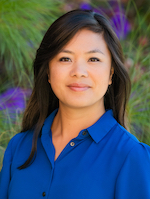
Karina Del Rosario (On leave until 1/5/25)
Statistics on UCSF students in 2023-2025 who were matched into Physical Medicine & Rehabilitation residency programs:
General Information about Specialty
The three most compelling aspects of this specialty:
- Longitudinal care of pts with disabilities
- Team-based/transdisciplinary approach to care
- Focus on improving physical and cognitive functioning of patientsto improve quality of life
What is the culture of this specialty?
Holistic, team based care that is patient centric in achieving pt's functional goals.
What are some common variations in career path in this specialty? What common fellowship opportunities exist in this specialty?
Career paths are quite varied in PM&R. Practitioners may focus on an inpatient practice at an acute rehabilitation center or, following fellowship training,on a purely outpatient practice with focus on interventional spine care or pain management. Practices may include an inpatient component that includesinpatient PM&R consultation, or an outpatient practice combined with an inpatient practice. Many PM&R physicians (physiatrists) may focus on treatingpatient in skilled nursing facilities or may concentrate on cancer rehabilitation. Some physiatrists, after fellowship training, may concentrate on a SportsMedicine Practice or a Pediatric Rehabilitation inpatient and outpatient practice. Career paths may include an academic practice or a practice with amulti-specialty group. Establishing a solo/private practice is less common, much like other subspecialties.
What does a typical work week look like in this specialty? How frequently can the average doctor in this specialty expect to work weekends/holidays/overnights?
This varies from the type of practice that a physician pursues (especially given the multiple specializations that can occur within the specialty). Providerswho attend acute rehabilitation programs may rotate home call with other physicians or physician extenders, but much of the calls are often managedover the phone. Many acute rehabilitation programs are often training sites for residents, and, thus, the need to come in from home is likely rare. Someprograms are covered by hospitalists such that no overnight call is required. For other practices, where outpatient services predominate, there isgenerally no overnight call or weekends.
How does this specialty support or challenge having a family?
As onsite overnight call for those with practices that include acute rehabilitation is generally not required, this tends to be less disruptive to family life.Physicians with purely outpatient practices enjoy the least disruption in terms of family life.
How competitive is the residency application process in this specialty?
Competition for PM&R residency has reportedly been increasing. On speaking with recent trainees applying to the specialty, applying to at least 25programs (for strong applicants)and 35+ programs have been the norm.
How competitive is the job market in this specialty (after residency/fellowship training)?
The job market has been favorable for both residents who go straight into practice and for those who pursue residency training. Physicians who completePediatric PM&R residencies are in high demand since there are so few providers in the nation. Most pediatric physiatrists practice in academic settings.
Guidance for F1 Students
What are the preferred ways for an early F1 student to show interest and obtain guidance in your specialty?
- Meet advisorMeet with the main (non-confidential) specialty advisor
- Join the official specialty interest group
- Shadow specialtyShadow a faculty member in the specialty
Are there specialty professional organizations that you recommend students join? If so, what are the costs of doing so, or are there resources for students with limited ability to pay membership fees? Are there specific activities (such as meetings or subgroups) that are recommended in the organization
American Academy of Physical Medicine and Rehabilitation: membership is free for medical students. Medical student resources are available on thewebsite. AAPMR offers special medical student programs during the annual academy meetings and throughout the year. Association of AcademicPhysiatrists: Possible funding is available for start up of special interest groups, opportunities to participate in a Medical Student Council and a MedicalStudent Career Advising Program are available.
How can students in your specialty demonstrate leadership?
Participation in coordinating activities of the PM&R Special Interest Group, participation in medical student activities of the AAPMR and AAP. Leadershiproles need not be limited to PM&R specific activities.
For students interested in your specialty, when should students become involved in research?
Before the end of F2
Guidance for F2 Students
If a student develops an unexpected interest in your specialty during F2, what are the best next steps to take to become a competitive applicant?
Reach out to a PM&R advisor to plan electives that will prepare them for "audition" sub-I's. We recommend that students rotate thru Ortho 140.08 (whichis the 4 week PM&R clerkship) to become more familiar with the specialty in preparation for outside sub-I's.
What F2 electives in your specialty or in another specialty are recommended for students strongly interested in your specialty?
CIE in Ortho would be helpful. Other electives relating to Neurology and/or Radiology would be helpful.
How can students demonstrate excellent performance in a F2 clerkship in your specialty?
The Ortho 140.08 PM&R Clerkship is an elective that we recommend to students interested in applying to PM&R. Students rotate thru various practicesettings (inpatient and outpatient). A strong working knowledge of the neuromusculoskeletal system would help students excel in this rotation. Reviewingthe articles in the reading list prior to attending clinic would also enhance their performance.
What guidance should students seek to prepare for Career Launch (4th year) clerkship scheduling?
Meet with a specialty advisor. Students should be in contact with a PM&R advisor sometime during their 2nd year.
Gap Year Guidance
Who in the department should be notified if a student is interested in taking a gap year?
The person to notify prior to a gap year is (name and email): [email protected] or [email protected]
Who in the department should be notified if a student is returning from a gap year and plans to apply in my specialty?
The person to notify prior to a gap year is (name and email): [email protected] or [email protected]
Are there specific electives or clinical experiences in your specialty recommended for students to take in CL blocks prior to taking a gap year?
No
Are there specific electives or clinical experiences in your specialty recommended for students returning from a gap year as a "warm up" prior to doing a sub-I in your specialty?
Ortho 140.08 PM&R clerkship.
For students planning their return from a gap year, are there any unique (to gap year) schedulingconsiderations? considerations? (For sub-Is/AIs, electives, away rotations, meetings with advisors, etc)?
Students should be in contact with a PM&R advisor prior to completion of their gap year to help plan for rotations upon return.
Guidance for Career Launch
Which courses (specifically sub-Is/acting internships) are strongly recommended or required in the summer prior to residency application? Are any specific sites recommended for these courses? Is more than 1 sub-I (or acting internship) recommended in your specialty?
As noted previously, we recommend Ortho 140.08 PM&R Clerkship prior to off site/outside sub I's.
What is the recommended timing of the medicine or family medicine acting internship (AI)?
No specific recommendations.
What electives are encouraged (but not required or strongly recommended) during Career Launch in your field or outside of your field?
Other electives that might be helpful include Neurology, Neurosurgery, Orthopaedic Surgery and Radiology (MSK or Neuroradiology).
If away rotations are recommended in your field, what advice do you tell students about selecting and procuring this experience?
Away rotations are strongly recommended for all students applying in my field. My advice to students about awayrotations rotations (including timing, number of away rotations, site selection, meeting with UCSF advisors) is: Students should participate in away rotation at programs where they are most interested in matching. Typically, students rotate to 2 away sub-I's.
Guidance for Residency Applications, Interviews and Matching
What aspects of an application are the most important to be competitive in this specialty?
| Absolutely essential | Very important | Somewhat important | Not at all impportant | |
|---|---|---|---|---|
| Extracurricular leadership efforts | X | |||
| Research/publications | X | |||
| Honors in specialty sub-internship | X | |||
| Honors in medicine or family medicine acting internship | X | |||
| Away rotations | X | |||
| USMLE Step 2 scores | X | |||
| Community work or service | X | |||
| Medical Student Performance Evaluation (MSPE) comments in my specialty | X | |||
| MSPE comments in other specialties | X | |||
| MSPE non-clinical sections (including "Noteworthy characteristics") | X | |||
| DEI and/or anti-oppressive work | X | |||
| Letters of recommendation | X | |||
| Leadership roles | X |
What aspects of an application would be particularly harmful in terms of competitiveness?
| Matching in specialty extremely unlikely | Matching in Specialty will be more challenging, but possible | No impact on competitiveness | |
|---|---|---|---|
| Negative comments regarding professionalism/physicianship | X | ||
| More than 1 attempt to pass USMLE Step 1 or 2 | X | ||
| Below-average-for-specialty score on Step 2 | X | ||
| No Step 2 score at the time of application submission | X | ||
| Multiple clerkship or exam failures that are apparent on the MSPE or transcript | X | ||
| Notation about extra time taken to complete a clerkship in the MSPE | X | ||
| Leave of absence from medical school not accounted for by outside degree program or research time | X |
Do programs in this specialty typically use "cut-off" USMLE scores to screen applications?
Uknown
What is the optimal timing for Step 2 CK?
Unknown
How much does a high Step 2 CK score mediate the results of a non-passing attempt at Step 1 (or Step 2)?
This would certainly help!
How does your specialty utilize the MSPE in applicant review? What types of "Noteworthy Characteristics" should an applicant emphasize in the MSPE?
Not known
Is research experience without publication valued in your specialty? If so, what are ways that this can be shown on their application/CV?
Students who state that they participated in a research experience but did not publish should elaborate on their role in the research group and providebackground as to why a publication was not forthcoming (perhaps their role was limited to data gathering.
Is research and/or publication in another specialty of value to an applicant? (This may be particularly applicable to an applicant making a late decision to apply in your specialty)
Yes
When advising about applying in your specialty, are students ever encouraged to apply in a backup specialty or dual apply in a second specialty? If so, when should students consider this? Who is the best person in my department to consult about this?
No
What departmental application events (general info, strategy, celebration) are held throughout the application and match season? Who should the student contact to be invited to these events?
None at this time
Any departmental or specialty specific websites or resources for residency application that yourecommend?
AAPMR and AAP (noted above) Texas Star.
Who are essential faculty to meet with before application (Department Chair, Main Specialty Advisor, Residency Program Director, etc)? What is the optimal timing for this meeting? What material or information should the student bring to this meeting? Who should the student contact to arrange this meeting?
PM&R Advisors: Lisa Pascual and Karina Del Rosario
In addition to the standard application, does your specialty use any form of supplemental application? If so, how does a student register for the supplemental application? Is there any specific advice that could be helpful in preparing a supplemental application?
I am told that program specific information/narratives might be requested by certain programs. (Of note, many of the in-demand sub-I's are requestingletters of recommendations as part of the paperwork to apply for a sub-I).
Advice on writing the personal statement? Are there important topics or themes that should be included?
No specific advice with the exception of being clear as to the student's motivations for applying to the specialty, including the activities that affirmed theirdecision and activities that they participated in to underscore their desire to pursue the field (e.g. PM&R related research).
Who in the department should review the personal statement? When should a good draft of the personal statement be presented to faculty reviewers?
PM&R advisor. A good draft should be submitted in time for the faculty to both review and discuss potential edits, additions, etc. with the student.
What is your recommended general approach or strategy for requesting letters of recommendation (LORs), particularly timing and etiquette?
As always, an LOR should be obtained from a faculty member who both knows the student well and who affirms that a strong letter of support can bewritten. We generally advise students to have one LOR for a UCSF faculty member who knows them well, one LOR from an attending at an outsideinstitution where they may have rotated and one other LOR.
Regarding letter writers, what characteristics (faculty rank, years of training, on resident selection committee, etc) should be considered?
If possible, mid-career or senior faculty is preferred, as the faculty member may comment on how the student fared given the breadth of their experiencewith other students -- however, this is not essential.
Does the department write a letter of recommendation ("Chair Letter"/ "Department Letter") for anapplicant? applicant? If so, who should they contact for this and when should they do so?
No
Of the total of 3 (or 4) letters that are part of an application, what is considered the best mix of letters? (letter)(eg: 1 from sub-internship, 1 additional clinical letter, 1 research letter, 1 department letter)?
As above, there is no particular standard. However, a good combination would be one UCSF physiatrist + one physiatrist from an outside institutionwhere the student may have rotated + one other letter.
Does your department have a Standardized/Supplemental Letter of Evaluation (such as SLOE)? If so, how canhow is this letter drafted (and by whom)? Is there any advice you recommend for students so that they canhave have an outstanding SLOE?
No
What types of variations in residency training programs are there in your specialty (eg, different tracks, different lengths)?
There are 4 year residency training programs that incorporate the intern year. Other programs start at the PGY-2 level. The advantage, of course, to the4 year programs is that the student need only move once and is able to learn more about the program/hospital system/medical school earlier thansomeone who starts as a PGY-2.
Who should students review their program list with?
PMR advisors
How many programs do you recommend a student that is average in terms of competitiveness apply to?
Given what we have been hearing, 20-25 for the strong applicant, 35+ for others.
Is there a “signaling” program for your specialty and if so, is there a strategy to use signals?
Yes. Unknown
When do interviews typically happen in your field? Is there optimal timing for scheduling interviews? During these months, what clinical or non-clinical rotations do you recommend for students?
Winter. By this time, PM&R sub-I's should have been completed.
Any advice or guidance about etiquette for cancelling interviews? Any strategy for which interviews to keep and which interviews to cancel?
Unknown: we hope to learn more after this match.
Are you anticipating all in-person, all virtual, or a mix of in-person and virtual interviews?
Unable to predict at this time. We will be checking in with students who are in thematch this year
During an interview, what should applicants be looking for and/or what questions should they consider asking that can help them clarify what programs will be most desirable?
A well rounded program that includes a balance between inpatient and outpatient rehabilitation. Programs should have both strong neuromusculartraining (TBI, CVA, SCI, other neurologic disorders and exposure to trauma, pediatrics) and MSK training (ultrasound, non interventional MSK, exposureto MSK procedures). Students should look for programs that ensure that trainees are able to perform at least 250 EMGs by the end of their training.Students should be seeking programs provide mentorship for both clinical and career advancement as well as research endeavors. A researchrequirement might be indicative of the program's desire to foster these skills in their trainees. If this exists, it would be important to know how the dept.supports these endeavors.
What is the recommended approach to post-interview communication? Are thank you notes recommended? Are “you are my #1 choice” letters recommended?
Unknown at this time (especially as we do not have our own PM&R residency program at this time). I do, however, participate in the Ortho residency interviews. I have received thank you notes. I think it is a nice touch, but has not swayed me in any way. I hear that some have received unsolicited verbal signaling that they will be ranking UCSF #1, but I am unaware/have not received letters to that effect.
Is there any special advice you give to students applying as a couple in the Match? If so, what is it?
No special advice. I suspect that this is particularly challenging in any specialty, particularly if one or both is/are applying to a very competitive specialty.
How many interviews should students with average (for specialty) competitiveness attend in order to have a good chance of matching?
Most recently, we have unofficially heard that students were invited to interview to approx 10+ programs, but will need to debrief after the match.
At what point in time should students be concerned about not having enough interviews? Who should they contact if that is the case?
Fortunately, we have not yet had this occur.
With whom should the students consult regarding creating the rank order list? What is the best timing for this?
PM&R advisors if they need help. In general, our past applicants were able to create this without advisor help.
Additonal Resources for Students
What UCSF resources are available within your department?
None currently
What specialty-wide/national resources are available?
None that we are currently aware of.
Preventive Medicine, Public Health
Contact Preventive Medicine, Public Health Advisors
MAIN
CONFIDENTIAL
General Information about Specialty
The three most compelling aspects of this specialty:
- Diverse training that spans population-level strategies with public health departments as well as clinical interventions with individual patients
- Fully funded MPH, and time for MPH coursework included in curriculum
- Wide range of career possibilities, including hybrid clinical-nonclinical positions
What is the culture of this specialty?
This specialty is extremely collegial and attracts individuals who are interested in alleviating social/structural determinants of health. Many preventive medicine physicians have a background in health equity, social justice work, as well as health care provision for underserved communities. In addition, because training programs a small (2-3 residents per class), trainees have close mentorship and often are able to design rotations that match their area of interest in order gain subject matter expertise.
What are some common variations in career path in this specialty? What common fellowship opportunities exist in this specialty?
Career path:
- Academic Medicine/Epidemiology
- Medical Officer for Public Health Department
- Epidemic Intelligence Service Officer
- Population Health Specialist for Health Services Organization
Fellowships:
- Addiction Medicine
- Toxicology
- Lifestyle Medicine
- Integrative Medicine
- Occupational Health
What does a typical work week look like in this specialty? How frequently can the average doctor in this specialty expect to work weekends/holidays/overnights?
For those pursuing careers in public health or epidemiology, the workweek is typically 8am-5pm Monday-Friday. Working weekends, holidays, and overnight is rare.
How does this specialty support or challenge having a family?
Generally supportive of personal/family goals. Public health career paths tend to have fewer work hours and more predictable schedules compared to other specialties, allowing more time and flexibility.
How competitive is the residency application process in this specialty?
If applying to a combined program, such as internal medicine/preventive medicine, the process is more competitive than internal medicine alone. Applicants interested in solely PHGPM training (non-combined) must complete at least one year of a clinical ACGME residency and pass USMLE Step 3 to be eligible.
How competitive is the job market in this specialty (after residency/fellowship training)?
Moderatively competitive
Guidance for F1 Students
What are the preferred ways for an early F1 student to show interest and obtain guidance in your specialty?
- Join the official specialty interest group: American College of Preventive Medicine
- Attend a specialty elective: Epidemiology 140.02B
Are there specialty professional organizations that you recommend students join? If so, what are the costs of doing so, or are there resources for students with limited ability to pay membership fees? Are there specific activities (such as meetings or subgroups) that are recommended in the organization
American College of Preventive Medicine events and webinars are encouraged.
https://www.acpm.org/education-events/events/
How can students in your specialty demonstrate leadership?
Becoming involved in research is not required in my specialty.
For students interested in your specialty, when should students become involved in research?
Before submitting an application to residency in my specialty
Guidance for F2 Students
If a student develops an unexpected interest in your specialty during F2, what are the best next steps to take to become a competitive applicant?
Volunteer with a public health department or seek mentorship within UCSF's Department of Epidemiology and Biostatistics
What F2 electives in your specialty or in another specialty are recommended for students strongly interested in your specialty?
Epidemiology 140.02B
What guidance should students seek to prepare for Career Launch (4th year) clerkship scheduling?
Meet with a specialty advisor. The best timing and person to meet with is: July-August, Mike Reid
Gap Year Guidance
Who in the department should be notified if a student is interested in taking a gap year?
Notifying someone in our department prior to a gap year is unnecessary
Who in the department should be notified if a student is returning from a gap year and plans to apply in my specialty?
Notifying someone in our department when returning from a gap year is unnecessary
Are there specific electives or clinical experiences in your specialty recommended for students to take in CL blocks prior to taking a gap year?
No
Are there specific electives or clinical experiences in your specialty recommended for students returning from a gap year as a "warm up" prior to doing a sub-I in your specialty?
No
For students planning their return from a gap year, are there any unique (to gap year) schedulingconsiderations? considerations? (For sub-Is/AIs, electives, away rotations, meetings with advisors, etc)?
No
Guidance for Career Launch
Which courses (specifically sub-Is/acting internships) are strongly recommended or required in the summer prior to residency application? Are any specific sites recommended for these courses? Is more than 1 sub-I (or acting internship) recommended in your specialty?
N/A
What is the recommended timing of the medicine or family medicine acting internship (AI)?
No specific timing
What electives are encouraged (but not required or strongly recommended) during Career Launch in your field or outside of your field?
Epidemiology 140.02B
If away rotations are recommended in your field, what advice do you tell students about selecting and procuring this experience?
Away rotations are strongly recommended for all students applying in my field. My advice to students about away rotations (including timing, number of away rotations, site selection, meeting with UCSF advisors) is: Rotations with public health entities or organizations focusing on population health are encouraged.
Guidance for Residency Applications, Interviews and Matching
What aspects of an application are the most important to be competitive in this specialty?
| Absolutely essential | Very important | Somewhat important | Not at all impportant | |
|---|---|---|---|---|
| Extracurricular leadership efforts | X | |||
| Research/publications | X | |||
| Honors in specialty sub-internship | X | |||
| Honors in medicine or family medicine acting internship | X | |||
| Away rotations | X | |||
| USMLE Step 2 scores | X | |||
| Community work or service | X | |||
| Medical Student Performance Evaluation (MSPE) comments in my specialty | X | |||
| MSPE comments in other specialties | X | |||
| MSPE non-clinical sections (including "Noteworthy characteristics") | X | |||
| DEI and/or anti-oppressive work | X | |||
| Letters of recommendation | X | |||
| Leadership roles | X |
What aspects of an application would be particularly harmful in terms of competitiveness?
| Matching in specialty extremely unlikely | Matching in Specialty will be more challenging, but possible | No impact on competitiveness | |
|---|---|---|---|
| Negative comments regarding professionalism/physicianship | X | ||
| More than 1 attempt to pass USMLE Step 1 or 2 | X | ||
| Below-average-for-specialty score on Step 2 | X | ||
| No Step 2 score at the time of application submission | X | ||
| Multiple clerkship or exam failures that are apparent on the MSPE or transcript | X | ||
| Notation about extra time taken to complete a clerkship in the MSPE | X | ||
| Leave of absence from medical school not accounted for by outside degree program or research time | X |
Do programs in this specialty typically use "cut-off" USMLE scores to screen applications?
Unknown
How much does a high Step 2 CK score mediate the results of a non-passing attempt at Step 1 (or Step 2)?
Moderately
How does your specialty utilize the MSPE in applicant review? What types of "Noteworthy Characteristics" should an applicant emphasize in the MSPE?
Commitment to service, track record of interest in public health, excellent organizational skills
Is research experience without publication valued in your specialty? If so, what are ways that this can be shown on their application/CV?
Yes, can include as volunteer/menteeship
Is research and/or publication in another specialty of value to an applicant? (This may be particularly applicable to an applicant making a late decision to apply in your specialty)
Yes
When advising about applying in your specialty, are students ever encouraged to apply in a backup specialty or dual apply in a second specialty? If so, when should students consider this? Who is the best person in my department to consult about this?
Combined programs are valuable for students interested in both clinical and public health career paths.
What departmental application events (general info, strategy, celebration) are held throughout the application and match season? Who should the student contact to be invited to these events?
None
Any departmental or specialty specific websites or resources for residency application that you recommend?
Who are essential faculty to meet with before application (Department Chair, Main Specialty Advisor, Residency Program Director, etc)? What is the optimal timing for this meeting? What material or information should the student bring to this meeting? Who should the student contact to arrange this meeting?
Mike Reid
In addition to the standard application, does your specialty use any form of supplemental application? If so, how does a student register for the supplemental application? Is there any specific advice that could be helpful in preparing a supplemental application?
No
Advice on writing the personal statement? Are there important topics or themes that should be included?
Expressed interest in population health and public health, with emphasis on experience in those areas.
Who in the department should review the personal statement? When should a good draft of the personal statement be presented to faculty reviewers?
Mike Reid
What is your recommended general approach or strategy for requesting letters of recommendation (LORs), particularly timing and etiquette?
Contact recommenders via email with at least one month lead time. Include - if possible - draft personal statement and CV.
Regarding letter writers, what characteristics (faculty rank, years of training, on resident selection committee, etc) should be considered?
Faculty whose work interfaces with public health, who know the applicant well and can speak to the applicant's background in public health related projects.
Does the department write a letter of recommendation ("Chair Letter"/ "Department Letter") for anapplicant? applicant? If so, who should they contact for this and when should they do so?
No
Of the total of 3 (or 4) letters that are part of an application, what is considered the best mix of letters? (letter)(eg: 1 from sub-internship, 1 additional clinical letter, 1 research letter, 1 department letter)?
N/A
Does your department have a Standardized/Supplemental Letter of Evaluation (such as SLOE)? If so, how canhow is this letter drafted (and by whom)? Is there any advice you recommend for students so that they canhave have an outstanding SLOE?
No
What types of variations in residency training programs are there in your specialty (eg, different tracks, different lengths)?
Residency programs are 2 years if standalone, four or more years if combined with internal medicine or another primary care specialty.
Who should students review their program list with?
Mike Reid
How many programs do you recommend a student that is average in terms of competitiveness apply to?
10 - 20
Is there a “signaling” program for your specialty and if so, is there a strategy to use signals?
Yes, a signaling program exists.
When do interviews typically happen in your field? Is there optimal timing for scheduling interviews? During these months, what clinical or non-clinical rotations do you recommend for students?
October - December
Any advice or guidance about etiquette for cancelling interviews? Any strategy for which interviews to keep and which interviews to cancel?
Cancel interviews and notify the program email as soon as the applicant decides they would not join the program were they to match there.
Are you anticipating all in-person, all virtual, or a mix of in-person and virtual interviews?
All virtual
During an interview, what should applicants be looking for and/or what questions should they consider asking that can help them clarify what programs will be most desirable?
Description of Rotations and Rotation Sites, flexibility around rotations and electives, alumni career paths post-training.
What is the recommended approach to post-interview communication? Are thank you notes recommended? Are “you are my #1 choice” letters recommended?
Is there any special advice you give to students applying as a couple in the Match? If so, what is it?
No
How many interviews should students with average (for specialty) competitiveness attend in order to have a good chance of matching?
10 - 12
At what point in time should students be concerned about not having enough interviews? Who should they contact if that is the case?
N/A
Additional resources for students
What specialty-side/national resources are available?
The American Board of Preventive Medicine is dedicated to diversity, as outlined in their by-laws. In addition, American College of Preventive Medicine's Policy Statement on Health Equity includes a commitment to training a diverse workforce of public health physician
Psychiatry
Contact Psychiatry Advisors
Statistics on UCSF students in 2023-2025 who were matched into Psychiatry residency programs:
General Information about Specialty
The three most compelling aspects of this specialty:
- Wide variety of practice settings
- Ability to collaborate with the patient on their treatment plan
- Life-Work Balance
Guidance for F1 Students
What are the preferred ways for an early F1 student to show interest and obtain guidance in your specialty?
- 1. Meet with the confidential advisor
- Meet with the main (non-confidential) advisor
- Join the Specialty Interest Group
- Attend a specialty elective
- Shadow a faculty member in the specialty: see this link for shadowing opportunities in the department
- Get involved in a research project in a specialty
Are there specialty professional organizations that you recommend students join? If so, what are the costs of doing so, or are there resources for students with limited ability to pay membership fees? Are there specific activities (such as meetings or subgroups) that are recommended in the organization
Learn more by joining national psychiatry organizations, such as the American Psychiatric Association (http://www.psychiatry.org/), or the American Academy of Child & Adolescent Psychiatry (http://www.aacap.org/). A very useful informational website about psychiatry as a discipline is http://www.psychiatry.org/medical-students. Additional organizations worth exploring are the Association for Academic Psychiatry (https://www.academicpsychiatry.org/), American Association of Directors of Psychiatry Residency Training (https://www.aadprt.org/), and Association of Directors of Medical Student Education in Psychiatry (https://www.admsep.org/).
How can students in your specialty demonstrate leadership?
In the pre-clerkship years getting involved in the student psychiatry interest group, as well as being involved in national organizations (see above). Additionally, connecting with research or scholarly projects at any time during one’s medical school years.
For students interested in your specialty, when should students become involved in research?
Becoming involved in research is not required for my specialty.
Guidance for F2 Students
How can students best prepare for a core F2 clerkship in your specialty? Are there specific resources (websites, books, documents) that you recommend? Should a student meet with any designated faculty in the department prior to the core F2 clerkship?
No specific preparation is needed for F2 clerkship. However, if you wish to be extra prepared, here are some suggestions from the clerkship directors: The best resource is almost certainly First Aid for the Psychiatry Clerkship! Historically it has been the right scope and breadth for both doing well during the clerkship, and capturing the level of medical knowledge for the shelf exam. (There is a section at the beginning about professionalism and interviewing patients with mental disorders, then most of the book is medical knowledge.)
Every student currently uses UWorld, and I think using it for Psychiatry Clerkship is fine, though it’s better for testing understanding than learning/teaching. The NBME Practice Test is closest to the “real thing” too, I might save it for the last 1-2 weeks before the exam to figure out of there are subject areas that need brushing up on. There are 20 free NBME practice questions here: https://www.nbme.org/sites/default/files/2022-01/Psychiatry_Sample_Items.pdf
Students should know that to perform well on the shelf, they must also study these topics:
- General Neurology topics appear on the Psychiatry shelf (this is 12-14% of questions, includes core diagnoses of stroke, seizure, movement disorders, sleep disorders). Physiological and imaging findings (MRI, EEG) of neuropsych syndrome (including toxicities, malnutrition, dementia) are fair game.
- Normal developmental milestones (may have learned this in Pediatrics) appear on the Psychiatry shelf (10% of test is about child psych)
A copy of the DSM-5-TR is available online here. UCSF students have access to this via UCSF Library.
What are the differences (if any) between between sites of the core clerkship?
The main differences are the patient populations between ZSFG, the VA, and UCSF. Patients at ZSFG have SF county MediCal insurance, at UCSF they’ll typically have private health insurance, and the VA serves patients who are military veterans.
Inpatient units and emergency departments (e.g. ZSFG’s Psychiatric Emergency Services, or PES) are a chance to see patients who are acutely ill with active psychiatric symptoms. Currently, you can be assigned to inpatient units at UCSF Mt. Zion or ZSFG Building 5. The VA does not currently have an inpatient unit. The consult/liaison service at each site provides opportunities to address the intersection between physical and emotional health.
If a student develops an unexpected interest in your specialty during F2, what are the best next steps to take to become a competitive applicant?
Set up a time to meet with a career advisor—or more than one so you hear diverse perspectives! Ensure your career launch schedule is set up for success. Get involved in research or scholarly projects in the area and volunteer at crisis hotlines, walk in clinics, etc.
What F2 electives in your specialty or in another specialty are recommended for students strongly interested in your specialty?
Any of the core clerkship sites will provide a robust F2 experience. We strongly recommend an inpatient psychiatric experience at any site either in F2 or Career Launch. Select F2 electives that complement what you experienced in your core clerkship. That complement cold come as a different level of care (e.g. inpatient vs. outpatient), different patient population (e.g. VA vs. ZSFG), or different types of psychopathology (e.g. primarily adult psychotic disorders vs. primarily child and adolescent eating disorders), etc. There aren’t other specialty electives we strongly recommend but common ones are internal medicine, family medicine, emergency medicine, and palliative care.
How can students demonstrate excellent performance in a F2 clerkship in your specialty?
Be engaged! Pick up and follow patients. Read up on things you have seen and present them the next day. An important skill to master is being able to perform a mental status exam. Ask questions and offer to help.
What guidance should students seek to prepare for Career Launch (4th year) clerkship scheduling?
- Meet with a specialty advisor. The best timing & person to meet with is: As soon as you think you’re going into psychiatry. Any career advisor.
- There is a group orientation in our specialty prior to Career Launch. Students can find out about it by contacting (please include email) Wenia Lee
Gap Year Guidance
Who in the department should be notified if a student is interested in taking a gap year?
The person to notify prior to a gap year is (name and email): Any career advisor
Who in the department should be notified if a student is returning from a gap year and plans to apply in my specialty?
The person to notify prior to a gap year is (name and email): The person to notify prior to a gap year is any career advisor.
Are there specific electives or clinical experiences in your specialty recommended for students to take in CL blocks prior to taking a gap year?
No
Are there specific electives or clinical experiences in your specialty recommended for students returning from a gap year as a "warm up" prior to doing a sub-I in your specialty?
No
For students planning their return from a gap year, are there any unique (to gap year) schedulingconsiderations? considerations? (For sub-Is/AIs, electives, away rotations, meetings with advisors, etc)?
We would definitely recommend meeting with advisors and doing at least one other rotation before jumping into a Sub-I! Away rotations are optional and depend on your personal interests and style of learning.
Guidance for Career Launch
Which courses (specifically sub-Is/acting internships) are strongly recommended or required in the summer prior to residency application? Are any specific sites recommended for these courses? Is more than 1 sub-I (or acting internship) recommended in your specialty?
We recommend doing 1 Sub-I prior to applications due. Our Sub-Is are focused in intensive services including inpatient psychiatry at UCSF Health (Langley Porter) or ZSFG; Consult-Liaison at UCSF Parnassus or ZSFG. We ask that you refrain from doing more than 1 Sub-I to ensure there’s space for everyone to do one.
What is the recommended timing of the medicine or family medicine acting internship (AI)?
It depends on if you need this rotation to be your third (non-psychiatry letter).
What electives are encouraged (but not required or strongly recommended) during Career Launch in your field or outside of your field?
Recommend doing a sub-I or elective at a site and type of rotation that is different from clerkship rotation. Example: if consults, do inpatient or outpatient. If at ZSFG, do Parnassus or VA. This will give you more breadth of experiences in psychiatry. There aren’t other specialty electives we strongly recommend but common ones are internal medicine, family medicine, emergency medicine, and palliative care.
If away rotations are recommended in your field, what advice do you tell students about selecting and procuring this experience?
Away rotations are only recommended under the following circumstances: If you have a specific area or program you are interested in and are able to jump into a new environment to be engaged from the start of the rotation.
Guidance for Residency Applications, Interviews and Matching
What aspects of an application are the most important to be competitive in this specialty?
| Absolutely essential | Very important | Somewhat important | Not at all impportant | |
|---|---|---|---|---|
| Extracurricular leadership efforts | X | |||
| Research/publications | X | |||
| Honors in specialty sub-internship | X | |||
| Honors in medicine or family medicine acting internship | X | |||
| Away rotations | X | |||
| USMLE Step 2 scores | X | |||
| Community work or service | X | |||
| Medical Student Performance Evaluation (MSPE) comments in my specialty | X | |||
| MSPE comments in other specialties | X | |||
| MSPE non-clinical sections (including "Noteworthy characteristics") | X | |||
| DEI and/or anti-oppressive work | X | |||
| Letters of recommendation | X | |||
| Leadership roles | X |
What aspects of an application would be particularly harmful in terms of competitiveness?
| Matching in specialty extremely unlikely | Matching in Specialty will be more challenging, but possible | No impact on competitiveness | |
|---|---|---|---|
| Negative comments regarding professionalism/physicianship | X | ||
| More than 1 attempt to pass USMLE Step 1 or 2 | X | ||
| Below-average-for-specialty score on Step 2 | X | ||
| No Step 2 score at the time of application submission | X | ||
| Multiple clerkship or exam failures that are apparent on the MSPE or transcript | X | ||
| Notation about extra time taken to complete a clerkship in the MSPE | X | ||
| Leave of absence from medical school not accounted for by outside degree program or research time | X |
Do programs in this specialty typically use "cut-off" USMLE scores to screen applications?
No
What is the optimal timing for Step 2 CK?
By August so scores are back by the time applications are submitted.
How much does a high Step 2 CK score mediate the results of a non-passing attempt at Step 1 (or Step 2)?
We don’t have a lot of data on this so cannot say one way or another.
How does your specialty utilize the MSPE in applicant review? What types of "Noteworthy Characteristics" should an applicant emphasize in the MSPE?
Psychiatry residency programs are quite holistic when reviewing applicants. At our program and many other top programs nationally, the MSPE is considered to be a major component of an application. Programs will want to see that applicants are consistently able to manage their assigned clinical work, demonstrate a passion for and commitment to psychiatry, and are reliable, team players with whom others are excited to work.
Is research experience without publication valued in your specialty? If so, what are ways that this can be shown on their application/CV?
Yes. This can be shown in poster presentations or oral presentations. Research experience can also be referenced in a personal statement or a PI could be a letter writer from a meaningful experience.
Is research and/or publication in another specialty of value to an applicant? (This may be particularly applicable to an applicant making a late decision to apply in your specialty)
Though not a requirement, research and/or scholarship demonstrates a commitment to longitudinal efforts. Certainly this would be seen favorably within the often longitudinal change process that occurs in the care of psychiatric conditions.
When advising about applying in your specialty, are students ever encouraged to apply in a backup specialty or dual apply in a second specialty? If so, when should students consider this? Who is the best person in my department to consult about this?
Generally speaking, we do not encourage a backup specialty. Dual applications should be discussed with at least one career advisor for your specific context.
What departmental application events (general info, strategy, celebration) are held throughout the application and match season? Who should the student contact to be invited to these events?
These are generally through the School of Medicine Advising Program. Keep in touch with your career advisor and keep an eye on the medical student weekly digest.
Any departmental or specialty specific websites or resources for residency application that you recommend?
Spend time on the UCSF Profiles site to learn more about the interests of the UCSF faculty. The following national psychiatry organizations are valuable resources:
American Psychiatric Association
American Academy of Child & Adolescent Psychiatry
Association for Academic Psychiatry
American Association of Directors of Psychiatry Residency Training
Association of Directors of Medical Student Education in Psychiatry
Who are essential faculty to meet with before application (Department Chair, Main Specialty Advisor, Residency Program Director, etc)? What is the optimal timing for this meeting? What material or information should the student bring to this meeting? Who should the student contact to arrange this meeting?
Psychiatry does not have a specialty residency advisor that is separate from the confidential advisors. Neither of the confidential advisors sit on residency selection, so all communications are confidential. It is not required to meet with the advisors, but is highly encouraged. All of the specialty residency advisors and confidential advisors work collaboratively, and encourage students to meet with more than one advisor to appreciate similarities and differences in the advisors’ recommendations. Students may reach out with questions at any time but typically have more questions when deciding whether psychiatry is the right field and then for decisions around electives, personal statement feedback, and as the application process unfolds.
In addition to the standard application, does your specialty use any form of supplemental application? If so, how does a student register for the supplemental application? Is there any specific advice that could be helpful in preparing a supplemental application?
Each residency program will often have a supplemental application. It’s important to learn about the specific program in order to tailor the responses on the supplemental application.
Advice on writing the personal statement? Are there important topics or themes that should be included?
The personal statement is really the spot to share your journey to psychiatry in a strong personal narrative form. Programs like to see your commitment to and understanding of your motivations and personal experiences that connect you to the field. If there are any red flags in your application (e.g. failing a STEP exam or clerkship) then the personal statement is a good place to explain what happened and what you learned from the experience. It is also a good idea to have people who know you well outside of psychiatry or medicine read your draft personal statement to see if it really captures you as a person (in addition to your interests in psychiatry).
Consider using the LEAP method to demonstrate the ability to critically reflect on one’s experiences. (reference: Aronson L, Niehaus B, Hill-Sakurai L, Lai C, O’Sullivan PS. A comparison of two methods of teaching reflective ability in Year 3 medical students: Comparison of teaching methods for reflection. Medical Education. 2012;46(8):807-814. doi:10.1111/j.1365-2923.2012.04299.x)
Who in the department should review the personal statement? When should a good draft of the personal statement be presented to faculty reviewers?
It is generally appropriate to ask for letters as close to the time you worked together as possible. If you are starting a rotation where you anticipate asking for a letter, it is acceptable to mention this fact early in your working relationship so candidate reviewers are aware. Though not ideal, it is certainly appropriate to request a letter from someone you worked with several months prior to the request. In any case, it is helpful to your letter-writers to provide some sort of reminder of and reflection on your experience that they can incorporate into their recommendations. Lastly, it is also wise to create a graceful way for your candidate(s) to decline writing you a letter if they don’t feel they can write a strong letter of support. One strategy is to inform them that you’re asking others as well so you understand if you’ve caught them at a challenging time, etc.
Regarding letter writers, what characteristics (faculty rank, years of training, on resident selection committee, etc) should be considered?
Most important is that the letter writer know some aspect of you and your “candidate-package" for residency quite well. While always best to have attending-level writers of any rank, it is certainly acceptable to have fellows or residents write letters. Unless you worked together doing research or some other longitudinal relationship, these earlier-career letter writers would most likely be stronger letters if commenting on your clinical strengths.
Does the department write a letter of recommendation ("Chair Letter"/ "Department Letter") for anapplicant? applicant? If so, who should they contact for this and when should they do so?
No there is no department chair letter in psychiatry.
Of the total of 3 (or 4) letters that are part of an application, what is considered the best mix of letters? (letter)(eg: 1 from sub-internship, 1 additional clinical letter, 1 research letter, 1 department letter)?
It is a good idea to have a mix of letter writers that can comment different aspects of your “candidate-package.” At least one should speak to your interpersonal strengths as a future clinician, and should likely come from a psychiatrist. A non-psychiatry clinical letter complements this first letter. If you have had extensive research experience then a second letter can highlight those aspects of your candidacy. Lastly, if you have a strong interest in serving a particular patient population, a letter speaking to that (longitudinal) commitment to that community can complement other letters in the package.
What types of variations in residency training programs are there in your specialty (eg, different tracks, different lengths)?
The vast majority of general adult psychiatry residency programs are 4 years long, and incorporate the internship year as part of the 4-year training program. Some people complete an initial 1-year internship, and then enter psychiatry residency in the PGY-2 year. Entering as a PGY-2 is also feasible for individuals who start in a different specialty and/or discover psychiatry is a better fit.
At the back end of the residency training years, it is possible to “fast-track” into a 2-year child & adolescent psychiatry fellowship and forgo the PGY-4 year of adult residency. This strategy shortens a 6-year process of becoming a child & adolescent psychiatrist down to 5 years.
There are several combined “Triple Board” residency-fellowship programs throughout the country, wherein residents can complete training required to be board-certified in Adult Psychiatry, Child Psychiatry, and Pediatrics in only 5 years.
There are other combined residency programs throughout the country, including Family Medicine-Psychiatry programs and Internal Medicine-Psychiatry programs.
Who should students review their program list with?
Any of the career advisers.
Is there a “signaling” program for your specialty and if so, is there a strategy to use signals?
Yes a signaling program exists. My strategy recommendations are: Don’t try to “game” the system-- use your signals for programs you are genuinely interested in attending. The only exception would be if a career advisor tells you otherwise.
When do interviews typically happen in your field? Is there optimal timing for scheduling interviews? During these months, what clinical or non-clinical rotations do you recommend for students?
Late October to Late January. We recommend doing electives with minimal clinical activity during the November & December months.
Any advice or guidance about etiquette for cancelling interviews? Any strategy for which interviews to keep and which interviews to cancel?
Give as much notice as possible and be polite. Remember that programs may talk to one another. Choose interviews at programs you’re interested in attending and want to learn more about.
Are you anticipating all in-person, all virtual, or a mix of in-person and virtual interviews?
All virtual
During an interview, what should applicants be looking for and/or what questions should they consider asking that can help them clarify what programs will be most desirable?
What to look for in residency is quite dependent on the individual candidate! Do you want to be in a smaller community-based program or a larger academic health center? Do you want to be in a smaller program (n = 2 residents/year) or a larger one (n = 16-20 residents/year)? Do you want a program that is primarily biologically-oriented, or one that includes significant training in psychotherapy? Do you have a desire to be in larger metro areas? Do you have a particular scholarly or research domain where particular teams are located? Do you want exposure to multiple training sites or would you prefer longitudinal continuity with fewer hospitals & clinics? And do you want exposure to particular patient populations (e.g. children, geriatrics, public psychiatry, etc.)?
What is the recommended approach to post-interview communication? Are thank you notes recommended? Are “you are my #1 choice” letters recommended?
It is quite appropriate to communicate your gratitude after interviews (including thank you notes). If you are confident in your rank order list, declaring your commitment to a single program as your #1 choice” is acceptable. Remember that you have all the power in your disclosure, but program directors are bound by rules restricting what they can (and explicitly cannot) disclose.
Is there any special advice you give to students applying as a couple in the Match? If so, what is it?
Apply broadly and be open to compromise!
How many interviews should students with average (for specialty) competitiveness attend in order to have a good chance of matching?
We recommend having at least 10 programs to rank which means at least 10 interviews!
At what point in time should students be concerned about not having enough interviews? Who should they contact if that is the case?
If you have fewer than 10 interview invitations by early November, please reach out to any psychiatry Career Advisor – ideally one that you’ve been working with!
With whom should the students consult regarding creating the rank order list? What is the best timing for this?
Any career advisor at least one week before rank lists are due.
Additional Resources for Students
What UCSF resources are available within your department?
- Along with other UCSF residency programs across many specialties, the UCSF Psychiatry Residency Training Program partners with the UCSF GME Diversity Office to host a “First Look” Event each year prior to ERAS applications opening. In the first half, the Office of GME will virtually welcome senior medical students from across the country to hear from UCSF leadership, residents, and faculty. The second half will place students in breakout groups based on specialty interests. This event is a great opportunity to meet UIM-identified residents and faculty at UCSF.
- The UCSF Psychiatry Residency Training Program also supports UIM-identified students applying specifically into psychiatry by organizing a Virtual Mentoring Program. Select residency applicants applying to our residency program are paired with a UCSF resident and faculty mentor with the following goals:
- Foster relationships with faculty and residents
- Provide opportunities to learn about UCSF and our residency program
- Provide application support
What specialty-wide/national resources are available?
The American Psychiatric Association “Roadmap to Psychiatry” summary is excellent. Find it here
Nationwide psychiatry clerkship applications for UIM-identified students are forwarded regularly to the UCSF medical student newsletter. Example
Applicants from backgrounds UIM are highly encouraged to apply to and/or self-nominate for fellowships and awards through the American Psychiatric Association, the Student National Medical Association (SNMA), The Latino Medical Student Association (LMSA), and other subspecialty organizations within psychiatry (e.g. the American Academy of Child and Adolescent Psychiatry).
Radiation Oncology
Contact Radiation Oncology Advisors
MAIN
CONFIDENTIAL
Statistics on UCSF students in 2022-24 who were matched into Radiation Oncology residency programs:
General Information about Specialty
The three most compelling aspects of this specialty:
Radiation Oncologists are afforded the opportunity to care for both adult and pediatric patients undergoing cancer care in interdisciplinary teams, leveraging advanced technologies, and practicing within a procedural ambulatory setting.
What is the culture of this specialty?
The culture is highly collegial as care of cancer patients is fundamentally interdisciplinary, typified by coordination and collaboration among members of a large treatment team including radiation oncologists, surgeons, medical oncologists, radiologists, nurses, therapists, physicists, and dosimetrists.
What are some common variations in career path in this specialty? What common fellowship opportunities exist in this specialty?
After training, careers encompass full-time lab-based positions, academic positions, and positions in private practice. Most graduating residents will begin careers as attending physicians in either academics or private practice. There are some 1-2 year fellowships in select areas of radiation oncology including pediatrics, stereotactic radiotherapy, proton therapy, and brachytherapy, for example.
What does a typical work week look like in this specialty? How frequently can the average doctor in this specialty expect to work weekends/holidays/overnights?
An 8-10 hour workday is standard and may involve new patient consultations, follow up clinic, tumor boards, treatment planning, quality and safety rounds, special procedures in the operating room, and care of patients currently receiving radiotherapy treatment, as well as teaching and research in the academic setting.
How does this specialty support or challenge having a family?
The field is highly compatible with family life. The field is largely practiced in an ambulatory clinic setting with time available for family and professional development outside of the structure clinic work week.
How competitive is the residency application process in this specialty?
Residency programs in radiation oncology are highly competitive.
How competitive is the job market in this specialty (after residency/fellowship training)?
The job market is favorable for both academic and private practice careers. Job applicants should be flexible as to the particular disease subsite(s) focus upon initially entering the job market.
Guidance for F1 Students
What are the preferred ways for an early F1 student to show interest and obtain guidance in your specialty?
- Meet with the main (non-confidential) specialty advisor
- Attend a specialty elective: CIEX or 4 week rotation
- Shadow a faculty member in the specialty
Are there specialty professional organizations that you recommend students join? If so, what are the costs of doing so, or are there resources for students with limited ability to pay membership fees? Are there specific activities (such as meetings or subgroups) that are recommended in the organization
ASTRO provides free membership for trainees.
How can students in your specialty demonstrate leadership?
Leadership can be demonstrated in academic projects and volunteer activities.
For students interested in your specialty, when should students become involved in research?
Before submitting an application to residency in my specialty.
Guidance for F2 Students
How can students best prepare for a core F2 clerkship in your specialty? Are there specific resources (websites, books, documents) that you recommend? Should a student meet with any designated faculty in the department prior to the core F2 clerkship?
As radiation oncology generally is not highlighted as part of the core preclinical curriculum, students should seek out opportunities to spend time within the radiation oncology department. We have a two week CIEx available. We also welcome students for shadowing attending physicians or residents within the department over the course of a few days or weeks informally or choosing an LCE instructor within the Radiation Oncology Department.
If a student develops an unexpected interest in your specialty during F2, what are the best next steps to take to become a competitive applicant?
Contact one of the advisors.
What F2 electives in your specialty or in another specialty are recommended for students strongly interested in your specialty?
Diagnostic radiology or oncology are recommended but not required.
How can students demonstrate excellent performance in a F2 clerkship in your specialty?
Show engagement, be prepared as aligned with expectations, demonstrate strong fundamental clinical skills.
What guidance should students seek to prepare for Career Launch (4th year) clerkship scheduling?
Meet with a specialty advisor. The best timing and person to meet with advisors from May - June.
Gap Year Guidance
Who in the department should be notified if a student is interested in taking a gap year?
Notifying someone in our department prior to a gap year is unnecessary.
Who in the department should be notified if a student is returning from a gap year and plans to apply in my specialty?
Notifying someone in our department when returning from a gap year is unnecessary.
Are there specific electives or clinical experiences in your specialty recommended for students to take in CL blocks prior to taking a gap year?
No
Are there specific electives or clinical experiences in your specialty recommended for students returningfrom a gap year as a "warm up" prior to doing a sub-I in your specialty?
No
For students planning their return from a gap year, are there any unique (to gap year) schedulingconsiderations? considerations? (For sub-Is/AIs, electives, away rotations, meetings with advisors, etc)?
N/A
Guidance for Career Launch
Which courses (specifically sub-Is/acting internships) are strongly recommended or required in the summer prior to residency application? Are any specific sites recommended for these courses? Is more than 1 sub-I (or acting internship) recommended in your specialty?
Sub-I in Radiation Oncology is recommended.
What is the recommended timing of the medicine or family medicine acting internship (AI)?
N/A
What electives are encouraged (but not required or strongly recommended) during Career Launch in your field or outside of your field?
N/A
If away rotations are recommended in your field, what advice do you tell students about selecting and procuring this experience?
way rotations are strongly recommended for all students applying in my field. My advice to students about away rotations (including timing, number of away rotations, site selection, meeting with UCSF advisors) is: Seek rotations in programs where you may want to train for residency.
Guidance for Residency Applications, Interviews and Matching
What aspects of an application are the most important to be competitive in this specialty?
| Absolutely essential | Very important | Somewhat important | Not at all impportant | |
|---|---|---|---|---|
| Extracurricular leadership efforts | X | |||
| Research/publications | X | |||
| Honors in specialty sub-internship | X | |||
| Honors in medicine or family medicine acting internship | X | |||
| Away rotations | X | |||
| USMLE Step 2 scores | X | |||
| Community work or service | X | |||
| Medical Student Performance Evaluation (MSPE) comments in my specialty | X | |||
| MSPE comments in other specialties | X | |||
| MSPE non-clinical sections (including "Noteworthy characteristics") | X | |||
| DEI and/or anti-oppressive work | X | |||
| Letters of recommendation | X | |||
| Leadership roles | X |
What aspects of an application would be particularly harmful in terms of competitiveness?
| Matching in specialty extremely unlikely | Matching in Specialty will be more challenging, but possible | No impact on competitiveness | |
|---|---|---|---|
| Negative comments regarding professionalism/physicianship | X | ||
| More than 1 attempt to pass USMLE Step 1 or 2 | X | ||
| Below-average-for-specialty score on Step 2 | X | ||
| No Step 2 score at the time of application submission | X | ||
| Multiple clerkship or exam failures that are apparent on the MSPE or transcript | X | ||
| Notation about extra time taken to complete a clerkship in the MSPE | X | ||
| Leave of absence from medical school not accounted for by outside degree program or research time | X |
Do programs in this specialty typically use "cut-off" USMLE scores to screen applications?
No
What is the optimal timing for Step 2 CK?
Before graduation.
How much does a high Step 2 CK score mediate the results of a non-passing attempt at Step 1 (or Step 2)?
It can help overcome concerns with Step 1 failure.
How does your specialty utilize the MSPE in applicant review? What types of "Noteworthy Characteristics" should an applicant emphasize in the MSPE?
MSPE is reviewed holistically. Evidence of empathy, teamwork, and resilience are desirable.
Is research experience without publication valued in your specialty? If so, what are ways that this can be shown on their application/CV?
Dissemination of research through abstracts and presentations, both local and national are valued when publication is not available.
Is research and/or publication in another specialty of value to an applicant? (This may be particularly applicable to an applicant making a late decision to apply in your specialty)
Any research is of value as it demonstrates intellectual curiosity.
When advising about applying in your specialty, are students ever encouraged to apply in a backup specialty or dual apply in a second specialty? If so, when should students consider this? Who is the best person in my department to consult about this?
Many applicants consider medicine or surgery as a backup as a path to other oncologic specialities.
What departmental application events (general info, strategy, celebration) are held throughout the application and match season? Who should the student contact to be invited to these events?
A virtual meet-and-greet is held over the summer prior to application season. Interested students may contact the Education Program Manager for details.
Any departmental or specialty specific websites or resources for residency application that you recommend?
- The Radiation Oncology specialty association, ASTRO, has resources for medical students
- There is information about the UCSF Radiation Oncology training program
Who are essential faculty to meet with before application (Department Chair, Main Specialty Advisor, Residency Program Director, etc)? What is the optimal timing for this meeting? What material or information should the student bring to this meeting? Who should the student contact to arrange this meeting?
Best to meet with one of the specialty advisors before application in the summer prior to the Match season.
In addition to the standard application, does your specialty use any form of supplemental application? If so, how does a student register for the supplemental application? Is there any specific advice that could be helpful in preparing a supplemental application?
N/A
Advice on writing the personal statement? Are there important topics or themes that should be included?
The personal statement should include the nature of your interest in the specialty and some component of what you seek to accomplish during training and beyond in independent practice.
Who in the department should review the personal statement? When should a good draft of the personal statement be presented to faculty reviewers?
We do not routinely review applicant personal statements.
What is your recommended general approach or strategy for requesting letters of recommendation (LORs), particularly timing and etiquette?
LORs should be requested in a timely fashion. Generally these would be requested at the end of a clinical elective rotation or in the early Summer at the latest.
Regarding letter writers, what characteristics (faculty rank, years of training, on resident selection committee, etc) should be considered?
Many programs will have designated letter writers. Otherwise, it is best to choose writers with whom you have worked and know you well and can speak to your virtues.
Does the department write a letter of recommendation ("Chair Letter"/ "Department Letter") for anapplicant? applicant? If so, who should they contact for this and when should they do so?
Yes, the Medical Student Clerkship Director prepares a letter for those who have rotated in the Department.
Of the total of 3 (or 4) letters that are part of an application, what is considered the best mix of letters? (letter)(eg: 1 from sub-internship, 1 additional clinical letter, 1 research letter,
N/A
Does your department have a Standardized/Supplemental Letter of Evaluation (such as SLOE)? If so, how canhow is this letter drafted (and by whom)? Is there any advice you recommend for students so that they canhave have an outstanding SLOE?
N/A
What types of variations in residency training programs are there in your specialty (eg, different tracks, different lengths)?
Currently, all Radiation Oncology residency programs are 4 years in length. There is a option to pursue a more research-intensive training pathway, named the Holman Pathway, which allows for increased protected research time (up to 24 months) for those seeking to pursue careers as physician- scientists.
Who should students review their program list with?
Students can review their list with the specialty advisors.
How many programs do you recommend a student that is average in terms of competitiveness apply to?
10
Is there a “signaling” program for your specialty and if so, is there a strategy to use signals?
Yes, a signaling program exists. My strategy recommendations are:
- Signal programs which you wish to attend. There is no additional strategy to offer.
When do interviews typically happen in your field? Is there optimal timing for scheduling interviews? During these months, what clinical or non-clinical rotations do you recommend for students?
Interviews are generally held in the months of November through January.
Any advice or guidance about etiquette for cancelling interviews? Any strategy for which interviews to keep and which interviews to cancel?
One should be professional and cancel promptly when aware that there is no longer interest or availability to attend the interview.
Are you anticipating all in-person, all virtual, or a mix of in-person and virtual interviews?
All Virtual
During an interview, what should applicants be looking for and/or what questions should they consider asking that can help them clarify what programs will be most desirable?
Each applicant may be seeking different program features--intensity of teaching program, diversity of training experience and patient population, hours/locations, research pathways, etc. Questions should be focused around the areas that are most important to your anticipated needs during training.
What is the recommended approach to post-interview communication? Are thank you notes recommended? Are “you are my #1 choice” letters recommended?
Thank you notes are not recommended. You can share a number one choice letter with the program to which you hope to match.
Is there any special advice you give to students applying as a couple in the Match? If so, what is it?
A deliberate email to the Program Director in each specialty to which you and your partner are matching is helpful.
How many interviews should students with average (for specialty) competitiveness attend in order to have a good chance of matching?
Ask a career advisor
At what point in time should students be concerned about not having enough interviews? Who should they contact if that is the case?
Lack of interview invitations by mid-November may be of concern. Students can contact the specialty advisors for guidance.
With whom should the students consult regarding creating the rank order list? What is the best timing for this?
Students can contact the specialty advisors anytime for help with rank order lists as needed.
Updated January 2025 by Steve Braunstein MD, PhD
Additional Resources for Students
What UCSF resources are available within your department?
We have a Departmental DEI Committee that can provide additional mentorship.
What specialty-wide/national resources are available ?
Our national specialty organization, ASTRO, has internships available.
Plastic & Reconstructive Surgery
Contact Plastic & Reconstructive Surgery Advisors
Statistics on UCSF students in 2020-2022 who were matched into Plastic & Reconstructive Surgery Advisors residency programs:
For more informational about Plastic Surgery, please contact the Specialty Career Advisors
Surgery (General)
Contact Surgery (General) Advisors
Statistics on UCSF students in 2023-2025 who were matched into Surgery (general) residency programs:
General Information about Specialty
The three most compelling aspects of this specialty:
- Immediate gratification
- Team approach to care
- Use of technology (AI, robotics) to provide care
What is the culture of this specialty?
Collaborative team work
What are some common variations in career path in this specialty? What common fellowship opportunities exist in this specialty?
Two-year research fellowship in academic programs, 6-year integrated programs in plastics, cardiac and vascular surgery, fellowships in multiple subspecialties (trauma/acute care, minimally invasive/robotics, hepatobiliary/transplant, colorectal, endocrine, surgical oncology)
What does a typical work week look like in this specialty? How frequently can the average doctor in this specialty expect to work weekends/holidays/overnights?
- 2-3 OR days/week
- 1-2 clinic days/week
- 0.5-1 admin/non-clinical day
- Call - 0-2 weekends/month plus 1-2 nights/week
- Holidays divided among group member
How does this specialty support or challenge having a family?
There are evolving practices. It is a traditionally challenging culture; but there has been significant strides (program-specific)
How competitive is the residency application process in this specialty?
It is highly competitive (1-2 spots available after the match)
How competitive is the job market in this specialty (after residency/fellowship training)?
It depends on the fellowship, but graduates are highly desirable with some specialties being more in demand than others.
Guidance for F1 Students
What are the preferred ways for an early F1 student to show interest and obtain guidance in your specialty?
- Meet with the main (non-confidential) specialty advisor
- Join the official specialty interest group
- Get involved in a research project in the specialty
Are there specialty professional organizations that you recommend students join? If so, what are the costs of doing so, or are there resources for students with limited ability to pay membership fees? Are there specific activities (such as meetings or subgroups) that are recommended in the organization?
- American College of Surgeons
- Specialty society student groups
How can students in your specialty demonstrate leadership?
Join the leadership of student organizations (not necessarily surgical).
For students interested in your specialty, when should students become involved in research?
Before the end of F1.
Guidance for F2 Students
How can students best prepare for a core F2 clerkship in your specialty? Are there specific resources (websites, books, documents) that you recommend? Should a student meet with any designated faculty in the department prior to the core F2 clerkship?
- Meet with students who have previously rotated
- Talk with specialty advisor (confidential or standard)
What are the differences (if any) between between sites of the core clerkship?
Inform rotation lead in F2 site regarding interest in surgery.
If a student develops an unexpected interest in your specialty during F2, what are the best next steps to take to become a competitive applicant?
Please contact a specialty advisor ASAP.
What F2 electives in your specialty or in another specialty are recommended for students strongly interested in your specialty?
- Specialty - red (Parnassus)
- Surgical oncology (mission bay)
- Trauma/acute care (ZSFG)
- Colorectal (mission bay)
- Other specialty - radiology
- ICU
How can students demonstrate excellent performance in a F2 clerkship in your specialty?
- Honesty
- Integrity
- Dedication
- Team player
What guidance should students seek to prepare for Career Launch (4th year) clerkship scheduling?
Meet with a specialty advisor. The best timing and person to meet with is: Andre Campbell, Ian Soriano
Gap Year Guidance
Who in the department should be notified if a student is interested in taking a gap year?
Notifying someone in our department prior to a gap year is unnecessary.
Who in the department should be notified if a student is returning from a gap year and plans to apply in my specialty?
Notifying someone in our department when returning from a gap year is unnecessary
Are there specific electives or clinical experiences in your specialty recommended for students to take in CL blocks prior to taking a gap year?
No
Are there specific electives or clinical experiences in your specialty recommended for students returning from a gap year as a "warm up" prior to doing a sub-I in your specialty?
Yes - Red Surgery
For students planning their return from a gap year, are there any unique (to gap year) scheduling considerations? (For sub-Is/AIs, electives, away rotations, meetings with advisors, etc)
Meet with advisors.
Guidance for Career Launch
Which courses (specifically sub-Is/acting internships) are strongly recommended or required in the summer prior to residency application? Are any specific sites recommended for these courses? Is more than 1 sub-I (or acting internship) recommended in your specialty?
Red Surgery
What is the recommended timing of the medicine or family medicine acting internship (AI)?
This is not relevant to this specialty.
What electives are encouraged (but not required or strongly recommended) during Career Launch in your field or outside of your field?
- Surgical oncology
- Emergency medicine
- Radiology
If away rotations are recommended in your field, what advice do you tell students about selecting and procuring this experience?
Away rotations are strongly recommended for all students applying in my field. My advice to students about away rotations (including timing, number of away rotations, site selection, meeting with UCSF advisors) is rotate at places that you are highly interested in and anticipate to rank highly.
Guidance for Residency Applications, Interviews and Matching
What aspects of an application are the most important to be competitive in this specialty?
| Absolutely essential | Very important | Somewhat important | Not at all impportant | |
|---|---|---|---|---|
| Extracurricular leadership efforts | X | |||
| Research/publications | X | |||
| Honors in specialty sub-internship | X | |||
| Honors in medicine or family medicine acting internship | X | |||
| Away rotations | X | |||
| USMLE Step 2 scores | X | |||
| Community work or service | X | |||
| Medical Student Performance Evaluation (MSPE) comments in my specialty | X | |||
| MSPE comments in other specialties | X | |||
| MSPE non-clinical sections (including "Noteworthy characteristics") | X | |||
| DEI and/or anti-oppressive work | X | |||
| Letters of recommendation | X | |||
| Leadership roles | X |
What aspects of an application would be particularly harmful in terms of competitiveness?
| Matching in specialty extremely unlikely | Matching in Specialty will be more challenging, but possible | No impact on competitiveness | |
|---|---|---|---|
| Negative comments regarding professionalism/physicianship | X | ||
| More than 1 attempt to pass USMLE Step 1 or 2 | X | ||
| Below-average-for-specialty score on Step 2 | X | ||
| No Step 2 score at the time of application submission | X | ||
| Multiple clerkship or exam failures that are apparent on the MSPE or transcript | X | ||
| Notation about extra time taken to complete a clerkship in the MSPE | X | ||
| Leave of absence from medical school not accounted for by outside degree program or research time | X |
Do programs in this specialty typically use "cut-off" USMLE scores to screen applications?
Yes. My guidance (including a Step 2 score target) about this is 252.
How much does a high Step 2 CK score mediate the results of a non-passing attempt at Step 1 (or Step 2)?
High effect
How does your specialty utilize the MSPE in applicant review? What types of "Noteworthy Characteristics" should an applicant emphasize in the MSPE?
- Honesty
- Professionalism
- Reliability
- Team player
Is research experience without publication valued in your specialty? If so, what are ways that this can be shown on their application/CV?
Podium presentations
Is research and/or publication in another specialty of value to an applicant? (This may be particularly applicable to an applicant making a late decision to apply in your specialty)
Yes, when accepted for publication.
When advising about applying in your specialty, are students ever encouraged to apply in a backup specialty or dual apply in a second specialty? If so, when should students consider this? Who is the best person in my department to consult about this?
This is occurs if the student is a not a strong candidate based on CV review. Please contact your advisor and/or specialty advisor.
What departmental application events (general info, strategy, celebration) are held throughout the application and match season? Who should the student contact to be invited to these events?
Info session on specialties
Any departmental or specialty specific websites or resources for residency application that you recommend?
General Surgery Residency Program
Who are essential faculty to meet with before application (Department Chair, Main Specialty Advisor, Residency Program Director, etc)? What is the optimal timing for this meeting? What material or information should the student bring to this meeting? Who should the student contact to arrange this meeting?
- Chair - 1-2 months before submitting application
- Program director/associate program director - 1-2 months before submitting application
- Specialty advisers - deciding/decided to apply to program/specialty
In addition to the standard application, does your specialty use any form of supplemental application? If so, how does a student register for the supplemental application? Is there any specific advice that could be helpful in preparing a supplemental application?
No
Advice on writing the personal statement? Are there important topics or themes that should be included?
Write a strong introduction (why you want to be a surgeon), stronger ending (why you are the best applicant to be ranked by the program). Connect the two with your personal story and achievements/challenges you want to highlight/not covered in your CV (time off to care for parent, etc, scholarships with a personal touch).
Who in the department should review the personal statement? When should a good draft of the personal statement be presented to faculty reviewers?
A specialty advisor should review the personal statement a few weeks prior to the deadline to allow for revisions.
What is your recommended general approach or strategy for requesting letters of recommendation (LORs), particularly timing and etiquette?
- Identify early
- Notify early
- Meet at start, middle, and end of rotation
Regarding letter writers, what characteristics (faculty rank, years of training, on resident selection committee, etc) should be considered?
Have personal knowledge of your performance/integrity/etc within a professional setting (rotation, research).
Does the department write a letter of recommendation ("Chair Letter"/ "Department Letter") for an applicant? If so, who should they contact for this and when should they do so?
No
Of the total of 3 (or 4) letters that are part of an application, what is considered the best mix of letters? (eg: 1 from sub-internship, 1 additional clinical letter, 1 research letter, 1 department letter)
- 1 chair
- 1 program director
- 2 faculty/mentors with direct knowledge of your work
Does your department have a Standardized/Supplemental Letter of Evaluation (such as SLOE)? If so, how is this letter drafted (and by whom)? Is there any advice you recommend for students so that they can have an outstanding SLOE?
No
Who should students review their program list with?
Review with Specialty advisor and/or other mentors.
How many programs do you recommend a student that is average in terms of competitiveness apply to?
25 - 35
Is there a “signaling” program for your specialty and if so, is there a strategy to use signals?
Yes, a signaling program exists. My strategy recommendations are signal the programs you are interested in getting an invitation for an interview.
When do interviews typically happen in your field? Is there optimal timing for scheduling interviews? During these months, what clinical or non-clinical rotations do you recommend for students?
November/December/January
Any advice or guidance about etiquette for cancelling interviews? Any strategy for which interviews to keep and which interviews to cancel?
You should avoid cancelling if possible.
Are you anticipating all in-person, all virtual, or a mix of in-person and virtual interviews?
All virtual
During an interview, what should applicants be looking for and/or what questions should they consider asking that can help them clarify what programs will be most desirable?
You can meet with current residents and inquire about the program, fellowship opportunities after and careers after.
What is the recommended approach to post-interview communication? Are thank you notes recommended? Are “you are my #1 choice” letters recommended?
Email communication are sufficient. Send thank you notes immediately after the interview consider sending"#1 letter" ONLY and ONLY if you are 100% sure you are ranking them #1.
Is there any special advice you give to students applying as a couple in the Match? If so, what is it?
Apply broadly
How many interviews should students with average (for specialty) competitiveness attend in order to have a good chance of matching?
10 -15
At what point in time should students be concerned about not having enough interviews? Who should they contact if that is the case?
Contact your mentor and/or specialty advisor when less than 10 interviews invites have been sent.
With whom should the students consult regarding creating the rank order list? What is the best timing for this?
- Mentor
- Specialty advisor
Updated February 2024 by Dr Ian Soriano. To contact Dr Soriano, contact Robyn Hughes
Additional Resources for Students
What UCSF resources are available within your department?
Surgery Department Diversity, Equity, and Inclusion Information
What specialty-wide/national resources are available?
AAMC Tools and Resources for First-Generation Medical School Students
Urology
Contact Urology Advisors
MAIN
Statistics on UCSF students in 2022-2024 who were matched into Urology residency programs:
General Information about Specialty
The three most compelling aspects of this specialty:
- Opportunity to blend medical and surgical practice
- Cutting edge technology and innovation
- Personable and collegial working environment with other urologists
What is the culture of this specialty?
We are a surgical field but have fewer emergencies and generally better quality of life than other surgical fields. generally have a good sense of humor but take what we do seriously. We can make a tremendous positive impact on people's quality of life and we can address life threatening problems too. Urology is dominated by male providers but amongst the younger generation of urologists 20-30% are women; at places like UCSF the split is close to 50:50 in terms of residents and we have good representation of women on our faculty as well.
What are some common variations in career path in this specialty? What common fellowship opportunities exist in this specialty?
Most urologists do not do fellowships but about 40% will get advanced training in urologic oncology, stones/minimally invasive surgery, andrology/sexual health, male factor infertility, urologic reconstruction, female pelvic medicine and surgery, pediatric urology, and renal transplant to name a few
What does a typical work week look like in this specialty? How frequently can the average doctor in this specialty expect to work weekends/holidays/overnights?
Typically 2-3 days of clinic and 2 days of operating room but there is a lot of variability, and many urologists are in academics where a day or more is spent on teaching, advocacy, or research.
How does this specialty support or challenge having a family?
Medicine in general is hard on families and surgical fields more but most urologists are married (typically to their first spouse!) and most have children. Our lifestyle generally allows for this to happen for people who want it.
How competitive is the residency application process in this specialty?
Very competitive. Match rate is typically in the 70-80% range, higher for US graduates. Even though the overall match rate is good for US grads it can be challenging to get top choices as most programs only take 2-4 residents a year so it is important to have a strong application to maximize your chances.
How competitive is the job market in this specialty (after residency/fellowship training)?
There is a strong demand for urologists and there are few if any other specialties that are infringing on our space; many areas are underserved whereas others are glutted but very few urologists are short of business.
Guidance for F1 Students
What are the preferred ways for an early F1 student to show interest and obtain guidance in your specialty?
- Meet with the confidential specialty advisor
- Meet with the main (non-confidential) specialty advisor
- Join the official Urology interest group
Are there specialty professional organizations that you recommend students join? If so, what are the costs of doing so, or are there resources for students with limited ability to pay membership fees? Are there specific activities (such as meetings or subgroups) that are recommended in the organization?
- The American Urologic Association is free to join for students: AUA Website
- There are many affiliated organizations that are focused on specific clinical issues in urology or the needs of particular groups that are often also free or discounted for students: Link to Resources
How can students in your specialty demonstrate leadership?
Peer reviewed published research is very important for matching in urology. Good letters from urologists and strong performance on clinical rotations (particularly surgical ones) are also very important
For students interested in your specialty, when should students become involved in research?
Before the end of F1.
Guidance for F2 Students
If a student develops an unexpected interest in your specialty during F2, what are the best next steps to take to become a competitive applicant?
Urology is very competitive; it the student has a track record of research and can potentially sign on to another project within urology and get it published before the early match applications go out there is still a decent chance of matching. Strong consideration should be given to a gap year if there is not much track record of research. Best to meet with the specialty advisors to discuss. Time with urologists in our department also important to get the word out and bolster potential for strong letters of recommendation.
What F2 electives in your specialty or in another specialty are recommended for students strongly interested in your specialty?
We have a urology CEIX based at the VA which is a good training ground for the formal sub-I, which is typically taken during the beginning of the fourth year
How can students demonstrate excellent performance in a F2 clerkship in your specialty?
Initiative, desire to learn, helping out the team with consults, rounding, and in the OR. show up knowing about the surgeries and knowing about the patients and come prepared with some good next level questions. Be engaged and curious.
What guidance should students seek to prepare for Career Launch (4th year) clerkship scheduling?
Meet with a specialty advisor. The best timing and person to meet with is: Alan Shindel
Gap Year Guidance
Who in the department should be notified if a student is interested in taking a gap year?
The person to notify prior to a gap year is Alan Shindel.
Who in the department should be notified if a student is returning from a gap year and plans to apply in my specialty?
The person to notify prior to a gap year is Alan Shindel.
Are there specific electives or clinical experiences in your specialty recommended for students to take in CL blocks prior to taking a gap year?
No
Are there specific electives or clinical experiences in your specialty recommended for students returning from a gap year as a "warm up" prior to doing a sub-I in your specialty?
Yes - Urology CEIX can be a nice refresher/primer for the main sub- internship rotation (Urol 140.01)
For students planning their return from a gap year, are there any unique (to gap year) scheduling considerations? (For sub-Is/AIs, electives, away rotations, meetings with advisors, etc)
Urology sub-Is should be done during the summer months and it is usually advisable to do 1 or better yet 2 away rotations to get letters from "unbiased" raters not as vested in your match success.
Guidance for Career Launch
Which courses (specifically sub-Is/acting internships) are strongly recommended or required in the summer prior to residency application? Are any specific sites recommended for these courses? Is more than 1 sub-I (or acting internship) recommended in your specialty?
Urology 140.01 Advanced Inpatient Urology . Ideally this should be done early in the academic year so that you get experience before going to do urology sub-internships elsewhere. One or two away sub-internships at programs of interest to the applicant are also advisable to get letters of recommendation and explore other places that might be worth attending for training.
What is the recommended timing of the medicine or family medicine acting internship (AI)?
This is not a priority for our specialty; we would recommend compelting this after urology match interviews (which typically occur November through December).
What electives are encouraged (but not required or strongly recommended) during Career Launch in your field or outside of your field?
A surgical ICU rotation is optimal; any other ICU experience also recommended. BEyond that no strict advice; consider experiences on radiology, colorectal surgery, transplant surgery, nephrology, possibly pathology.
If away rotations are recommended in your field, what advice do you tell students about selecting and procuring this experience?
Away rotations are strongly recommended for all students applying in my field. My advice to students about away rotations (including timing, number of away rotations, site selection, meeting with UCSF advisors) is 1-2 rotations at institutions of interest, typically during the Summer months after completing a home sub-I and prior to submitting applications. These are important for letters of recommendation and making an impression on programs that you might want to attend for training.
Guidance for Residency Applications, Interviews and Matching
What aspects of an application are the most important to be competitive in this specialty?
| Absolutely essential | Very important | Somewhat important | Not at all impportant | |
|---|---|---|---|---|
| Extracurricular leadership efforts | X | |||
| Research/publications | X | |||
| Honors in specialty sub-internship | X | |||
| Honors in medicine or family medicine acting internship | X | |||
| Away rotations | X | |||
| USMLE Step 2 scores | X | |||
| Community work or service | X | |||
| Medical Student Performance Evaluation (MSPE) comments in my specialty | X | |||
| MSPE comments in other specialties | X | |||
| MSPE non-clinical sections (including "Noteworthy characteristics") | X | |||
| DEI and/or anti-oppressive work | X | |||
| Letters of recommendation | X | |||
| Leadership roles | X |
What aspects of an application would be particularly harmful in terms of competitiveness?
| Matching in specialty extremely unlikely | Matching in Specialty will be more challenging, but possible | No impact on competitiveness | |
|---|---|---|---|
| Negative comments regarding professionalism/physicianship | X | ||
| More than 1 attempt to pass USMLE Step 1 or 2 | X | ||
| Below-average-for-specialty score on Step 2 | X | ||
| No Step 2 score at the time of application submission | X | ||
| Multiple clerkship or exam failures that are apparent on the MSPE or transcript | X | ||
| Notation about extra time taken to complete a clerkship in the MSPE | X | ||
| Leave of absence from medical school not accounted for by outside degree program or research time | X |
Do programs in this specialty typically use "cut-off" USMLE scores to screen applications?
No.
What is the optimal timing for Step 2 CK?
Unclear at this time but if there is a strong sense that the score/performance will be high it will likely be of some benefit.
How much does a high Step 2 CK score mediate the results of a non-passing attempt at Step 1 (or Step 2)?
Beneficial but not a major deal.
How does your specialty utilize the MSPE in applicant review? What types of "Noteworthy Characteristics" should an applicant emphasize in the MSPE?
Letters from other urologists are much more important; overall ranking is sometimes deemed important for schools that do this but the actual grades (particularly on surgical rotations) are more important than the overall letter.
Is research experience without publication valued in your specialty? If so, what are ways that this can be shown on their application/CV?
Somewhat useful but we really prioritize and value peer reviewed publications, to a lesser extent non-peer reviewed or presentations.
Is research and/or publication in another specialty of value to an applicant? (This may be particularly applicable to an applicant making a late decision to apply in your specialty)
Research in other fields is valued and will help you stand out, particularly if peer-reviewed and first author. Research within urology is STONGLY preferred however and would be useful as a late addition if possible.
When advising about applying in your specialty, are students ever encouraged to apply in a backup specialty or dual apply in a second specialty? If so, when should students consider this? Who is the best person in my department to consult about this?
A back up specialty is also strongly recommended. Would speak to either urology advisor and also to the confidential advisor in the other specialty of interest.
What departmental application events (general info, strategy, celebration) are held throughout the application and match season? Who should the student contact to be invited to these events?
Karen Tabayoyong is our Program Coordinator for UME. Alan Shindel also a resource for advising
Any departmental or specialty specific websites or resources for residency application that you recommend?
Urology Residency Program Website
Who are essential faculty to meet with before application (Department Chair, Main Specialty Advisor, Residency Program Director, etc)? What is the optimal timing for this meeting? What material or information should the student bring to this meeting? Who should the student contact to arrange this meeting?
Should meet with Alan Shindel or Justin Ahn first as specialty advisor. If urology is the field of interest favor meeting with Department Chair Ben Breyer. Should also meet with Urology Residency Program Director Lindsay Hampson and/or Associate Program Director Michelle Van Kuiken
In addition to the standard application, does your specialty use any form of supplemental application? If so, how does a student register for the supplemental application? Is there any specific advice that could be helpful in preparing a supplemental application?
Most urology currently uses the ERAS application portal. If a program is not listed under ERAS consult their website for information on their specific process.
Advice on writing the personal statement? Are there important topics or themes that should be included?
Focus on why urology is your field of choice and what you hope to be able to give (and get) from the field.
Who in the department should review the personal statement? When should a good draft of the personal statement be presented to faculty reviewers?
Alan Shindel, Associate Program Director for UME
What is your recommended general approach or strategy for requesting letters of recommendation (LORs), particularly timing and etiquette?
People with whom you have done research are common sources and best to ask after you have produced some published or at least presented research. Our department writes a letter based on performance on the sub-I with us. Typically the program director or chair of the program where you do away sub-Is will write a letter on your behalf as well for a total of 4 letters for each application.
Regarding letter writers, what characteristics (faculty rank, years of training, on resident selection committee, etc) should be considered?
Proximity of the relationship and how well you worked together are going to be the most important predictors of a strong letter. Be sure to ask ahead of time if they think they can write you a strong letter of recommendation, this gives them the opportunity to politely decline if they don't think they can write you a good letter.
Does the department write a letter of recommendation ("Chair Letter"/ "Department Letter") for an applicant? If so, who should they contact for this and when should they do so?
Yes, this is done after the sub-I and is authored by the program directors and the chair.
Of the total of 3 (or 4) letters that are part of an application, what is considered the best mix of letters? (eg: 1 from sub-internship, 1 additional clinical letter, 1 research letter, 1 department letter)
1 from department/chair, 1-2 from a research or clinical mentor, and 1-2 from chair/PD at away rotation.
What types of variations in residency training programs are there in your specialty (eg, different tracks, different lengths)?
All have 5 years of clinical training, typically 1 year of surgical internship and 4 years of clinical urology. A few might be 2 years of surgery and 3 of clinical urology but these are not common. Research focused programs (such as UCSF) have a research year. A few programs now have tracks where some residents do the extra year and others do not whereas UCSF makes that part of the training for all residents.
Who should students review their program list with?
How many programs do you recommend a student that is average in terms of competitiveness apply to?
50-60; we have started a signalling process that has helped cut back on need to apply to more than this.
Is there a “signaling” program for your specialty and if so, is there a strategy to use signals?
Yes, a signaling program exists. My strategy recommendations are signal the programs you are currently there are 30 signals and these should be applied to programs that are of genuine interest, including one's home program and places where one has done an away rotation.
When do interviews typically happen in your field? Is there optimal timing for scheduling interviews? During these months, what clinical or non-clinical rotations do you recommend for students?
Late October, November and early December. This is a good time to do reading electives, finish up research, or other lower time-commitment rotations.
Any advice or guidance about etiquette for cancelling interviews? Any strategy for which interviews to keep and which interviews to cancel?
A formal process for interview scheduling has been instituted by the Society of Academic Urology and the American Urological Association.
Society of Academic Urologists: Resident Match Process Policy and Guidelines
American Urological Association: Urology and Specialty Matches
Currently most programs make an offer versus a waitlist offer and applicants have a period of time to select. There is a then a "flush day" at which people must formally accept or release the interviews, opening up slots for students previously wait listed. It is not deemed appropriate to cancel interviews after this date and will not be viewed favorably barring some major extenuating circumstances. It is wise to hold interviews for any program that is of genuine interest. It is not a bad idea to have some "safety" programs on your interview list but you should always aim high in terms of where you want to interview.
Are you anticipating all in-person, all virtual, or a mix of in-person and virtual interviews?
All virtual
During an interview, what should applicants be looking for and/or what questions should they consider asking that can help them clarify what programs will be most desirable?
Be sure that the program has a well rounded faculty representing all the sub-disciplines of urology, ideally with fellowship training. If you want an academic career prioritize programs that have a research year and/or have a track record of getting residents involved in research. It is of benefit to have a rotation experience outside of an academic center, either in a community setting or at a VA or county hospital where there may be more autonomy.
What is the recommended approach to post-interview communication? Are thank you notes recommended? Are “you are my #1 choice” letters recommended?
It is recommended to let your #1 choice know that they are number one. Please do not abuse this and tell multiple programs they are your first choice as it may come out during the match that you did not in fact place them first and word gets around about applicants who may have been dishonest about this. Thank you notes are also recommended. Programs are STRICTLY advised to NOT have ANY communication with applicants' post-interview. So don't take it personally if you do not hear back after writing. An exception is made in that your home program (us) can still provide you advice on rank lists but we are not allowed to discussed specifics of how our rank list is developing.
Is there any special advice you give to students applying as a couple in the Match? If so, what is it?
Urology is competitive; applying to programs in major metro areas will help boost your odds of finding a location that hosts a lot of programs that might work for both you and your partner. This becomes really critical if you are both applying in competitive specialties and means that you should strongly consider the biggest cities (eg NYC, LA, Houston, Chicago, possibly Bay Area)
How many interviews should students with average (for specialty) competitiveness attend in order to have a good chance of matching?
At least 10, preferably 15-20
At what point in time should students be concerned about not having enough interviews? Who should they contact if that is the case?
The interview process is laid out on the SAU website but there is a very tight timeline between interview offers and the need to make a decision about which to keep and which to release. Can always contact Alan Shindel to discuss and see if additional interviews might be possible to get via advocacy with other programs but ultimately if the number of interviews is low it is essential to seriously consider the "back up plan" of a gap year or applying in an alternative specialty.
With whom should the students consult regarding creating the rank order list? What is the best timing for this?
Alan Shindel, after all interviews are completed.
Updated February 2024 by Dr Ian Soriano. To contact Dr Alan Shindel
Additional Resrouces for Students
What UCSF resources are available within your department?
Urology Department UnderRepresented Trainees Entering Residency Mentorship Program
Vascular Surgery
Contact Vascular Surgery Advisors
General Information about Specialty
The three most compelling aspects of this specialty:
- Vascular surgery is a multifaceted specialty - acute and chronic care, radiologic, primary care, and surgical approaches to treating patients, diseaseprocesses throughout the entire body.
- Vascular surgery is a relatively new field that is evolving and at the cutting edge of innovation with a uniqueinterface with medical device development.
- Patients with vascular disease are often underserved and vascular disease is often the result of a culminationof chronic conditions that are a result of systemic bias placing vascular surgeons at the forefront of social justice issues.
What is the culture of this specialty?
Vascular surgeons are quick to help and excited to create and innovate with a commitment to long-term patient care.
What are some common variations in career path in this specialty? What common fellowship opportunities exist in this specialty?
There are two approaches to training an integrated vascular residency (5 years plus potential research time) or general surgery training and a 2 yearfellowship.
What does a typical work week look like in this specialty? How frequently can the average doctor in this specialty expect to work weekends/holidays/overnights?
The typical work week varies considerably based on the practice ranging from multiple calls days in a week and 1 weekend a month to having noovernight and weekend call. Many vascular surgeons have an operative day or two and one or two clinic days in a week.
How does this specialty support or challenge having a family?
Depending on the practice setting family support can range from easily supporting to making having a family challenging. Most vascular surgeons havefamilies but prioritization and communication are necessary components to successful balance.
How competitive is the residency application process in this specialty?
There are more candidates than spots in the vascular surgery integrated residency, and an even amount of fellows as fellowship spots.
How competitive is the job market in this specialty (after residency/fellowship training)?
There is high demand for Vascular Surgeons nationally with a projected increased need for Vascular Surgeons in the next 10 years.
Guidance for F1 Students
What are the preferred ways for an early F1 student to show interest and obtain guidance in your specialty?
- Meet advisorMeet with the confidential specialty advisor.
- Meet advisorMeet with the main (non-confidential) specialty advisor.
- Join the official specialty interest group: Vascular Surgery Interest Group
Are there specialty professional organizations that you recommend students join? If so, what are the costs of doing so, or are there resources for students with limited ability to pay membership fees? Are there specific activities (such as meetings or subgroups) that are recommended in the organization
Society for Vascular Surgeons (free for medical students) Vascular and Endovascular Surgical Society (free for medical students).
How can students in your specialty demonstrate leadership?
Become involved in the Vascular Surgery Interest Group (VSIG), become involved in research and lead a research or QI project. Become involved insocial justice movements.
For students interested in your specialty, when should students become involved in research?
Becoming involved in research is not required in my specialty.
Guidance for F2 Students
How can students best prepare for a core F2 clerkship in your specialty? Are there specific resources (websites, books, documents) that you recommend? Should a student meet with any designated faculty in the department prior to the core F2 clerkship?
I recommend meeting with the program director and consider shadowing in the OR/outpatient clinics.
If a student develops an unexpected interest in your specialty during F2, what are the best next steps to take to become a competitive applicant?
Honors in surgery, create relationships within the division of vascular surgery by shadowing and becoming involved in research.
What F2 electives in your specialty or in another specialty are recommended for students strongly interested in your specialty?
CIEX in Vascular Surgery, cardiology and radiology.
How can students demonstrate excellent performance in a F2 clerkship in your specialty?
Demonstrate commitment to patient care, be a great team member anticipating the needs of your patients and team and acting proactively. READ aboutvascular disease and treatment.
What guidance should students seek to prepare for Career Launch (4th year) clerkship scheduling?
Meet with a specialty advisor. The best timing and person to meet with is as soon as you become interested in vascular surgery.
Gap Year Guidance
Who in the department should be notified if a student is interested in taking a gap year?
Notifying someone in our department prior to a gap year is unnecessary
Who in the department should be notified if a student is returning from a gap year and plans to apply in my specialty?
Notifying someone in our department when returning from a gap year is unnecessary
Are there specific electives or clinical experiences in your specialty recommended for students to take in CL blocks prior to taking a gap year?
No
Are there specific electives or clinical experiences in your specialty recommended for students returning from a gap year as a "warm up" prior to doing a sub-I in your specialty?
No
For students planning their return from a gap year, are there any unique (to gap year) schedulingconsiderations? considerations? (For sub-Is/AIs, electives, away rotations, meetings with advisors, etc)?
Meet with advisors
Guidance for Career Launch
Which courses (specifically sub-Is/acting internships) are strongly recommended or required in the summer prior to residency application? Are any specific sites recommended for these courses? Is more than 1 sub-I (or acting internship) recommended in your specialty?
We recommend a Sub-I in UCSF-Vascular sub-I at Parnassus. No other sub-I's are required although another surgery sub-I is helpful. We alsorecommend CIEX courses - Vascular ultrasound (UCSF Parnassus), UCSF Vascular service, SFVA - Limb preservation.
What is the recommended timing of the medicine or family medicine acting internship (AI)?
Surgery and vascular AIs should be done as early as possible in the year, ideally before mid June. This helps create mentorship relationshipswell in advance and avoids common vacation times where volumes may be lower.
What electives are encouraged (but not required or strongly recommended) during Career Launch in your field or outside of your field?
We also recommend CIEX courses - Vascular ultrasound (UCSF Parnassus), UCSF Vascular service, SFVA - Limb preservation. Additional electives incardiology, interventional/diagnostic radiology, critical care, and nephrology are all highly relevant electives.
If away rotations are recommended in your field, what advice do you tell students about selecting and procuring this experience?
Away rotations are only recommended under the following circumstances: Discuss your away rotations to ensure a high quality experience with vascular faculty. Away rotations are encouraged if there are geographic preferences or specific at sites you may wish to match at.
Guidance for Residency Applications, Interviews and Matching
What aspects of an application are the most important to be competitive in this specialty?
| Absolutely essential | Very important | Somewhat important | Not at all impportant | |
|---|---|---|---|---|
| Extracurricular leadership efforts | X | |||
| Research/publications | X | |||
| Honors in specialty sub-internship | X | |||
| Honors in medicine or family medicine acting internship | X | |||
| Away rotations | X | |||
| USMLE Step 2 scores | X | |||
| Community work or service | X | |||
| Medical Student Performance Evaluation (MSPE) comments in my specialty | X | |||
| MSPE comments in other specialties | X | |||
| MSPE non-clinical sections (including "Noteworthy characteristics") | X | |||
| DEI and/or anti-oppressive work | X | |||
| Letters of recommendation | X | |||
| Leadership roles | X |
What aspects of an application would be particularly harmful in terms of competitiveness?
| Matching in specialty extremely unlikely | Matching in Specialty will be more challenging, but possible | No impact on competitiveness | |
|---|---|---|---|
| Negative comments regarding professionalism/physicianship | X | ||
| More than 1 attempt to pass USMLE Step 1 or 2 | X | ||
| Below-average-for-specialty score on Step 2 | X | ||
| No Step 2 score at the time of application submission | X | ||
| Multiple clerkship or exam failures that are apparent on the MSPE or transcript | X | ||
| Notation about extra time taken to complete a clerkship in the MSPE | X | ||
| Leave of absence from medical school not accounted for by outside degree program or research time | X |
Do programs in this specialty typically use "cut-off" USMLE scores to screen applications?
No
What is the optimal timing for Step 2 CK?
Prior to application submission.
How much does a high Step 2 CK score mediate the results of a non-passing attempt at Step 1 (or Step 2)?
Minimal impact.
How does your specialty utilize the MSPE in applicant review? What types of "Noteworthy Characteristics" should an applicant emphasize in the MSPE?
Noteworthy characteristics that are important for vascular surgery include a sustained interest and activity in the specialty, team player, and commitment to patient care.
Is research experience without publication valued in your specialty? If so, what are ways that this can be shown on their application/CV?
Participation in an organized program like the UCSF deep explore, presentation at local, regional or national conferences should be highlighted.
Is research and/or publication in another specialty of value to an applicant? (This may be particularly applicable to an applicant making a late decision to apply in your specialty)
Yes, publications in another specialty are valuable, but not as valuable as relevant publications in the field.
When advising about applying in your specialty, are students ever encouraged to apply in a backup specialty or dual apply in a second specialty? If so, when should students consider this? Who is the best person in my department to consult about this?
General surgery followed by vascular surgery fellowship is another viable pathway, particularly if applicants are unsure whether they are ready to committo vascular surgery training. Applying in general surgery is not required as a backup but should be discussed with mentors on a case by case basis.
What departmental application events (general info, strategy, celebration) are held throughout the application and match season? Who should the student contact to be invited to these events?
The VSIG holds events focused on skills and career advice throughout the year. Contact the VSIG president for details. Stacy Ma is the education program administrator for the vascular surgery integrated program and should be contacted to be included in Vascular Surgery events throughout the year.
Any departmental or specialty specific websites or resources for residency application that you recommend?
Society for Vascular Surgery (SVS)
UCSF Vascular Surgery Integrated Residency Program
Who are essential faculty to meet with before application (Department Chair, Main Specialty Advisor, Residency Program Director, etc)? What is the optimal timing for this meeting? What material or information should the student bring to this meeting? Who should the student contact to arrange this meeting?
Division Chief, program director, and or associate program director: Michael Conte, Warren Gasper. The student should meet as soon as they developan interest. Near peer mentoring by contacting vascular surgery residents and fellows is also encouraged. The student should consider sending their CV ahead of the meeting. The student should reach out to Stacy Ma and or reach out directly to the vascular surgery faculty.
In addition to the standard application, does your specialty use any form of supplemental application? If so, how does a student register for the supplemental application? Is there any specific advice that could be helpful in preparing a supplemental application?
Not currently
Advice on writing the personal statement? Are there important topics or themes that should be included?
The student should include a statement on how and why they became interested in vascular surgery. Provide details on what makes them passionateabout treating patients with vascular disease. Discuss any other attributes not apparent in the application materials and any mitigating circumstances inyour application such as major life events, leaves of absence, or pivots.
Who in the department should review the personal statement? When should a good draft of the personal statement be presented to faculty reviewers?
The personal statement and all application materials should be discussed with a vascular surgery faculty mentor prior to application submission.
What is your recommended general approach or strategy for requesting letters of recommendation (LORs), particularly timing and etiquette?
Letters should be requested during acting internships and should be requested as early as possible.
Regarding letter writers, what characteristics (faculty rank, years of training, on resident selection committee, etc) should be considered?
Letters of recommendations should be requested from the vascular surgery Division Chief, the Program Director/Associate Program Director, and anyfaculty mentors.
Does the department write a letter of recommendation ("Chair Letter"/ "Department Letter") for anapplicant? applicant? If so, who should they contact for this and when should they do so?
A Department of Surgery Chair letter is helpful but not essential. They should contact the Surgery Chair's office to schedule a meeting with the SurgeryChair to discuss their application.
Of the total of 3 (or 4) letters that are part of an application, what is considered the best mix of letters? (letter)(eg: 1 from sub-internship, 1 additional clinical letter, 1 research letter, 1 department letter)?
Letters should be obtained from the Division Chief, the Program Director, research mentor, and acting internship. Letters from the Chair of Surgery andClerkship Director can also be helpful.
Does your department have a Standardized/Supplemental Letter of Evaluation (such as SLOE)? If so, how canhow is this letter drafted (and by whom)? Is there any advice you recommend for students so that they canhave have an outstanding SLOE?
No
What types of variations in residency training programs are there in your specialty (eg, different tracks, different lengths)?
Research time varies based on the program from 5 years without research to 7 years with 2 years of research. Another pathway is general surgery residency followed by 2 years of vascular surgery fellowship.
Who should students review their program list with?
The Division Chief and Program Director of vascular surgery.
How many programs do you recommend a student that is average in terms of competitiveness apply to?
20
Is there a “signaling” program for your specialty and if so, is there a strategy to use signals?
No, and there are no plans to start a signalling program
When do interviews typically happen in your field? Is there optimal timing for scheduling interviews? During these months, what clinical or non-clinical rotations do you recommend for students?
Ideal interview timing is December-January. Students should have flexible rotations that allow them to attend interviews.
Any advice or guidance about etiquette for cancelling interviews? Any strategy for which interviews to keep and which interviews to cancel?
Discuss specifics about your interview plan with the vascular surgery mentor. Cancel interviews as early as possible to allow others to take your spot.
Are you anticipating all in-person, all virtual, or a mix of in-person and virtual interviews?
Unable to predict at this time. UCSF is all virtual but other sites are in-person.
During an interview, what should applicants be looking for and/or what questions should they consider asking that can help them clarify what programs will be most desirable?
Personal preferences vary and should be discussed with a vascular surgery mentor.
What is the recommended approach to post-interview communication? Are thank you notes recommended? Are “you are my #1 choice” letters recommended?
The most important approach is to discuss your preferences with the vascular surgery faculty so they can advocate and guide you. Thank you letters are appreciated but not required.
Is there any special advice you give to students applying as a couple in the Match? If so, what is it?
Discuss this early with the vascular surgery program director.
How many interviews should students with average (for specialty) competitiveness attend in order to have a good chance of matching?
10-15
At what point in time should students be concerned about not having enough interviews? Who should they contact if that is the case?
The vascular surgery integrated programs have agreed to all send invitations in mid-October. Concerns about the number of interviews offered should be discussed with the program director in early November.
With whom should the students consult regarding creating the rank order list? What is the best timing for this?
The list should be discussed with the program director and faculty mentors soon after interviews are completed.
Updated October 2024 by James Iannuzzi
Additional Resources for Students
What UCSF resources are available within your department?
Vascular Surgery partners with the Department of Surgery, see their resource list for further information.
What specialty-wide/national resources are available?
There are DEI travel scholarships to national vascular meetings with development sessions.
Tools for Exploring Programs
FREIDA
FREIDA is a database developed by the AMA that reports information provided directly by residency (and fellowship) programs, including for some programs pay/benefits, work schedules, and options for flexible residency timelines.
Careers in Medicine
Careers in Medicine is developed by the AAMC and provides two tools – the Specialty Indecision Scale (SIS) and the Residency Preference Exercise – which you can use to clarify certainty in selecting a field or a program. Requires an AAMC login.
Residency Explorer
Residency Explorer is a tool developed by the AAMC, NRMP and several others that provides detailed information about competitiveness in 11 specialties. Requires an AAMC login – and should be available for use in the summer.
Charting the Outcomes
Charting the Outcomes is a database compiled by the NRMP regarding Match data in 2018 for each participating specialty.
http://www.nrmp.org/interactive-charting-outcomes-in-the-match/
Texas STAR Dashboard
Texas STAR Dashboard is an online database created by the University of Texas, Southwestern, to improve transparency in the residency selection process. Recently matched 4th year medical students at >100 US medical schools self-report information about themselves: USMLE scores, publications, where they applied, where they were offered interviews, how long it took to receive interview offers, the cost of interviewing, and where they matched. Invitations to the database are sent in April.
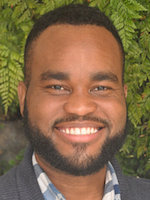
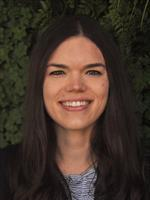
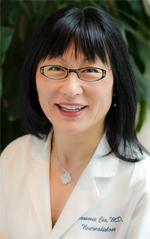
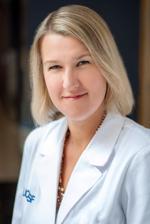
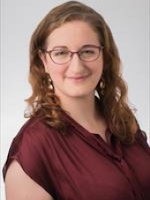
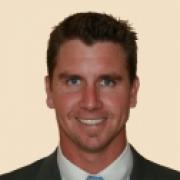

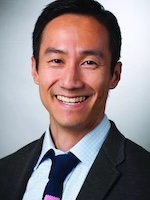
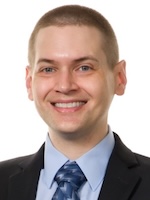
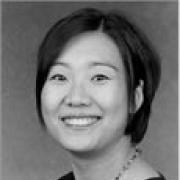
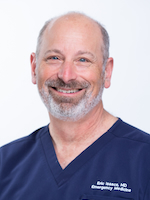

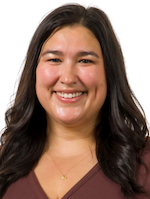
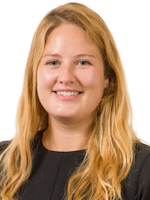
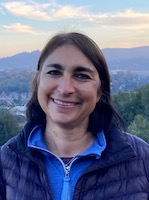
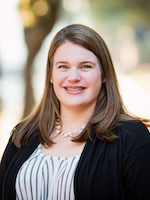
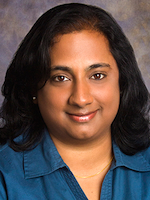
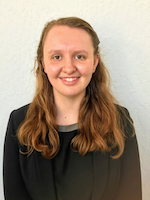
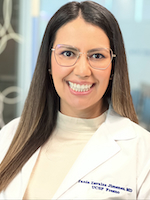
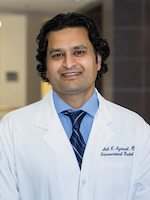
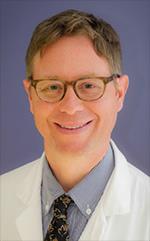
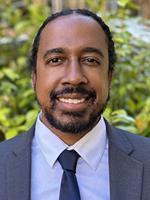
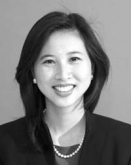
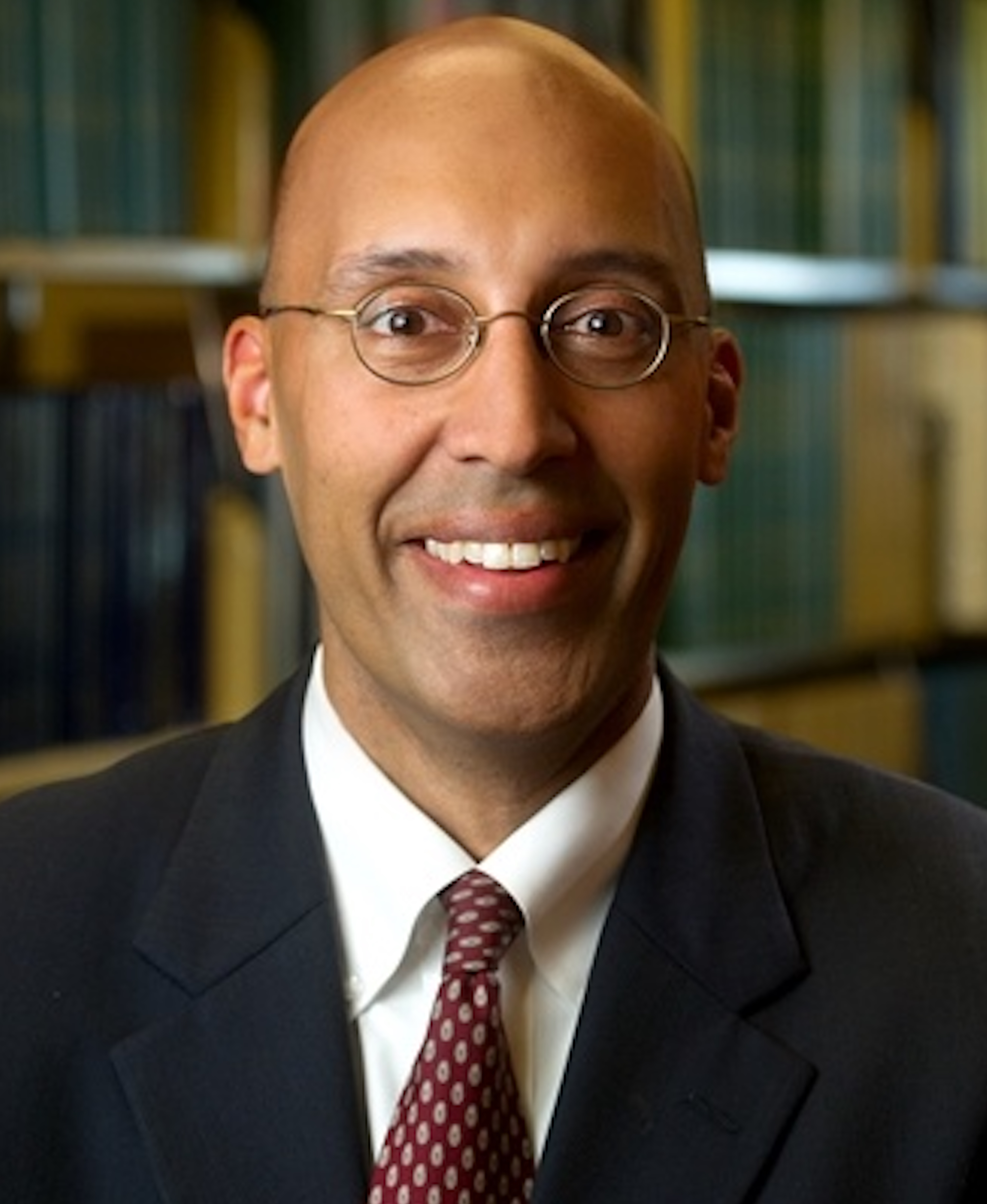
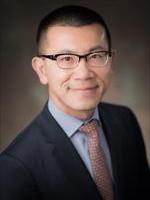
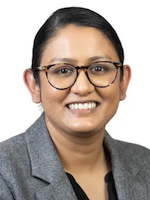
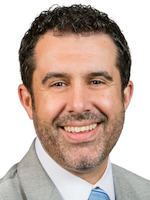
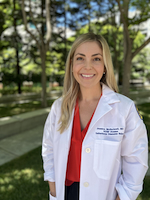
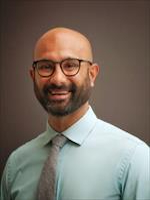
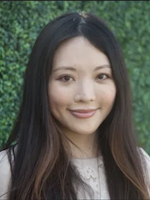
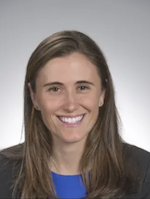
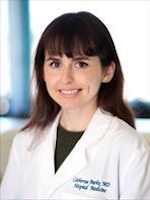
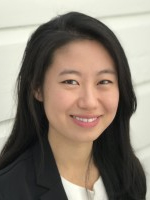
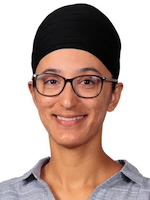
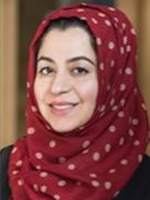
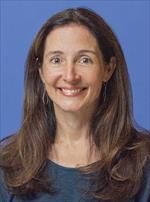
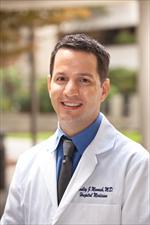
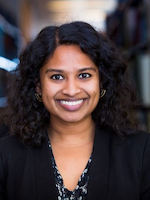
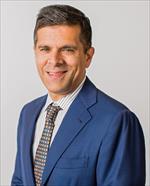
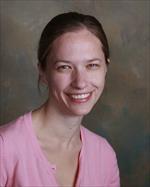

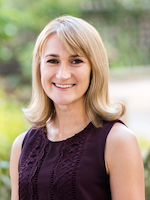
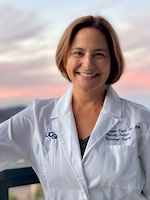
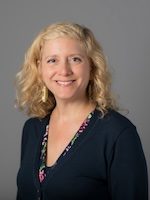
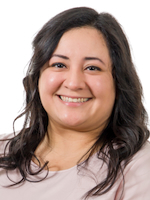
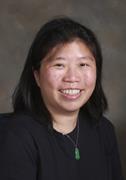
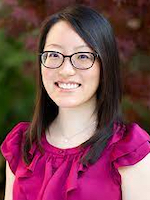
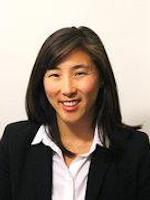
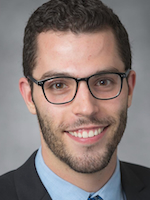
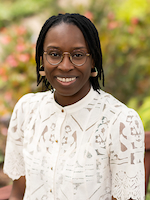
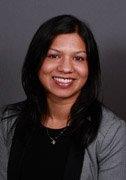
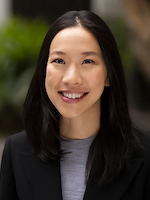
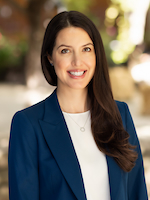
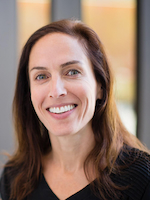
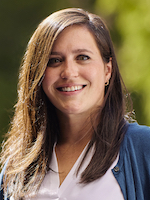
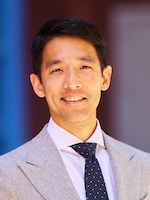
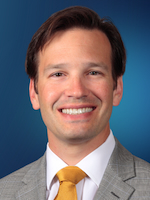
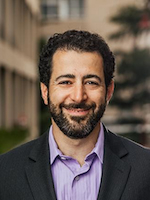
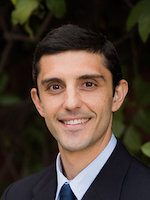
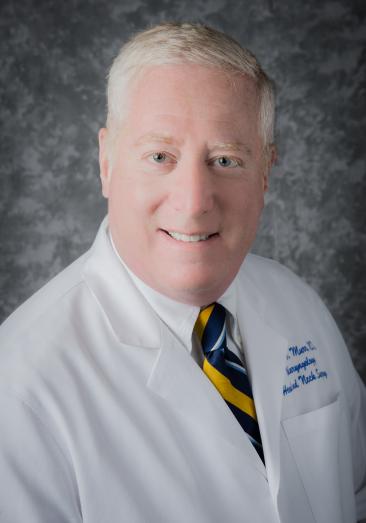
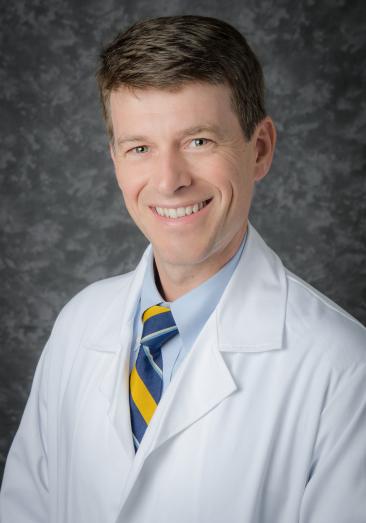
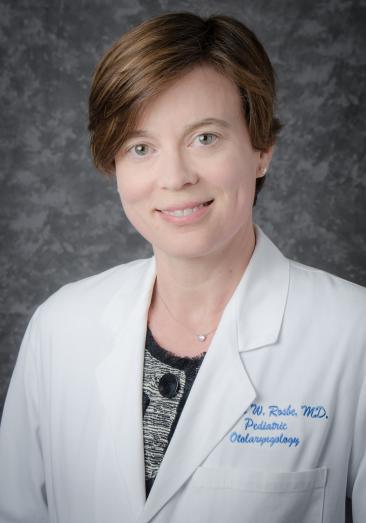
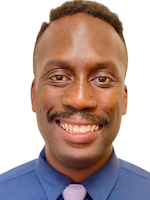
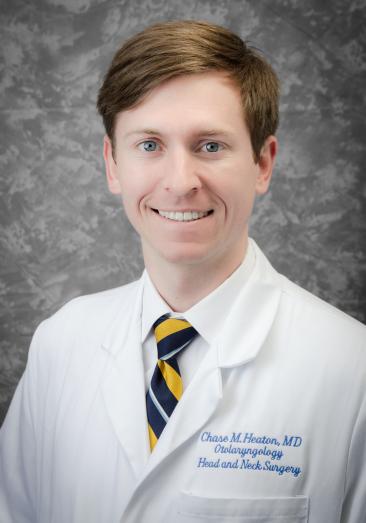
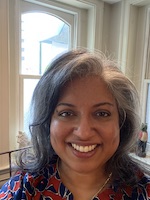
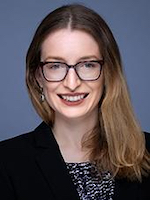
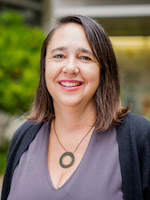
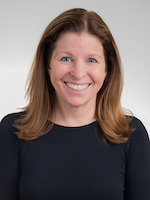
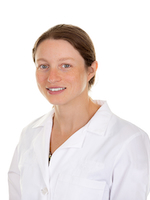
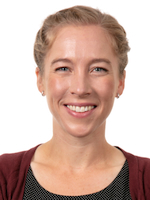
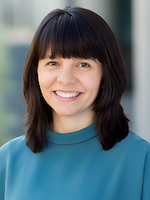
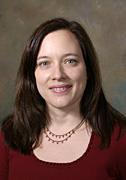
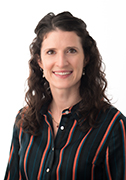
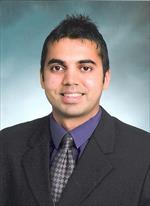
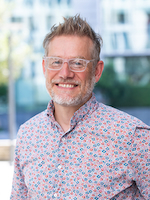
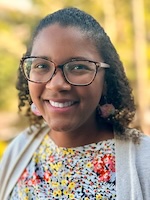
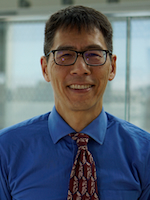
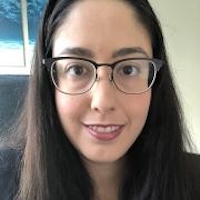
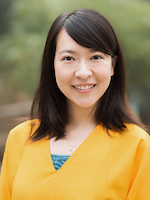
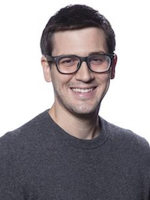

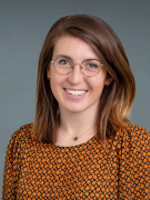
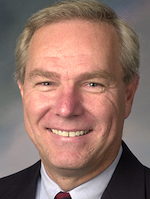
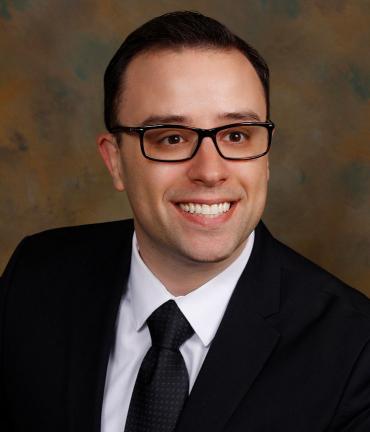
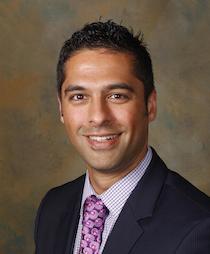
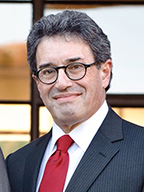
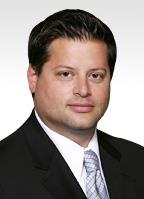
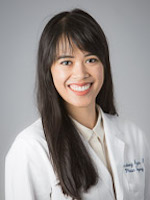
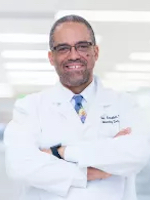
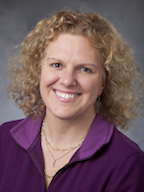 Sanziana Roman
Sanziana Roman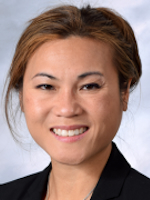
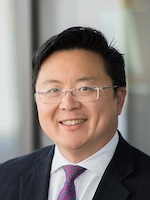
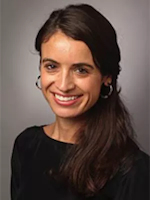
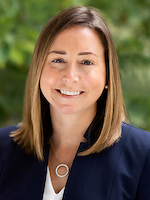
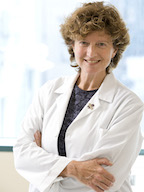
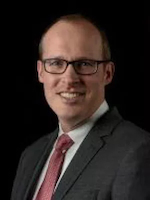
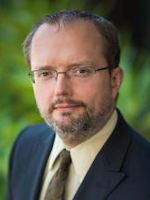
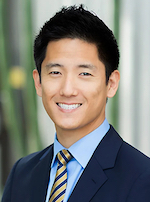
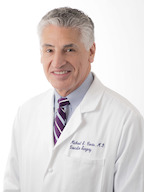
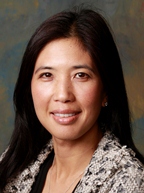
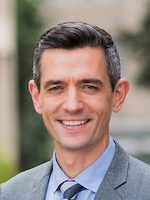 Warren Gasper
Warren Gasper